

AFRO Anniversary Special
This week’s edition of the AFRO celebrates the publication’s 133-yearold legacy as a proud member of the Black Press. Inside, we reflect on the humble beginnings of the paper, founded by John Henry and Martha Howard Murphy, while also spotlighting Black-owned businesses across the nation that have thrived for more than a century.

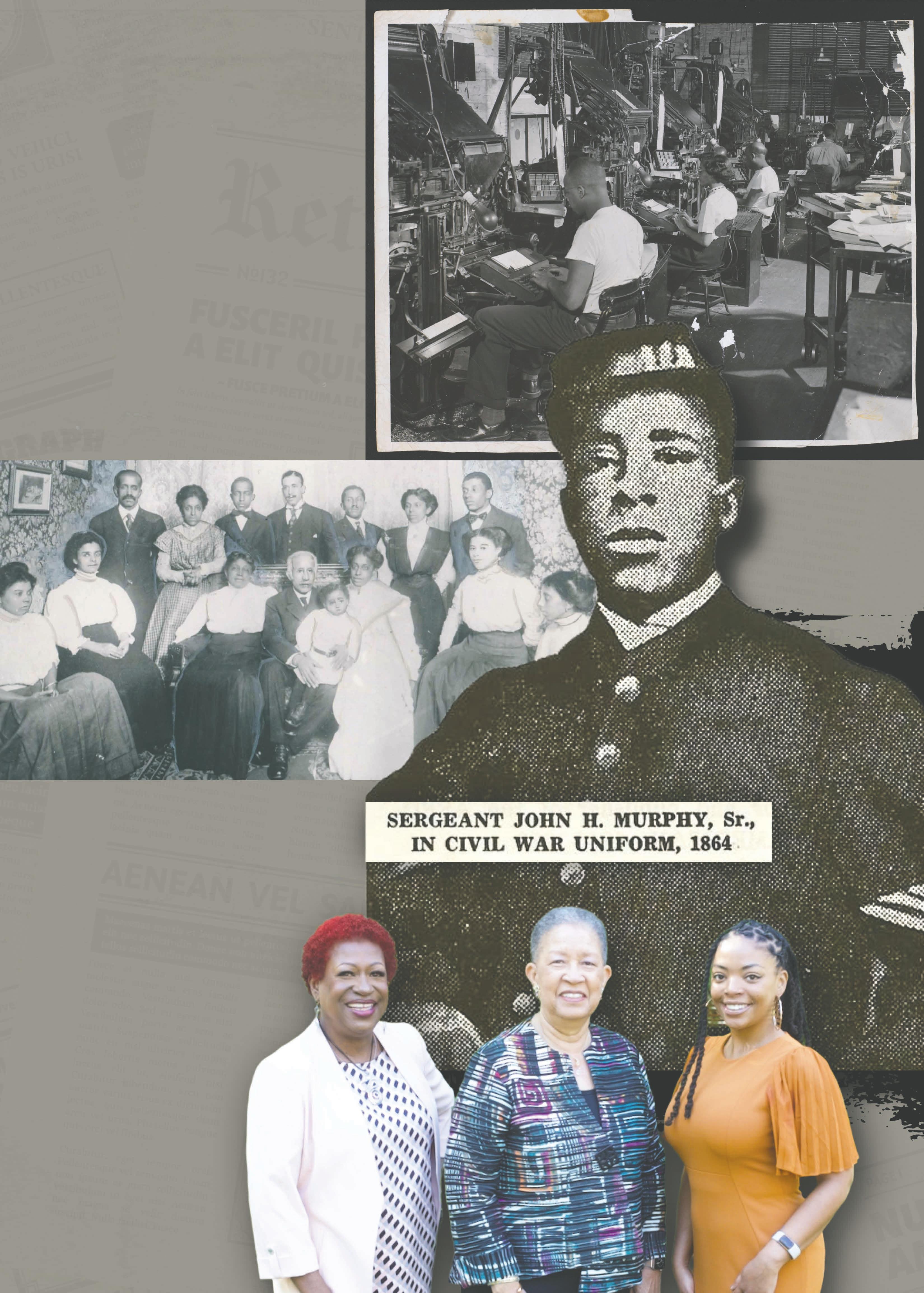

Ink, identity and influence: The AFRO’s ongoing legacy
By Megan Sayles AFRO Staff Writer msayles@afro.com
And
By Kevin McNeir
Special to the AFRO kmcneir@afro.com
If John H. Murphy Sr. and his wife, Martha Howard Murphy, could speak to the five generations of descendants who, since the founding of the AFRO , have continued their crusade for justice and against racism, they would have reason to point to the words of a song of inspiration, often sung in the Black Church: “Look back and see how far we’ve come . . . over hills and mountains, through the storm or through the rain. Oh, look back and see how far we have come.”
Since Aug. 13, 1892, The AFRO-American Newspapers known as the AFRO, has effectively promoted unity within Baltimore’s Black community while illustrating the strength of the Black family.
The publication cut its teeth pushing for human and civil rights, all while uplifting and recording Black history.
Now, more than a century later, founders John and Martha Murphy, their descendants and all who have contributed have a myriad of reasons to look back with pride. As the AFRO approaches its 133rd anniversary on Aug. 13, the mission that began in 1892 remains largely the same: to bring Black voices to the forefront and confront injustice head-on. What has changed is its medium.
No longer just a print product, the AFRO is a digital-first media company—leveraging technology to disseminate stories about the Black community while maintaining a legacy print edition.
For the AFRO’s leaders, descendants of founder John H. Murphy Sr., the charge of the news organization was clear to them at an early age. “As a family, all of us across my generation certainly grew up understanding that the mission of the AFRO was to uplift our community,

Your History • Your Community • Your News The Afro-American Newspapers
afro.com
Frances Murphy Draper
John J. Oliver Jr.) Benjamin Murphy Phillips IV - Kevin E. Peck Dana Peck
Receptionist - Wanda PearsonDirector of Operations
Andrè DraperDirector of Finance
Bonnie DeanesLenora Howze - lhowze@afro.com
Diane W. HockerEditorial Alexis TaylorAma Brown-Parson - Savannah Wood-
Andrè DraperFrances L. Murphy II)
Director of Operations - Andrè Draper -

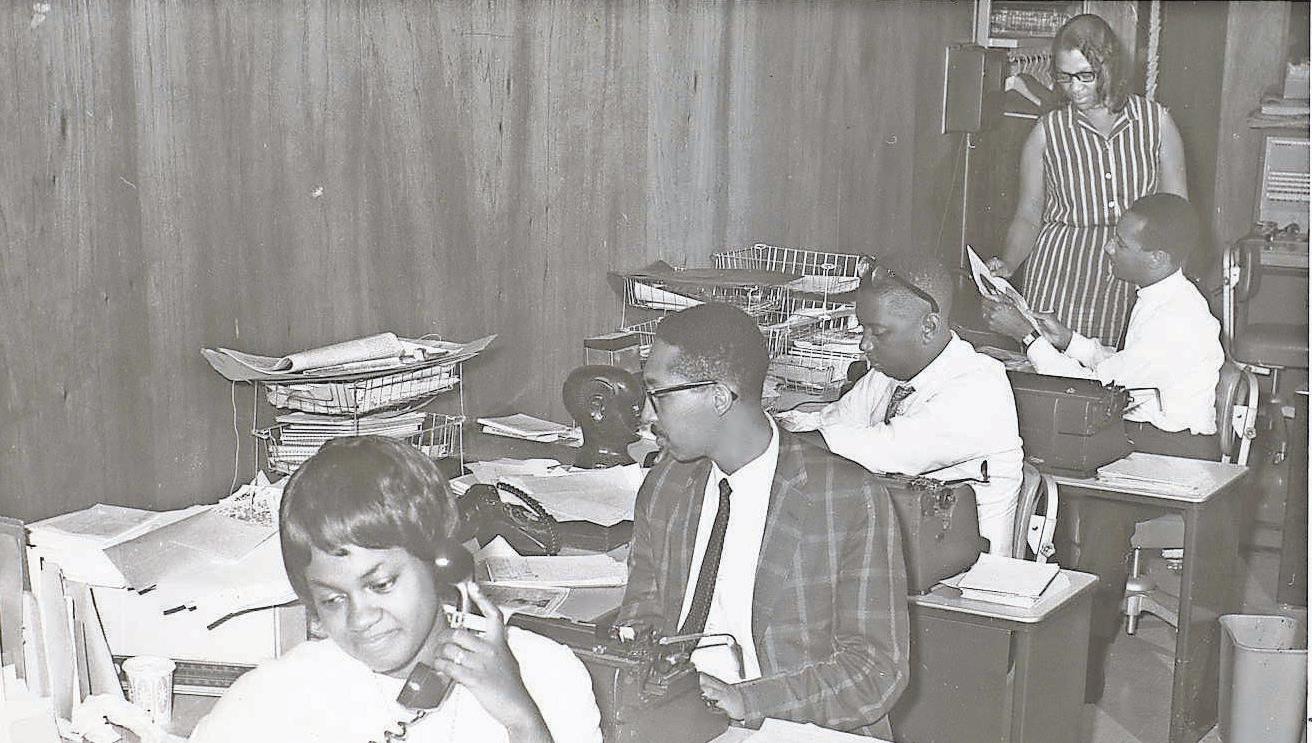
Archives
The AFRO employees are always working hard to provide coverage of people, events and issues that matter to the Black community. Shown here in an undated photograph, Women’s Editor Lillian Wiggins (left); reporters John Lewis, Stephen Johnston and Orville Green and secretary Hattie Edwards.
celebrate Black excellence and speak out against injustice that impacted our community,” said Frances Murphy Draper, publisher of the AFRO and great-granddaughter of John H. Murphy Sr. “The basis of our upbringing was that we were here to serve the community by amplifying our community’s voices at a time—and even now—when our voices were not heard holistically.”
In 1892, John H. Murphy Sr., a formerly enslaved man, borrowed $200 from his wife, Martha Elizabeth Howard Murphy, to purchase a printing press that would prepare the way for the creation of the AFRO-American Newspapers.
The paper started as a church circular. and grew into the most widely circulated Black newspaper along the East Coast. It became known for championing Black rights and spotlighting overlooked issues that impacted African Americans—an objective it continues to pursue.
Over the course of its history, the newspaper has documented racial lynchings in Maryland, challenged Jim Crow laws, promoted the economic empowerment of African Americans and confronted police brutality. It has also sought to be a trusted voice—one that holds leaders accountable, captures the nuances of issues affecting African Americans and uplifts the Black community.
“We lead with community voice rather than voices outside of the community. When our reporters look for sources, even if it’s a national issue, they look for people who can speak to how it’s impacting them locally,” said Draper. “People can also trust us to accurately reflect their quotes and opinions without taking them out of context.”
Today, the AFRO continues its legacy by standing firm against modern-day attacks on racial equity. It has confronted lawmakers’ efforts to restrict and censor Black history; challenged the 47th president’s rollbacks on equity, diversity and inclusion; and defended Black voting and reproductive rights. Rather than parrot the mainstream media’s coverage on political issues, the AFRO examines the impact of current and proposed policies, executive orders and legislation on the Black community.
“Our goal is not to be ‘pro’ or ‘anti’ a person,” said Draper. “Our goal is to be ‘pro’ or ‘anti’ an issue that impacts the people we represent.”
Benjamin Phillips, great-grandson of John H. Murphy Sr., serves alongside Draper as president of the company. He said the AFRO is able to refer to the playbook its early leaders used during Reconstruction, a time when Black people demanded justice and equality despite fierce opposition.
“It’s a different type of world that we see today. Folks would really like to turn things back to the past,” said Phillips. “It’s up to us, along with other publications for African Americans and people of color, to understand that we have to speak up. We have to continue the fight.”
Part of continuing the fight is determining who will usher the AFRO into the future. Succession planning is a constant in both Draper and Phillip’s minds. One thing Phillips said he knows for sure is that the next leaders must be prepared to stay in the fight.
“I believe confidently that there are others behind us, a generation of children and their children, who will step up to the plate and come in to ensure that we continue to do what my great-grandfather wanted us to do,” said Phillips. “The mission is as real today as it was then. If we can’t stand for something we stand for nothing.”
Under the current White House administration, news organizations have consistently been under attack. There soon may come a time when Black newspapers become the focus of these assaults.
However, Draper noted that the fight to preserve the Black Press is not new. It’s been ongoing since her great-grandfather founded the AFRO over a century ago. She called on readers to support their local, Black media outlets.
“If I had a message to anybody, wherever you are, subscribe to your Black paper. It doesn’t cost that much,” said Draper. “We need that voice across the country.”
A tradition of the Black Press, continued
The AFRO and many Black publications across the nation have long been the place where many renowned journalists and
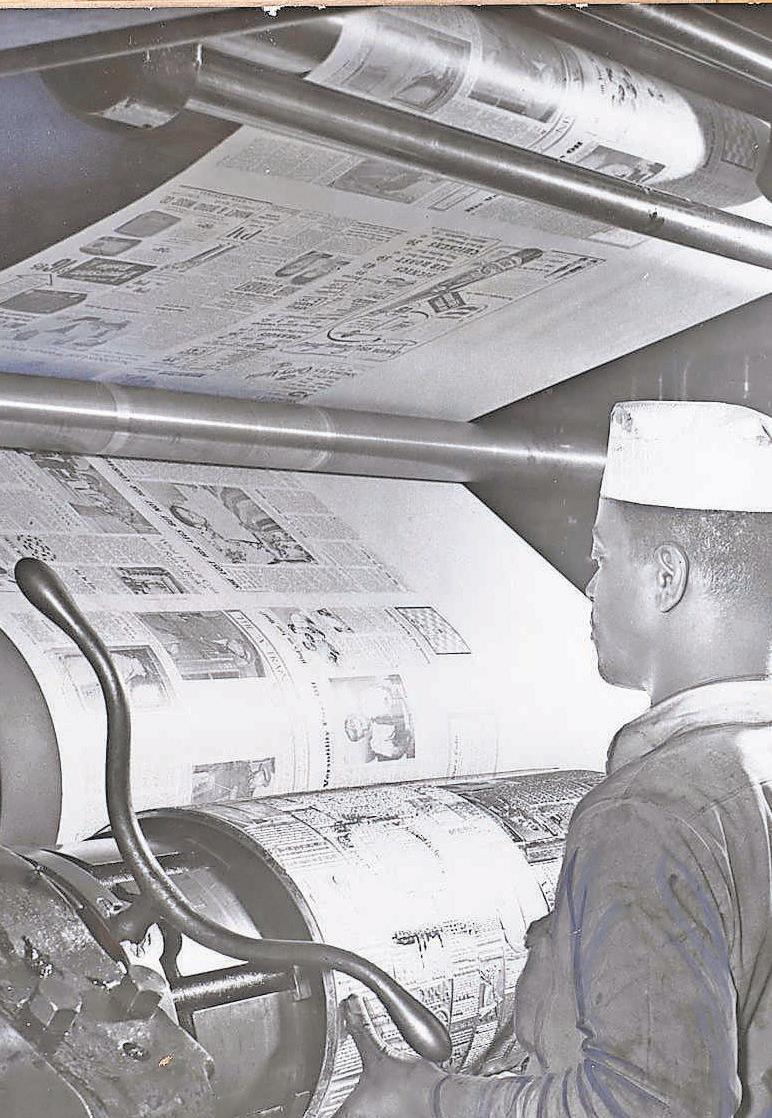
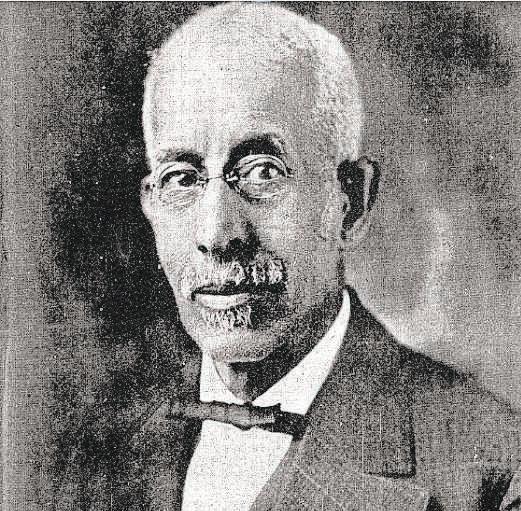
The AFRO- American Newspaper traces its roots back to 1892. It was John H. Murphy Sr., a formerly enslaved man. Who borrowed $200 from his wife, Martha Elizabeth Howard Murphy, to purchase a printing press for what still thrives today as AFRO News. The historic paper began as a church circular but quickly evolved into a conduit for championing civil rights and shedding light on issues affecting the Black community— stories that were often ignored or misrepresented by mainstream media.
Upon John H. Murphy Sr.’s death in 1922, his son, Carl J. Murphy, took over as editor and publisher of the AFRO During his 45-year tenure, the AFRO achieved national recognition. His nine brothers and sisters and their children were also involved in the newspaper—specializing in various aspects of the business, like advertising, editorial, production and circulation.
The newspaper was distributed in Baltimore, along with regional editions in Washington, D.C., Philadelphia, Richmond and Newark. At its height, there were as many as 13 editions published across the U.S.
Over the course of its 133-year history, the AFRO has remained under family control. It’s a media company today, led by fourth- and fifth-generation descendants of John H. Murphy Sr. Today, Dr. Frances Murphy Draper, great-granddaughter of John H. Murphy Sr., serves as publisher, as the AFRO continues to stand up for Black rights and share good news about the Black community.
media professionals got their start.
Today, the next generation of tenacious AFRO reporters can be seen in the likes of Tavon Thomasson, a 25-yearold senior at Morgan State University and an intern with the AFRO. Thomasson said what has most impressed him about the publication is its environment which he views as “deeply family-oriented.”
“For some, that might seem like a challenge, but in this case, it’s been nothing but positive,” he said. “Everyone genuinely supports one another, working together to produce stories that matter to the African-American community. And I appreciate being part of a newsroom that prioritizes issues about which our community cares. It reminds me of a family reunion – the kind that leaves you feeling connected, valued and proud to be part of something bigger than yourself.”
Alee Opuiyo, a local
businesswoman who heads her own communications and public relations agency, spent her first two years after graduating from Howard University’s School of Communications as a general assignment reporter for the AFRO. She said she remains grateful for being provided with many unforgettable experiences that shaped her both personally and professionally.
“I’m incredibly impressed with the AFRO’s journalistic tenacity, integrity and unwillingness to compromise the credibility of the publication,” she said. “I have held these principles close to me throughout my professional journey because of my time at the newspaper. Without question, it continues to serve as an unwavering institution which advocates America’s most sacred values like truth, honor and justice.”
For more archive content, please see A7 and A8.
AFRO Archives
Pressman Joseph Goldman places metal plate on the AFRO’s Goss press preparatory to prepare for printing of an AFRO edition.
AFRO

133 Years—and we’re still telling the truth
By Frances Murphy Draper AFRO CEO and Publisher
One hundred and thirty-three years. That’s how long the AFRO-American Newspapers, or AFRO News, has been in business—100 percent Black-owned, family-owned and unapologetically committed to truth-telling. That alone is worth celebrating.
But it didn’t happen by accident—or without struggle.
We thank God first. Through wars and recessions, protests and pandemics, leadership changes and industry disruption, we are still standing because of divine provision and purpose.
My great-grandfather, John H. Murphy Sr., a formerly enslaved man, started the AFRO in 1892 with $200 from his wife, Martha Howard Murphy. He believed that Black people needed our own voice. That wasn’t just a business decision—it was an act of resistance. At a time when we were shut out of every institution of power, he dared to build one of our own. And he wasn’t alone. The Philadelphia Tribune (est. 1884) and The Savannah Tribune (est. 1875) are still publishing. Bynes-Royall Funeral Home in Savannah began in 1878 during a yellow fever epidemic. McGuire Funeral Service in Washington, D.C., has served families since 1912. E.E. Ward Moving and Storage, founded in 1881, still moves goods across the country.
going to stop us, you don’t know our story. At the AFRO, we’ve not only survived—we’ve led. Today, we are proudly digital-first, with a growing multimedia presence and nearly 675,000 social media followers. We still print our content-rich weekly edition, but most of our readers find us online, on their mobile phones, or through our Digital Billboard Network (DBN), which brings real-time news to 30+ community screens across Baltimore City and County.
We’re still family-run— now in our fourth and fifth generations. But the AFRO is more than the Murphy family. Our editors, writers, producers, designers, salespeople and support staff power this mission every day: truth without apology, Black history without erasure and community news that informs and uplifts.
We’re also building for the future. Our nonprofit partner, Afro Charities—led by fifth-generation family member Savannah Wood— is digitizing the AFRO’s archives to make them more accessible to the public. This groundbreaking work will be housed in the historic Upton Mansion, located in West Baltimore’s Upton neighborhood, long a center of Black culture and pride. The AFRO looks forward to becoming the anchor tenant in the new Afro Charities building once it opens in 2026.
To our readers, advertisers, community partners, and friends—thank you.
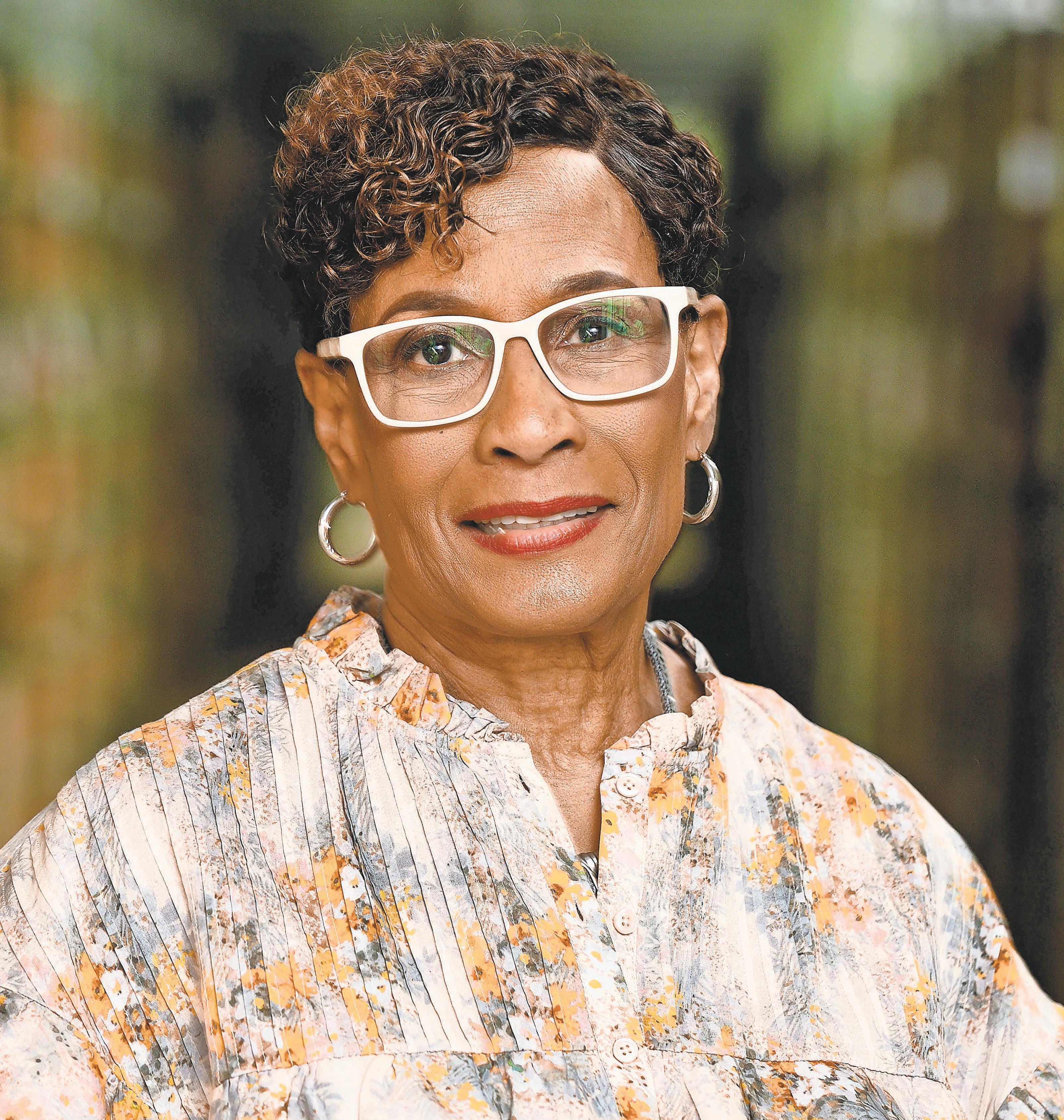
Now in its 133rd year, the AFRO News continues to thrive under
Draper, who blends the paper’s historic legacy with modern innovation.
coverage or invest in our platform.
We can’t just applaud Black-owned businesses at galas and awards ceremonies, then disappear when it’s time to pay full price.
These businesses—ours included—aren’t museums. They are living institutions that employ people, serve
“A newspaper succeeds because it believes in God, in itself, and in the present generation.”
None of these businesses were born in comfort. They were born in crisis—and endured.
Today, we’re facing new crises. Diversity, equity and inclusion (DEI) is under attack. Black history is being erased. The Black Press is fighting for air in a media landscape saturated with disinformation. Black businesses—still—face barriers to capital, contracts and credibility.
Earlier this year, a sweeping executive order dismantled decades of equity work in the federal government, eliminating DEI offices, programs and protections. Public funding was stripped from institutions like PBS and NPR. When truth-telling institutions are defunded or discredited, it sends a chilling message—especially to the Black Press—that facts are only welcome when they’re convenient.
But if you think that’s
Your trust and support have brought us this far.
To our board of directors and stockholders—thank you for your leadership and unwavering belief in our mission.
To our team—thank you for your hard work and shared commitment to excellence.
And yet—this is no time to be passive. If you value what Black-owned businesses bring to your community, your support must be intentional and ongoing. So, here’s the plain truth: If you love the Black Press, subscribe—and encourage others to do the same.
If you believe in Black entrepreneurs, buy from them.
If you see a business doing good work, amplify it.
If you’re on social media, follow them, tag them, share their stories.
And if you believe in trusted Black institutions, advertise with us, sponsor
families, shape culture, and carry the stories others try to bury.
So, as we celebrate 133 years, we do so with gratitude and urgency. The fight isn’t over. And neither are we.
To our fellow centennial businesses: we honor you.
To those just starting out: keep building. Keep believing.
To the next generation of Black entrepreneurs: may your journeys be bold, your impact lasting, and your visions funded. We pray we’re still here when you celebrate your centennials.
The work continues. The truth still speaks. And the mission remains.
“A newspaper succeeds because it believes in God, in itself, and in the present generation.”
—
John H. Murphy Sr. Founder, AFRO-American Newspapers, 1920

JOURNEY HOME GRANT
Do you dream of owning a home, but have limited funds for a down payment and closing costs? United Bank’s Journey Home Grant* may be the answer to your home buying dreams. UP TO $10,000 FOR DOWN PAYMENT & CLOSING COSTS
Photo courtesy of John Hopkins University / Will Kirk
the leadership of Publisher and CEO Frances Murphy

3 key tips for newspapers to thrive for the next 100 years
By Tashi McQueen AFRO Staff Writer tmcqueen@afro.com
As the AFRO celebrates 133 years in publication, its leaders are reflecting on what it takes for Black-owned newspapers to survive and thrive for 100 years and beyond.
Their advice comes at a time when news organizations and race-focused businesses face increased scrutiny—underscoring the need for unity and creative solutions.
This week, Kevin “MPECKABLE” Peck, vice president of marketing and technology for the AFRO, and Dr. James E. Wood Jr., an AFRO board member and treasurer, shared three key tips for newspapers looking to build and maintain a last
ing legacy despite ongoing challenges.
Modernize and innovate Wood said having an updated corporate structure to ensure that the business is run efficiently is crucial to maintaining a legacy newspaper. Recent studies show that papers that cling to outdated systems and are not able or willing to keep up to date are left behind and eventually, shut down.
“Leaders have to go out into the greater world, see all the innovation that’s coming and find ways to make sure we’re at the table,” said Wood. “We have to prioritize what’s critical and do it as efficiently and effectively as we can.”
According to an October
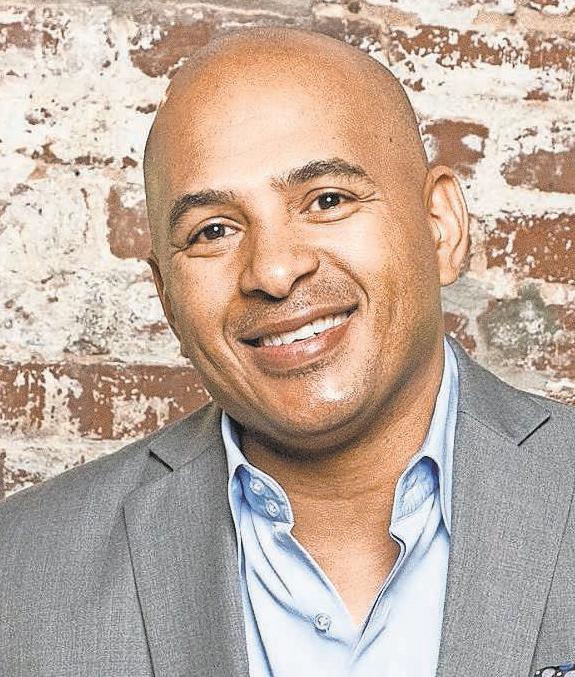
Courtesy photo Kevin “MPECKABLE” Peck, AFRO vice president of marketing and technology, emphasizes the importance of embracing innovation while honoring the legacy to help Black newspapers thrive for the next 100 years.
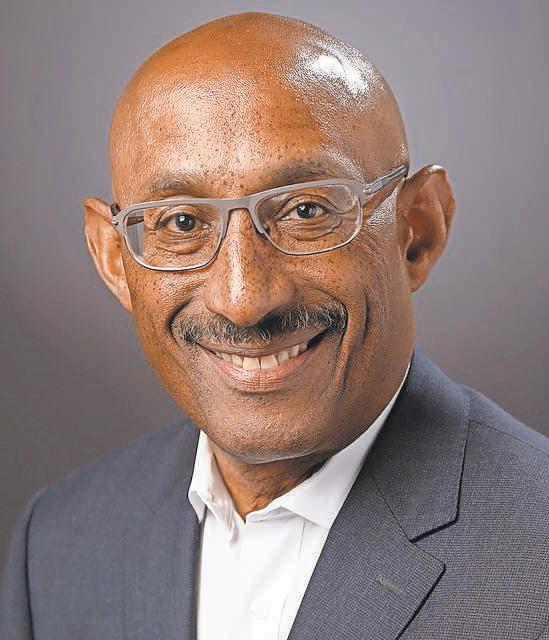
Courtesy photo Dr. James E. Wood Jr., AFRO board member and treasurer, shares insights on balancing legacy and innovation to ensure the future of Black newspapers.
2024 report by the Medill School of Journalism at Northwestern University, the U.S. has lost one-third of its newspapers since 2005 at a rate of about 2.5 closures per week over the previous
12 months. Key reasons for closures are tied to structural issues such as the loss of traditional advertising revenues, outdated business models and poor investment in digital adaptation.
“It can’t be an institution that is just frozen in time and stone,” said Peck. “It has to be alive, continuing to evolve.”
When it comes to innovation, Peck recommends keeping abreast of cutting edge technologies.
“I’m always in tune with the tech guys, panels, articles and it gives me a glimpse into where it’s moving,” said Peck.
Stay true to the legacy
With the AFRO’s rich history rooted in Baltimore, the state and a long list of family members committed to keeping it alive and thriving, legacy remains a defining part of what makes the AFRO what it is.
“I look at the AFRO, and even now, there are generations of people working together to keep it relevant and in the front as much as possible,” said Wood.
Peck acknowledged the challenging balance of maintaining legacy and embracing innovation.
“Legacy is everything, but in business, innovation and change is everything,” said Peck. “The balance there is knowing your purpose while also pushing for what is next and even getting ahead of what is next.”
Keeping a pulse on the young generation
For newspapers and media companies, keeping abreast of
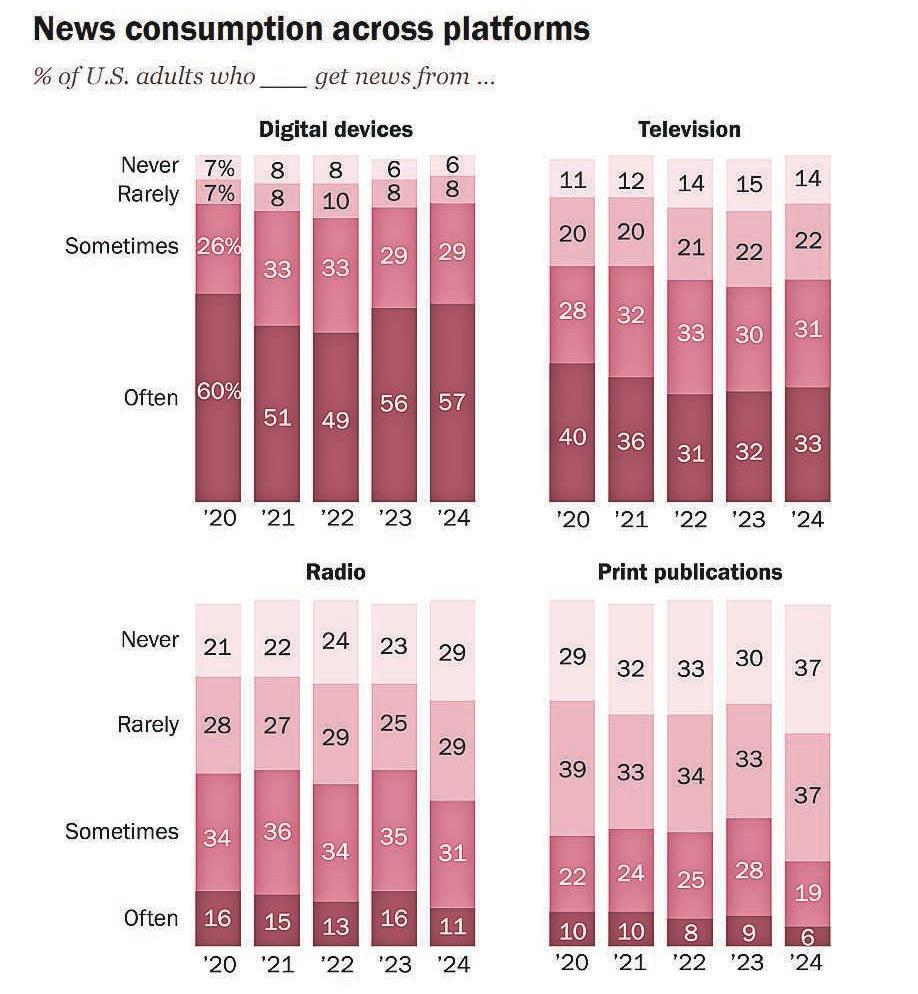
Americans
younger generations’ preferences, knowledge and needs is crucial for long-term success.
According to a 2024 Pew Research report, 86 percent of U.S. adults get their news from digital devices, while only 26 percent consume news in print—the lowest percentage recorded to date.
At the same time, the American Press Institute found that many young people report experiencing news fatigue and limited enjoyment when engaging
Still swimming: A love story rooted in faith, legacy and the AFRO
eabuck@afro.com
In the summer of 1954, two young AFRO News carriers from Baltimore met for the first time during a beach trip for newspaper boys and girls. That moment, shared at Carr’s Beach, a popular resort for African Americans along the Chesapeake Bay, was the beginning of a lifelong love story.
“We met in the water and are still swimming,” said Rev. Beverly Carter, reflecting on the day she met her husband, Rev. George Carter at just 11 years old.
Both native Baltimoreans, the Carters had lived only three blocks apart, but never crossed paths until the summer trip, a reward from the
AFRO-American Newspaper Company for the young carriers.
“We were both earning much needed funds selling newspapers,” she stated. “Not just any newspapers– but the renowned AFRO Even at our early ages, we knew the importance of education and strong devout work ethics. These values were instilled in the very fabric of our being.”
Rev. Beverly explained that George, who was roughly three years older when they met, was raised by his great-aunt Daisy. He was driven to contribute to their household, even as he battled asthma and grew up without modern amenities like electricity or indoor plumbing.
“If Rastus (George’s childhood nickname) was late getting home from school, Aunt Daisy would start
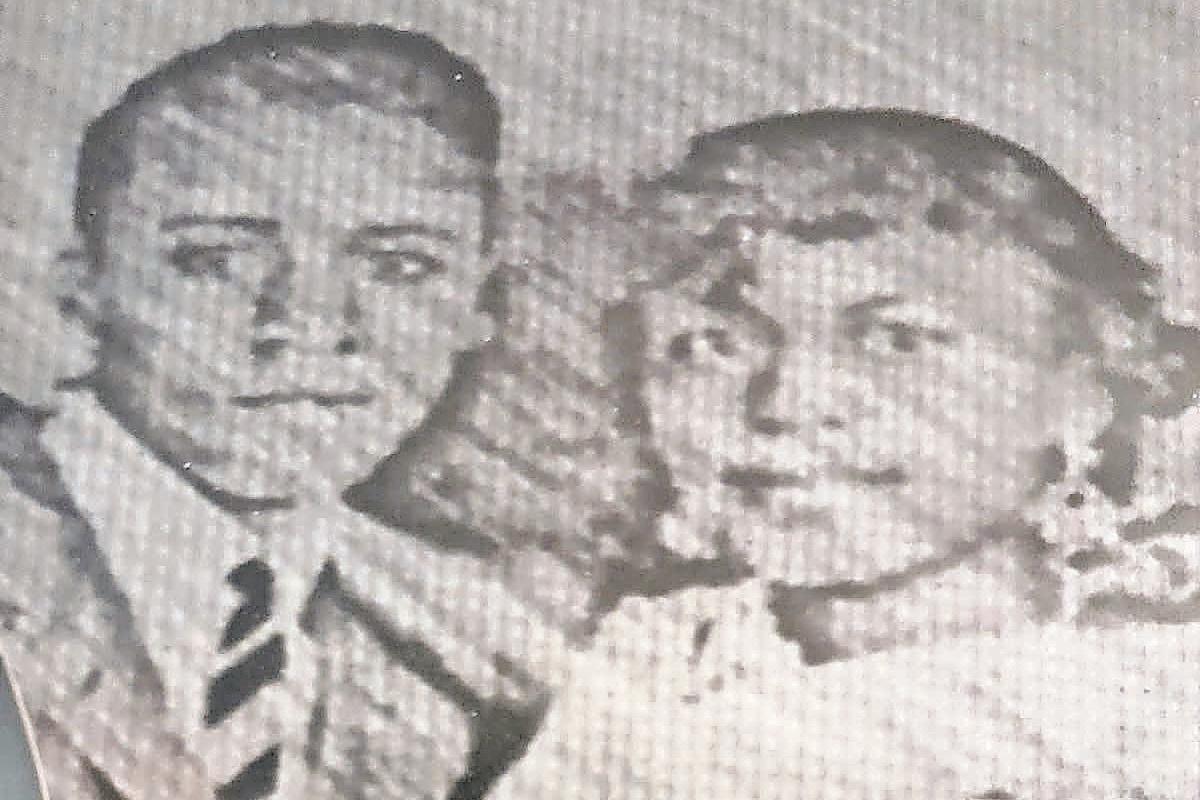
on his paper route,” she said. “That was an embarrassment to him, but it showed the strength she had.”
Though it would be shunned in today’s time, in 1957, three years after they met, the couple married. George was 17, and Beverly was 14 1/2. That same year, he graduated from Frederick Douglass High School. Though Beverly left school at a young age, she never let go of her dream to return.
Encouraged by a night school teacher, she went on to earn her GED, pass the SAT, and eventually graduate from Morgan State University in 2015 at the age of 73. Not long after, Rev. George enrolled at Coppin State University and, in 2020, earned a degree in applied psychology, graduating at 80 1/2.
“He was told that he is the oldest male to have graduated from Coppin,” she said proudly.
Their journey has been one of faith, perseverance and service. As long-time ministers at New Shiloh Baptist Church, they have remained active in various ministries, including prison ministry. “We encountered and endured numerous hardships requiring loving God and exercising forgiveness in order to mature,” she shared.
In 2022, the couple founded The Determined to Live Transition House, Inc., a reentry program for returning citizens. Though currently in transition, Rev. Beverly stated, “We are expecting to reopen a new facility very soon. It is currently in the process of being built from the
with news content. Overlooking these trends could be detrimental for the future of a newspaper. Wood pointed out that it’s not only important to connect with and pour into the youth, but ensure it’s a give and take between generations—bridging experience with fresh perspectives.
He emphasized that young people should be the ones exploring and taking the leaps, while the older generation remains open to
learning and understanding what’s coming next. This mindset is especially important when it comes to supporting emerging Black media startups.
“What is their expertise, their niche?” said Wood. “Where are they hiring, where are they reporting?”
He said legacy institutions should play an active role in nurturing these startups—sharing expertise and supporting them as they lay the foundation for long-term success.
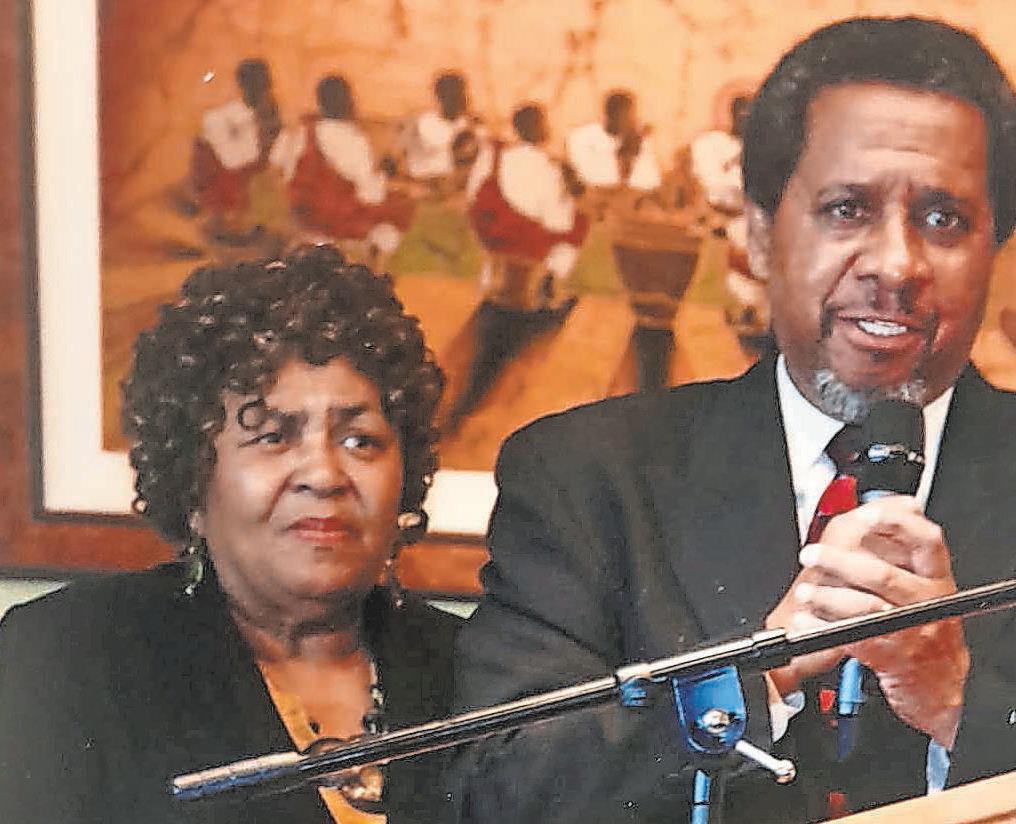
ground up.”
The Carters’ legacy lives on in their family.
“We have six children who have obtained degrees of higher learning and are currently engaged in helping to improve our city’s youth,” she said.
“Our oldest daughter is a minister at Shiloh and has four earned degrees. All of our children are overcomers, and for that we are grateful.”
Their grandchildren and great-grandchildren are also carrying the torch.
“Our great-granddaughter Zaire recently graduated from Western High School with earned college credits and will be attending North Carolina Agriculture and Technical State University,” she shared. “Our
oldest great-grandson Joshua is entering his second year at McDaniel in Western Maryland.”
Looking back, Rev. Beverly is certain that none of this was by chance.
“Our story is one of divine intervention with arduous preparation for the life that was before us,” Carter stated. “Little did we know that our lives would unite in such a divinely orchestrated way.”
From newspaper routes to ministry, from night school to college degrees, the Carters remain a testament to the power of love, faith and community.
“As a family, we pass on every good and perfect gift that comes from above,” she exclaimed. “To God be the glory!”
Chart courtesy of Pew Research Center
are increasingly turning to digital devices and television for news. In 2024, 57 percent of U.S. adults often received news from digital devices. Only 6 percent used print publications.
By Ericka Alston Buck Special to the AFRO
Photo courtesy of Rev. Beverly Carter
Rev. Beverly Carter (left) and her husband, Rev. George Carter, have come a long way from their time delivering the AFRO-American Newspaper in the 1950s. Today the couple is still going strong after six decades of marriage. Together, they serve the community through their work as ministers at New Shiloh Baptist Church.
Photo courtesy of Rev. Beverly Carter Shown here, the Carters on their wedding day in 1957.

Still printing, still powerful: The Savannah Tribune at 150 years
By Tavon N. Thomasson AFRO Intern tthomasson@afro.com
In a time before keyboard clacks and mouse clicks echoed through the newsroom, The Savannah Tribune began its mission to inform, uplift and empower Black readers. 150 years later, that mission continues.
Founded in 1875 as The Colored Tribune, the newspaper was among the first Black-owned publications in the South to use journalism as a tool for activism. Founders John H. Deveaux, Louis B. Toomer Sr. and Louis M. Pleasant envisioned a platform that would not only inform but empower a newly recognized Black electorate.
“Some of the very first editorials were encouraging people to register to vote,” said Shirley B. James, who serves as the current publisher and owner. “Then it moved along from there, where the emphasis was on voting and making sure they [even] had articles condemning some institutions in the city.”
In 1876 the paper debuted a new name: The Savannah Tribune.
“In my opinion, that kind of says ‘We are not going to be designated and identified just as colored Americans—we are Americans, we are civilians, we are The Savannah Tribune,’” James told the AFRO
Despite its promising beginnings, The Savannah Tribune was forced to shut down in 1878 after White printers in Savannah refused to produce the paper. Eight years later, in 1886, the publication returned.
From 1886 to 1960, The Savannah Tribune thrived as a leading voice in the Black Press. Under the leadership of Solomon C. Johnson and later his goddaughter, Willa Ayers Johnson, the paper championed education, civil rights and social justice. But by the time of Ayers Johnson’s tenure, the media landscape had begun to shift, posing new challenges for Black-owned publications.
“It was during that period of time when mainstream media finally became aware of how they could utilize news from the Black community to increase their presence as well as their means of generating funds,” said James. “A lot of mainstream media began to publish positive news, even though they were still publishing all of the negative things about us. And so [that] drew away from our audiences in the
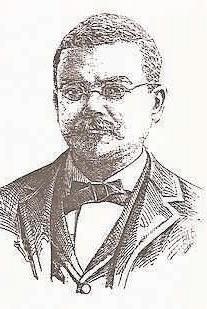
African-American newspapers. Several African-American newspapers folded during that period of time.”
The Tribune, like many Black newspapers impacted by declining ad revenue and changing audience habits, was forced to shut down in 1960. It remained dormant until 1973, when it was revived by Robert E. James, husband of current publisher Shirley B. James.
Today, the Tribune is once again doing what it has always done, covering Black stories and serving the community, all while evolving to serve a digital-first world.
“You’ve got the internet, you’ve got social media, you’ve got videos—it’s a lot of fragmentation,” said Tanya Milton, the vice president and advertising director of The Savannah Tribune. “You have to hold on to some consistency. What is most consistent about us is that we print and we do all that other stuff too.”
While Milton and The Savannah Tribune continue expanding their reach through new platforms, they’re also finding creative ways to engage niche audiences.
“We have created a dining guide, and for that we hired a videographer to go into these restaurants and actually film the food…and we post it,” said Milton. “I mean, this guy is so good. He puts sound behind it where you actually hear the water being poured,
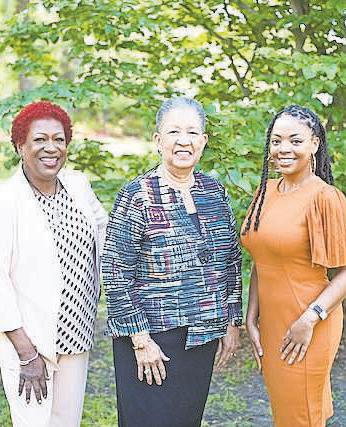
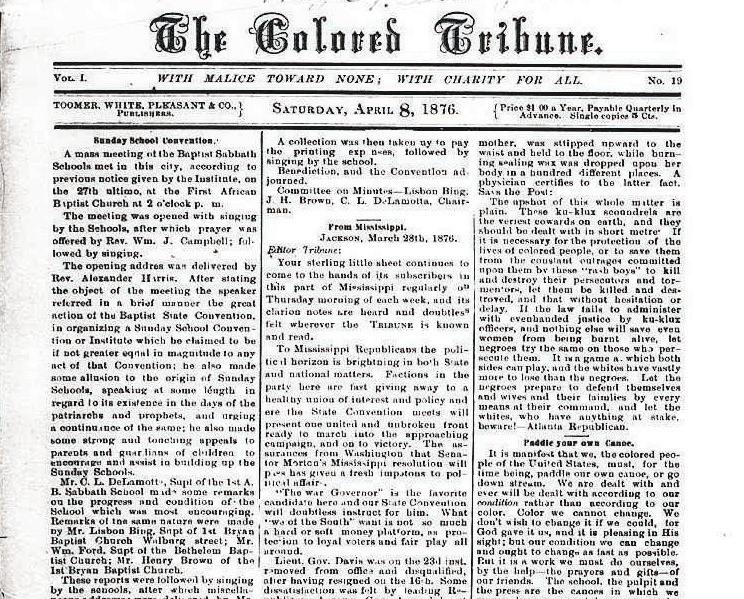
the egg frying and the bacon.”
More than just adapting to the digital age, The Savannah Tribune is staying true to its mission, delivering news that reflects the daily realities of African Americans while ensuring its trusted voice carries forward for years to come.
“My vision is that, since we just celebrated 150 years, that 150 years from now someone will be celebrating The Savannah Tribune,” said James. “I still think that our mission now is more important than ever. I guess John Deveaux, Louis Pleasant and Louis Toomer thought the same thing when they started during that period of time. They overcame the challenges they had, so that gives me hope that we can overcome. I have to have hope that we can maintain, we can sustain and then we can even grow.”
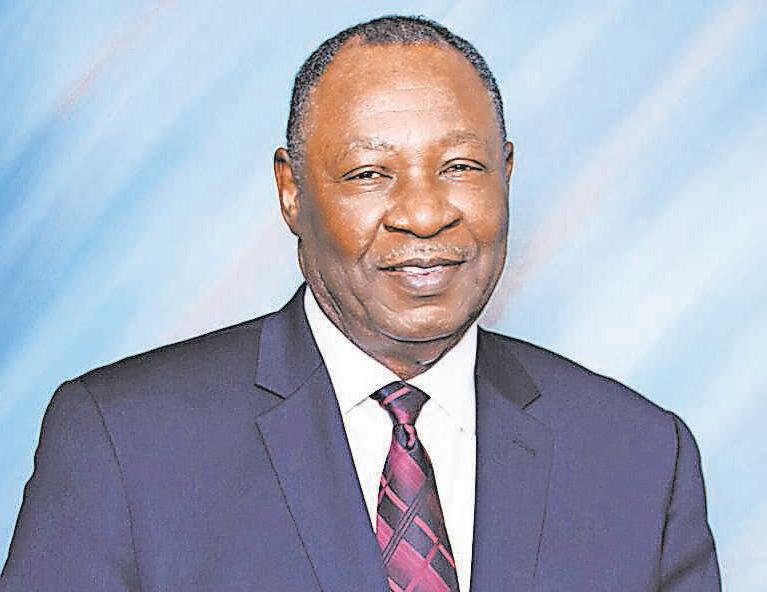
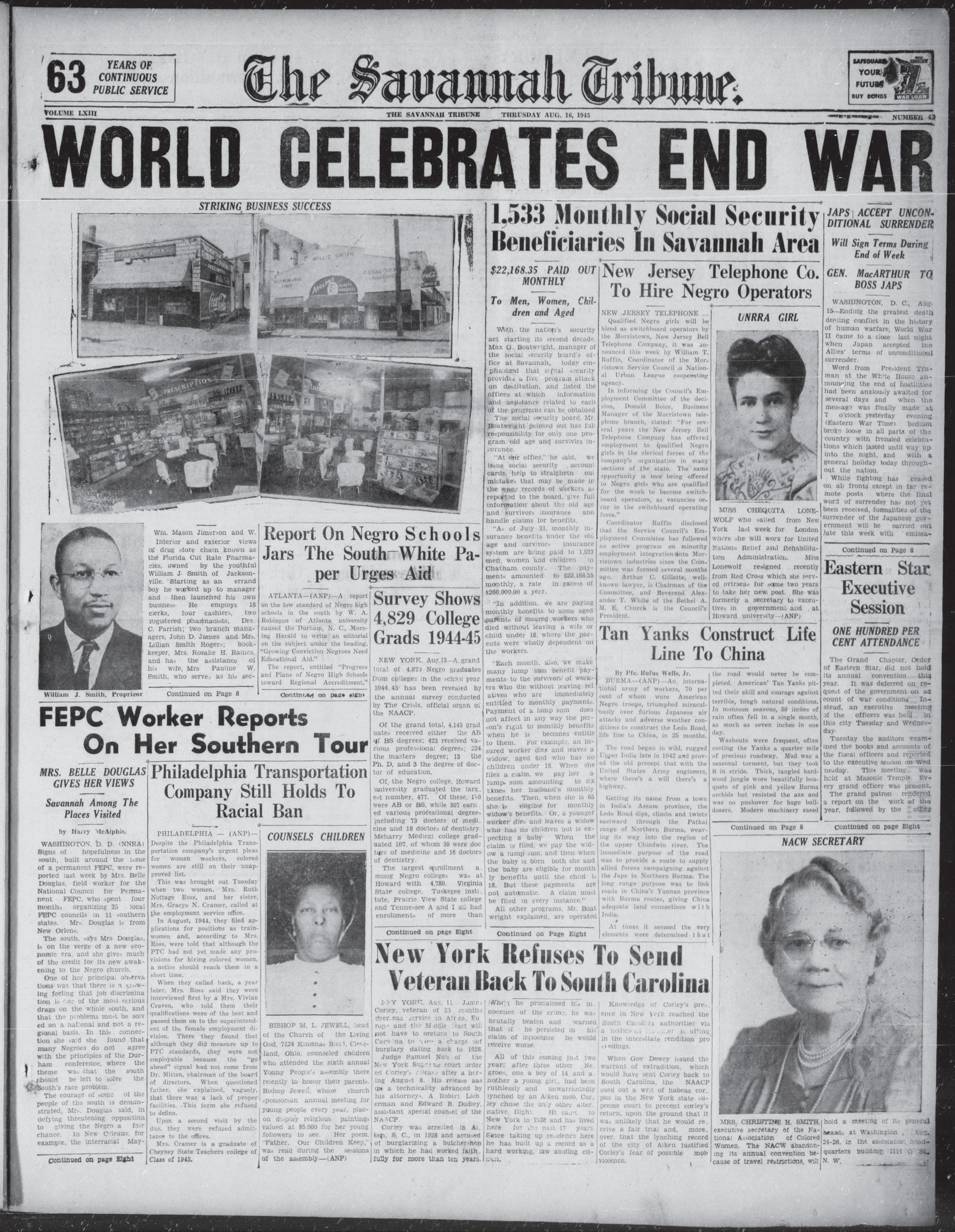
Courtesy of Digital Library of Georgia
Shown here, a copy of The Savannah Tribune from 1945, complete with coverage of the utmost importance to the Black community in Georgia and surrounding states.
Courtesy photo
John H. Deveaux is recorded into the history books as one of three founders of The Colored Tribune, which became The Savannah Tribune. Deveaux, born a free man in Savannah, Ga., served as the paper’s first editor.
Photo courtesy of The Savannah Tribune Savannah Tribune Vice President and Advertising Director Tanya Milton (left), stands with Publisher Shirley B. James and senior graphic designer, Tirany Reeves, work to merge the paper’s historic mission with modern-day media strategies.
Courtesy photo
Robert E. James, husband of current publisher Shirley B. James, is noted for reviving The Savannah Tribune in 1973.
Courtesy of Digital Library of Georgia Shown here, a copy of the The Colored Tribune from April 1876. The publication was started in 1875 by John H. Deveaux, Louis B. Toomer Sr. and Louis M. Pleasant. The publication later changed its name to The Savannah Tribune, and still today upholds its mission to keep the Black community informed.

Enduring legacy: Black funeral homes reflect on a century of service and resilience
By Elijah Qualls AFRO Intern equalls@afro.com
Despite the many adversities they have encountered – or, perhaps, because of them – Black people have a long history of entrepreneurship, and their innovation has had lasting impacts on Black families, communities and the wider American culture and economy. Barred by racism and segregation from participation in the broader economy, Black entrepreneurs created businesses tailored to the needs of their communities, some
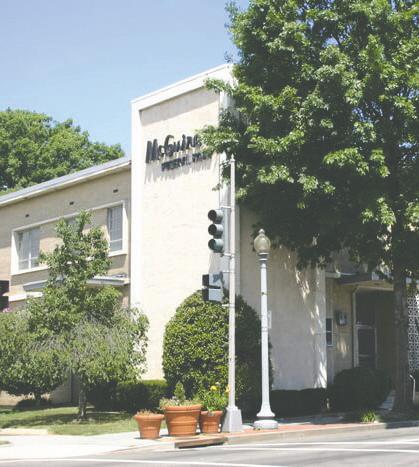
lasting for more than a century.
Black funeral homes are among the list of those that have withstood the test of time, serving generations of Black families in their times of grief and during pivotal moments in history. The AFRO spoke with a couple of noted historically Black funeral homes to discuss their history, impact and advice for other Black businesses.
Raphael Watson is the office administrator and service director for Bynes-Royall Funeral Home in Savannah, Ga.
“We have employees who are non-family members, but we treat them as family members,” he said.
“We are a close funeral home still serving in our community. We are family…serving families.”
Bynes-Royall Funeral Home was founded by Major William H. Royall in 1878. It is the oldest Black business in Savannah and the oldest continuously-owned Black funeral home in the state of Georgia. Watson also explained that the funeral home was a major service provider for Black families through the decades, including during the Great Depression and the Civil Rights Movement.
McGuire Funeral Service, located in Washington, D.C., is another family-owned and operated Black business. Robert G. McGuire founded the business in 1912 and the leadership operations have been passed down through generations. Now, John McGuire, the grandson, handles the
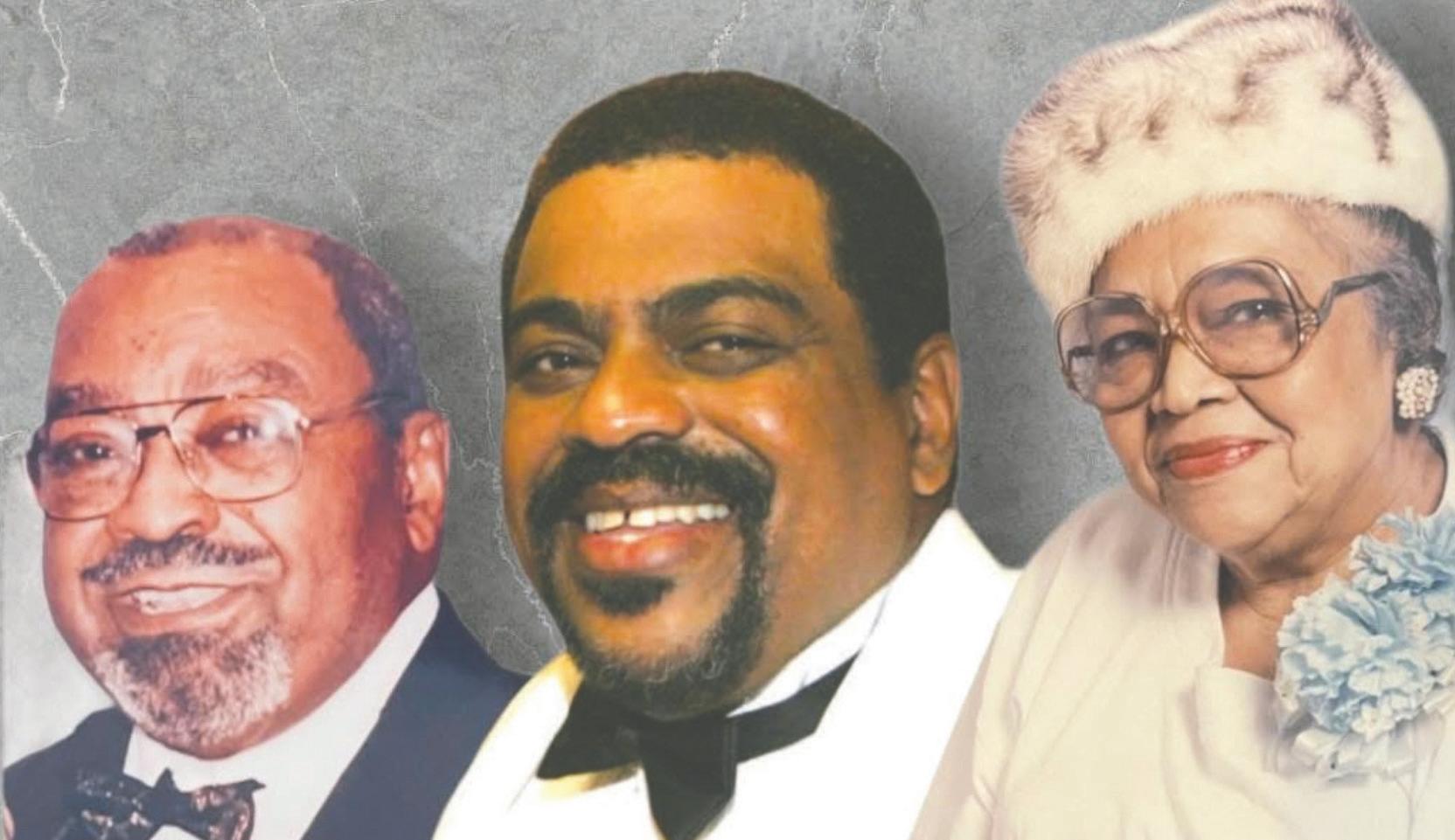
business in the role of vice president. He spoke with AFRO alongside his wife, Lynne McGuire, who is president of the company, about how times have changed for the world of funeral services but also Black businesses.
“The story goes that back in those early days, when he first began, if someone died at home – and most people did back then – he would grab his embalming board, chemicals and instruments, and jump on the street car and go to where the person’s residence was to do the embalming in the house.”
McGuire explained how the implementation of the computer and internet allowed for faster communication.
Commodification of the automobile established quicker commute times. Even something as simple as refrigeration helped, as it allowed for the embalming process to be delayed a few days because the body could be preserved longer.
The McGuire family said that one of the biggest changes has been in their target audiences, as Black businesses were significantly impacted by integration.
“A number of years ago, you
would start a business and think that your primary customers would be an African-American community,” John McGuire said. “[Now,] our folks may not support Black enterprises like they used to years ago. Years ago, there were no other options. You couldn’t go over to Connecticut Avenue to shop.”
“If anyone is starting a business now, I would say if they want to really succeed, they have to do something in a field that is color blind,” said McGuire. “It has to be something that everybody wants to buy or use.”

Located at 7400 Georgia Avenue in Northwest Washington, D.C., the McGuire Funeral Service is still thriving as a Black business with a mission to serve the community. The company was founded in 1912 by Dr. Robert G. McGuire.
Photo courtesy of Meta (Facebook) / Bynes-Royall Funeral Home
Shown here, left to right, Frank Howard Bynes Sr., (June 19, 1916 - March 24, 2002); Raleigh DeWitt Bynes, (Dec. 1.1953 - Nov. 29, 2009) and Frenchye M. Bynes (January 24, 1923- May 26, 2012). Frank Howard Bynes Sr. and Frenchye M. Bynes were founders of Bynes-Royall Funeral Home in Savannah, Ga., and both were licensed funeral directors, while Raleigh DeWitt Bynes served as manager during his tenure.
133 years of coverage and counting
By AFRO Staff
In celebration of the AFRO’s 133rd anniversary, this week’s edition takes readers on a journey through time, revisiting some of the most memorable headlines, hidden gems and iconic images from past decades.
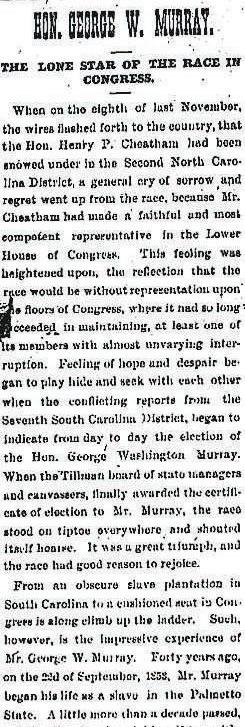
1890s April 1893
George Washington Murray is hailed in one of the earliest AFRO editions available on ProQuest as “The Lone Star of the Race in Congress.” Born a slave, the South Carolinian became a teacher and later served in Congress from June 4, 1896, to March 3, 1897.
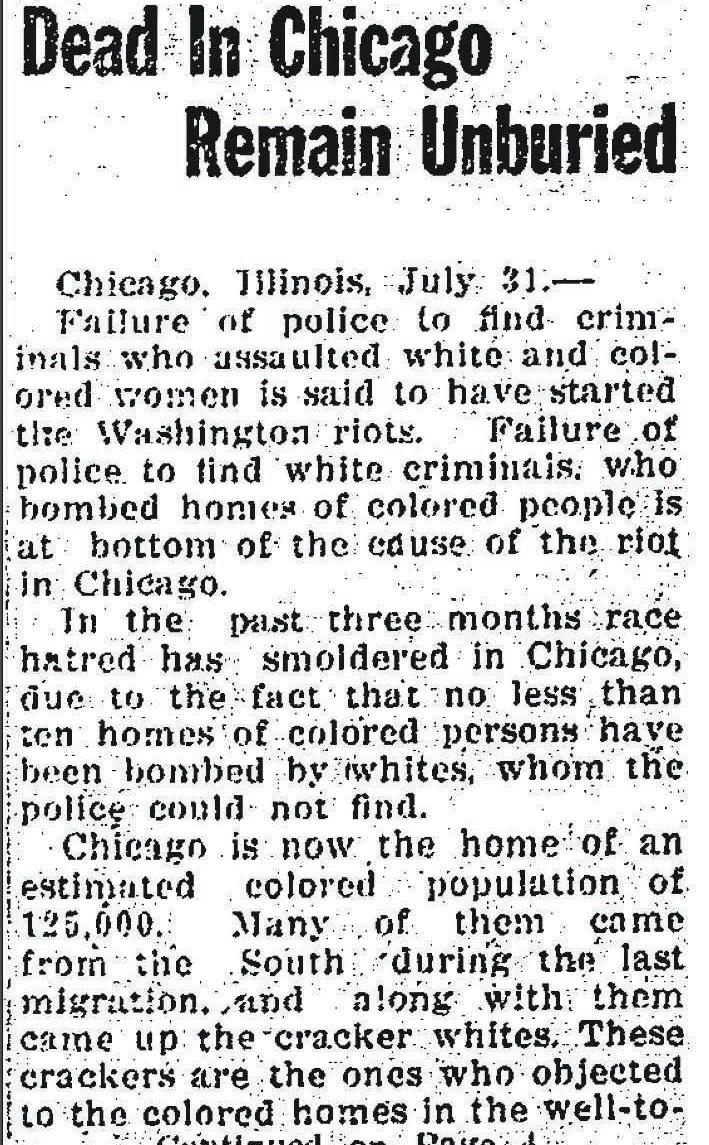
Aug. 1919
Police in Chicago are unable to find the domestic terrorists who bombed and burned the homes of middle class Black people over a three month period.
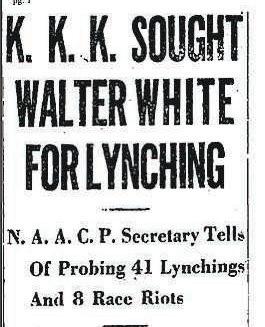
1920s Dec. 1928
In 1928, the AFRO captures the work of Walter White, an assistant executive secretary for NAACP. White was an investigator for NAACP who took on lynching. His physical appearance allowed him to walk freely in circles of White supremacists and extract information, even though he was known as a “colored” man amongst his friends and family.
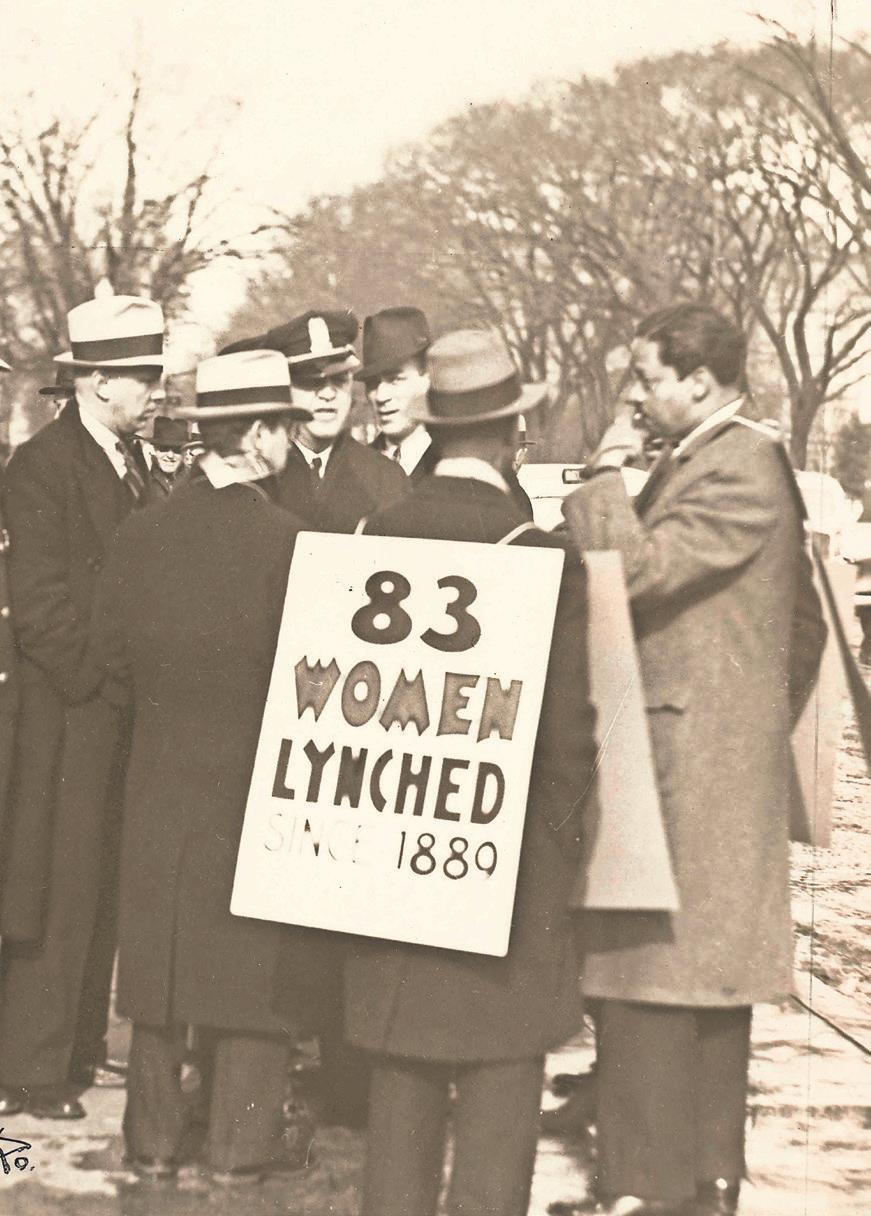
1930s Dec. 1934
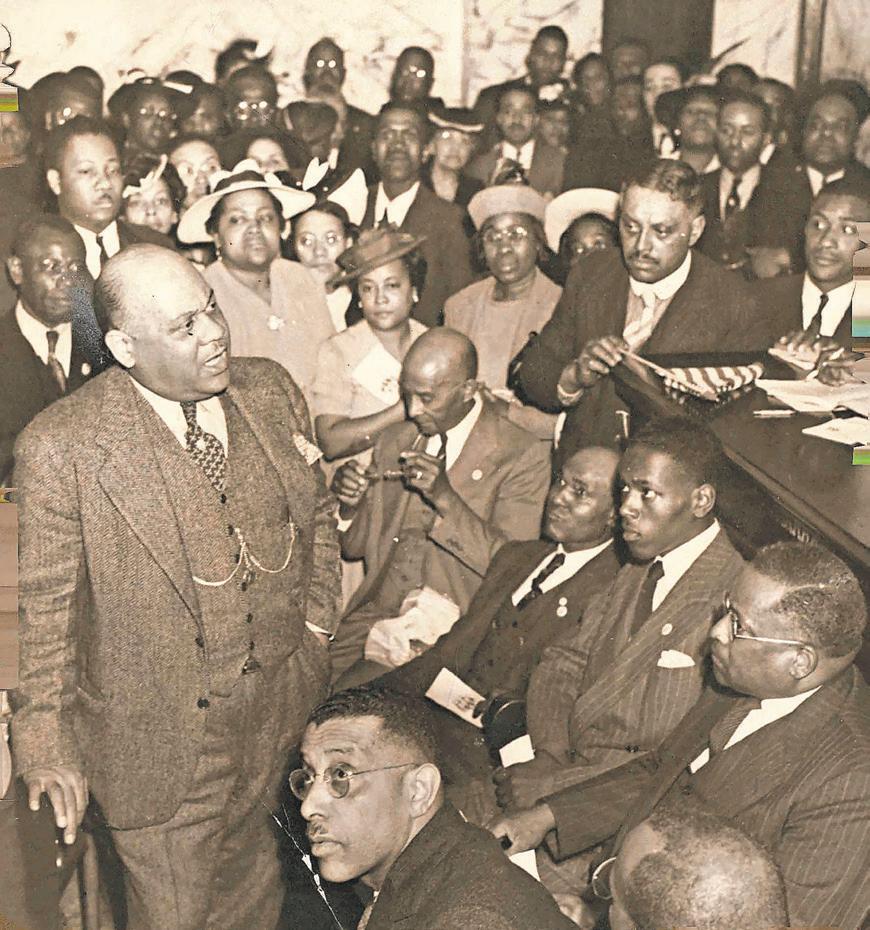
1940s
April 1942
In 1942 the AFRO documents the March on Annapolis. Shown here, Carl J. Murphy (bottom, center) and other local leaders as they prepare to board buses outside of Sharpe Street Church in Baltimore. Decades before the height of the Civil Rights Movement, the AFRO was recording each tiny step toward equal rights for Black people.
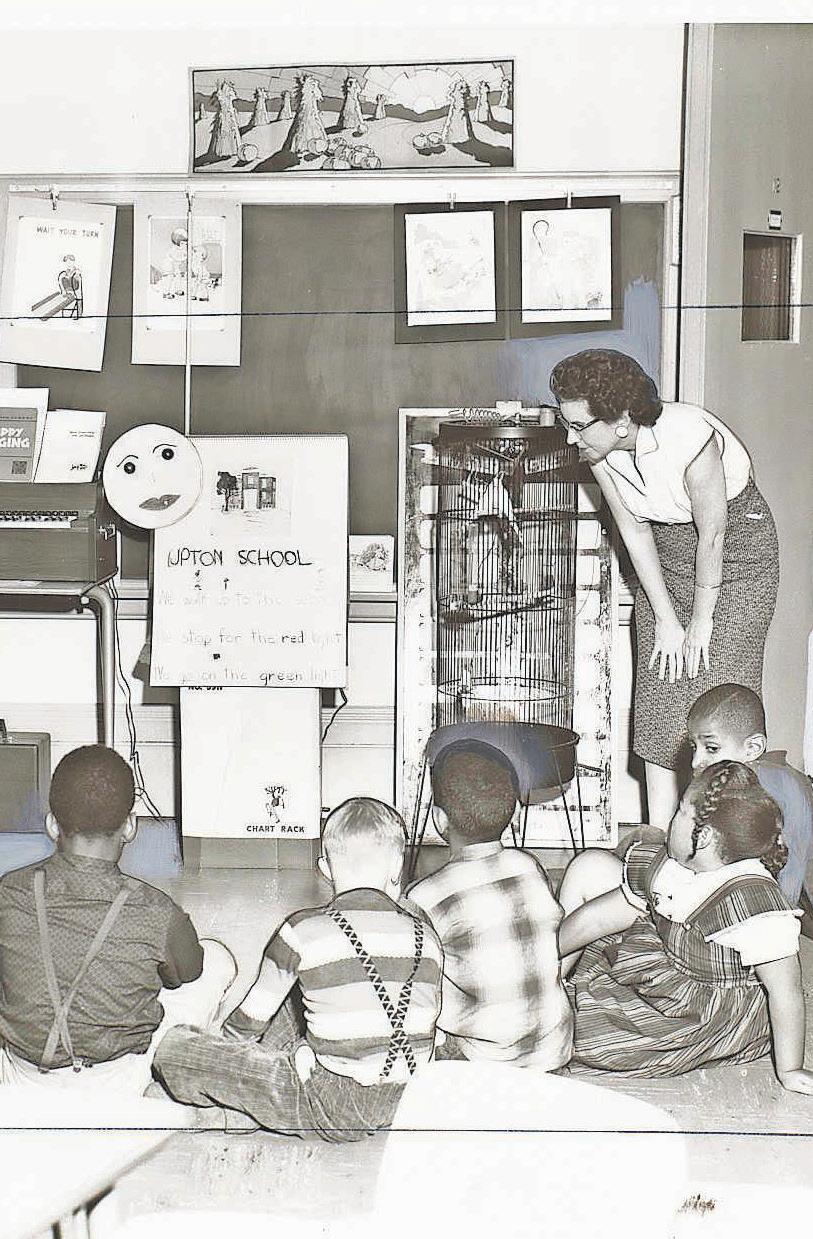
1950s Nov. 1958
1900s
The very first edition of the AFRO in 1902 touches on everything from the involvement of African Americans in Maryland’s political scene to a council meeting of bishops in Philadelphia.
A photographer captures NAACP members at a protest of the 1934 National Crime Conference in New York City. Homer S. Cummings, the U.S. attorney general at the time, attempted to ignore lynchings as a national crisis. This led to a rebuke from then-President Franklin D. Roosevelt.
Charities Inc.
Issues related to the classroom continue to be of the utmost importance to the publication. Shown here, The Upton School in 1958. Decades ago the institution realized the importance of small class sizes, and the AFRO publicized how administrators kept a limit of 10 pupils to each classroom. Shown here, Maxine Richardson, before her class of less than a dozen students.
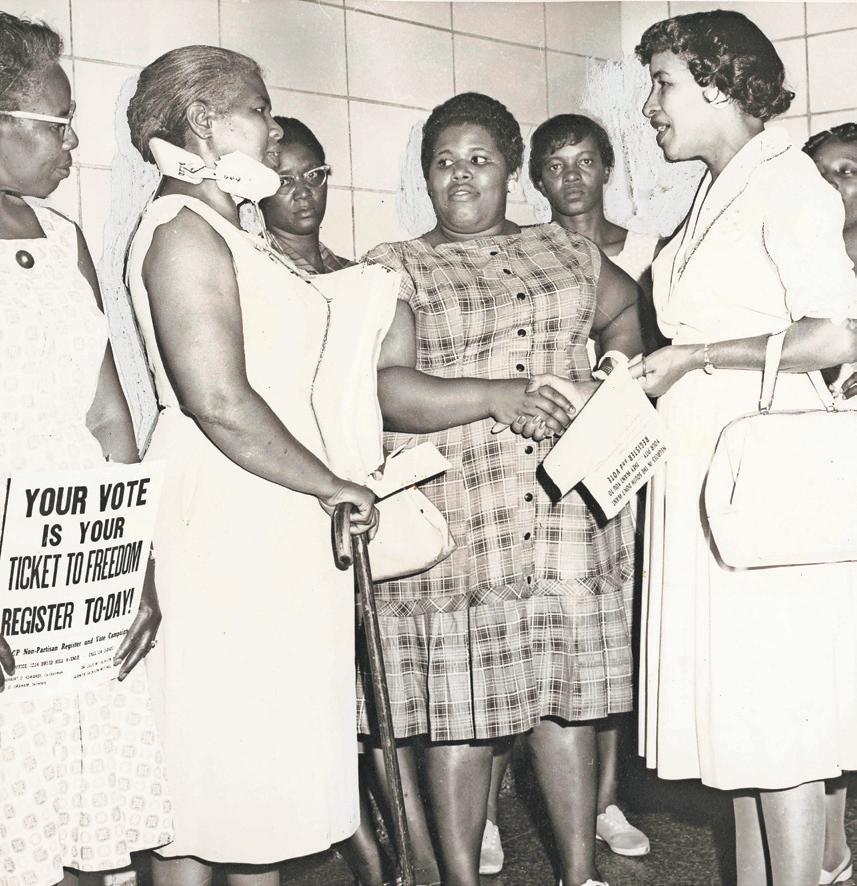
1960s
Aug 1962
State senator nominee Verda Freedom Welcome congratulates the NAACP register and vote team of the United Voters League, headed by Clara Hill. Shown here, Annie L. Norwood (left), Hill, Ella Jewett, Joan Scurry, Belle Hampton, Welcome and Mabel Lane. Welcome donated a bus to transport people for voter registration and went on to win her race.
Welcome served in the Maryland House of Delegates from 1959 to 1962. There, she represented the Fourth District of Baltimore City as the first Black woman to hold the position. She was the second Black woman to serve as state senator. After winning a seat in the Maryland State Senate, she served until 1982.
Afro
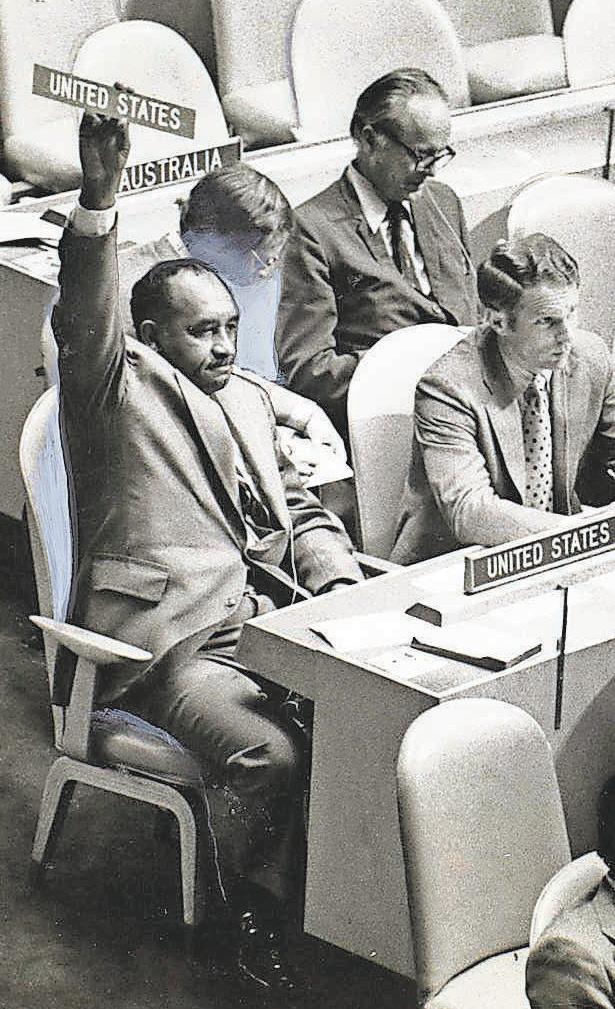
June 1975
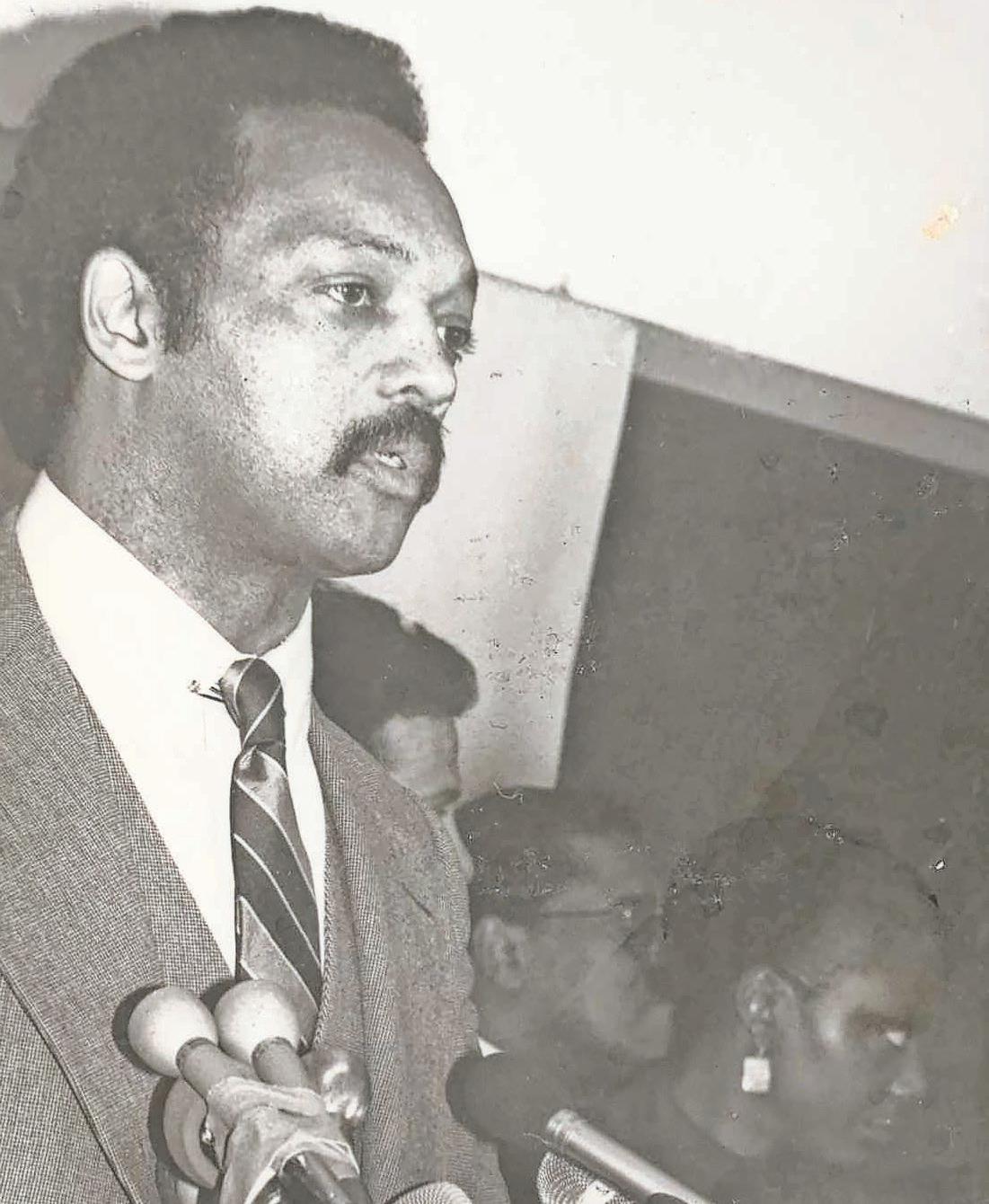
1980s April 1984
The Rev. Jesse Jackson, in his earlier days as a prominent civil rights leader, shown here in 1984.
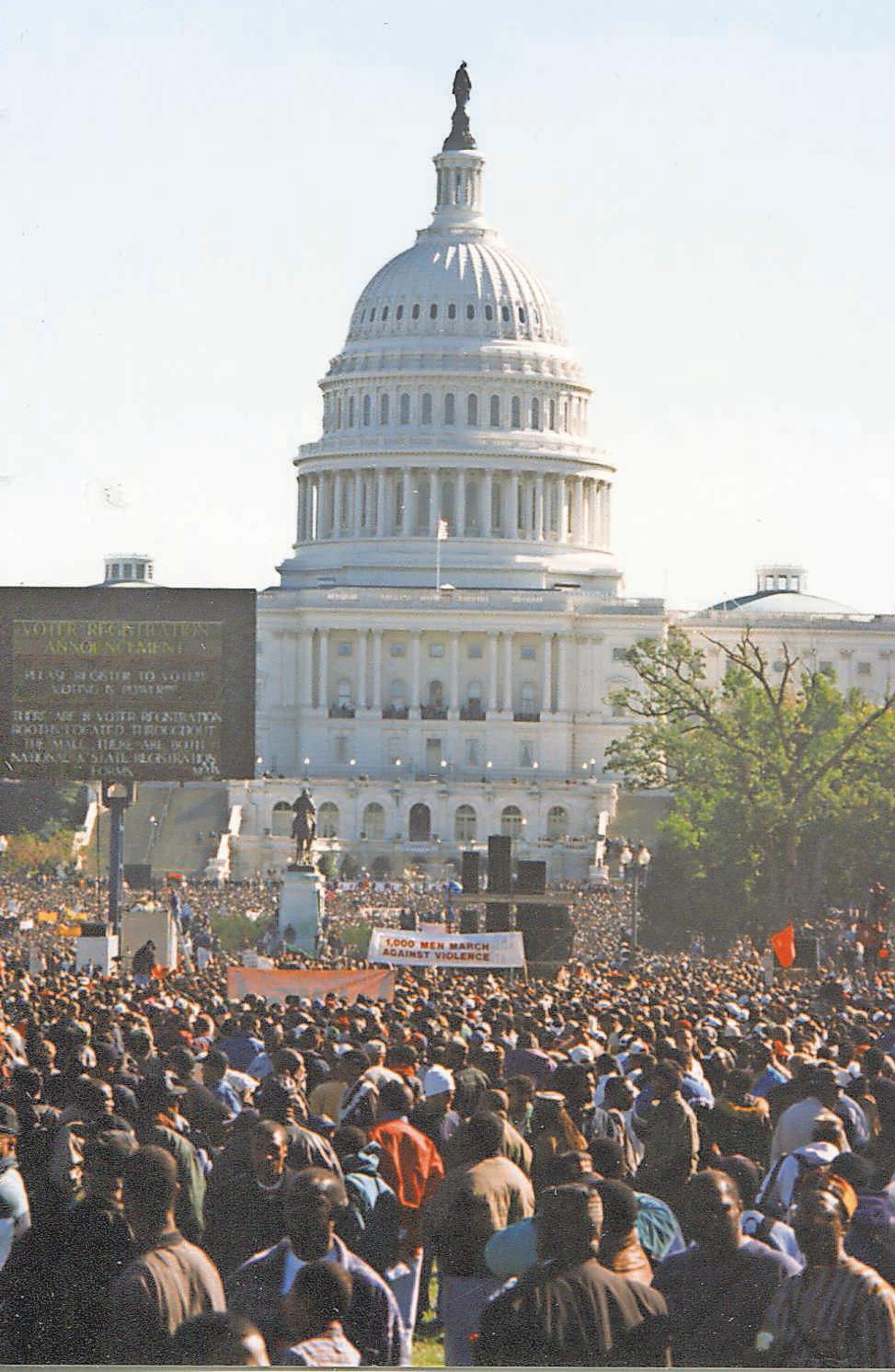
1990s June 1995
Black men from all over the U.S. gather on the National Mall for the Million Man March on Oct. 16, 1995. The demonstration, spearheaded by Minister Louis Farrakhan of the Nation of Islam, was intended to promote unity among Black men. AFRO photographer J.D. Howard solidified his position as an “AFRO All- Star” with his coverage of the event. Howard was laid to rest in February 2024 after decades of service.
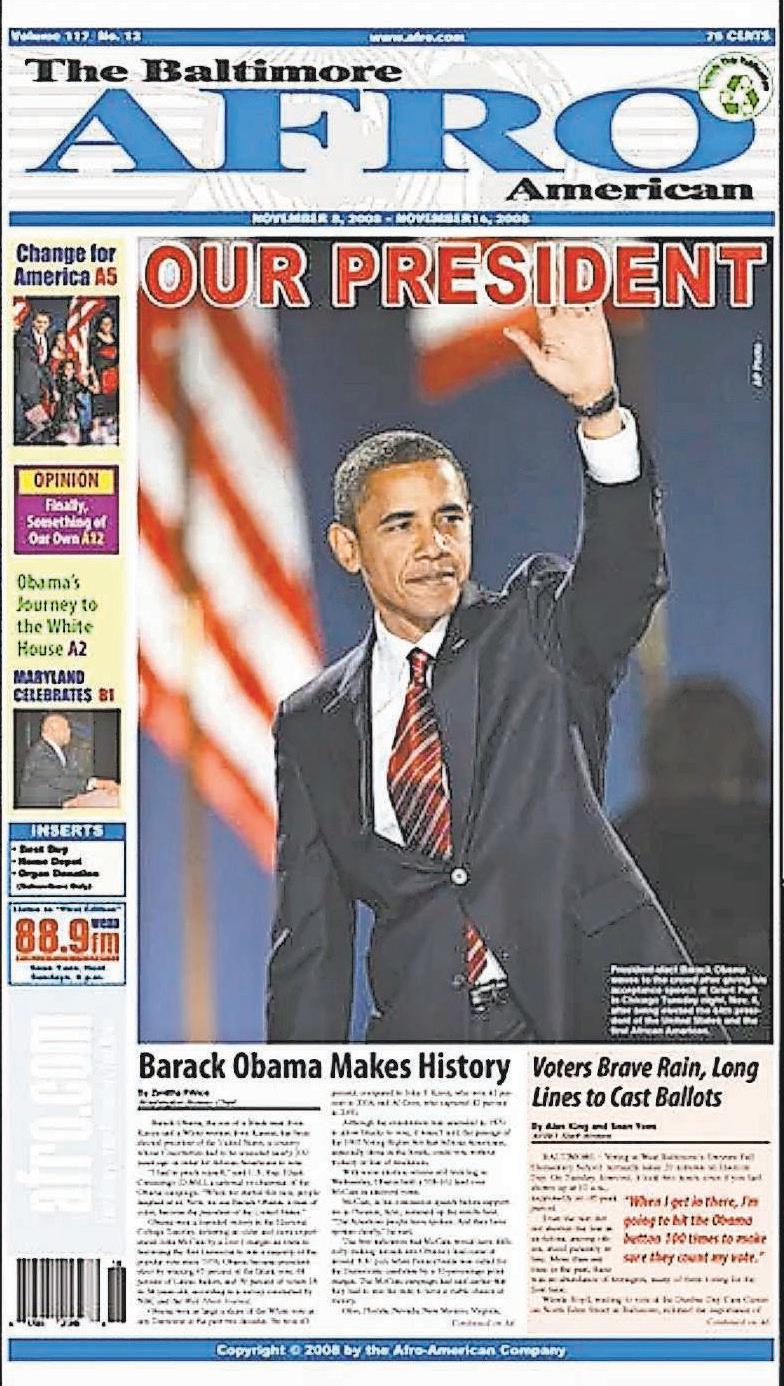
2000s Nov. 2008
The AFRO’s Zenitha Prince delivers coverage of Barack Obama’s rise to become the first Black president of the United States by a landslide victory.
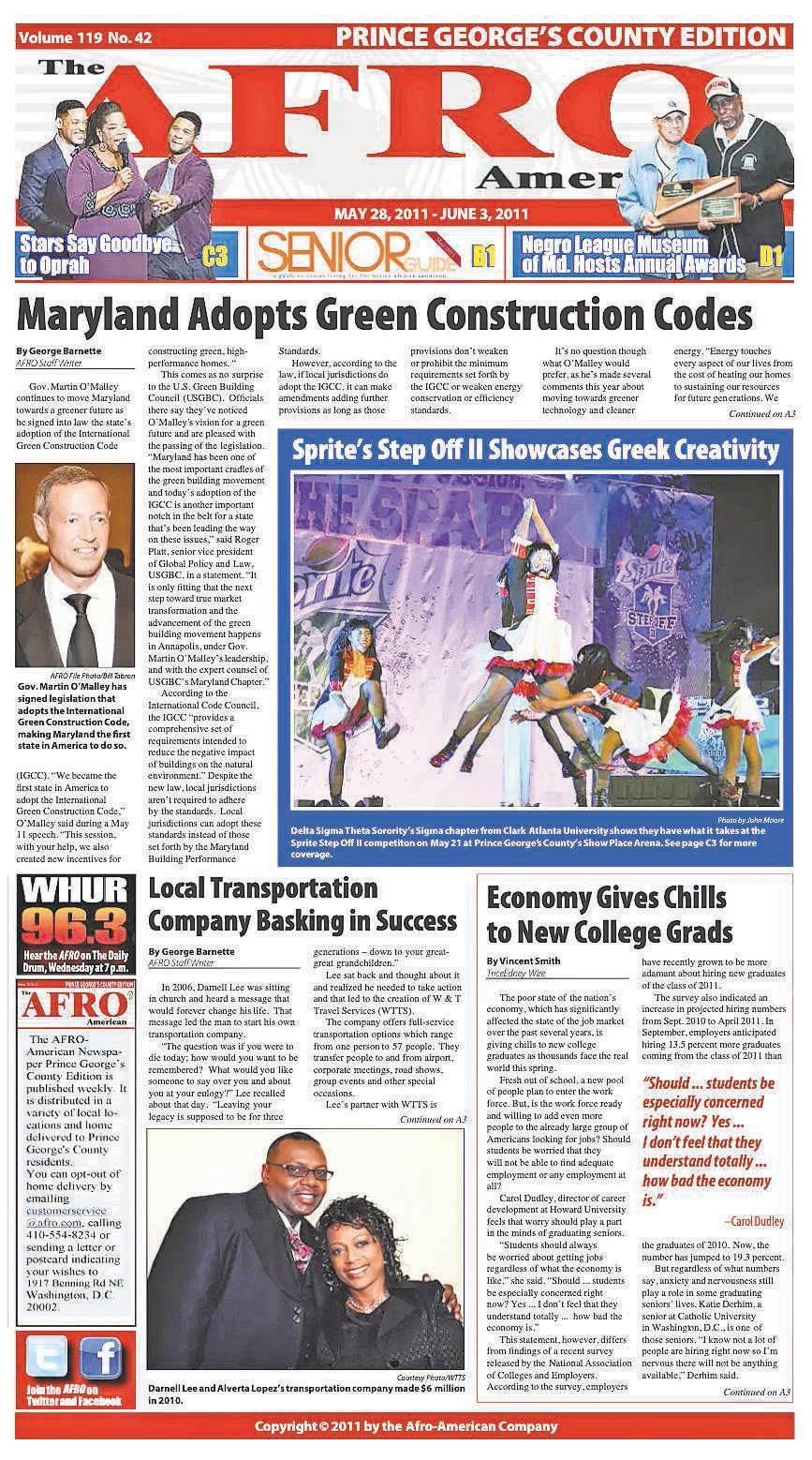
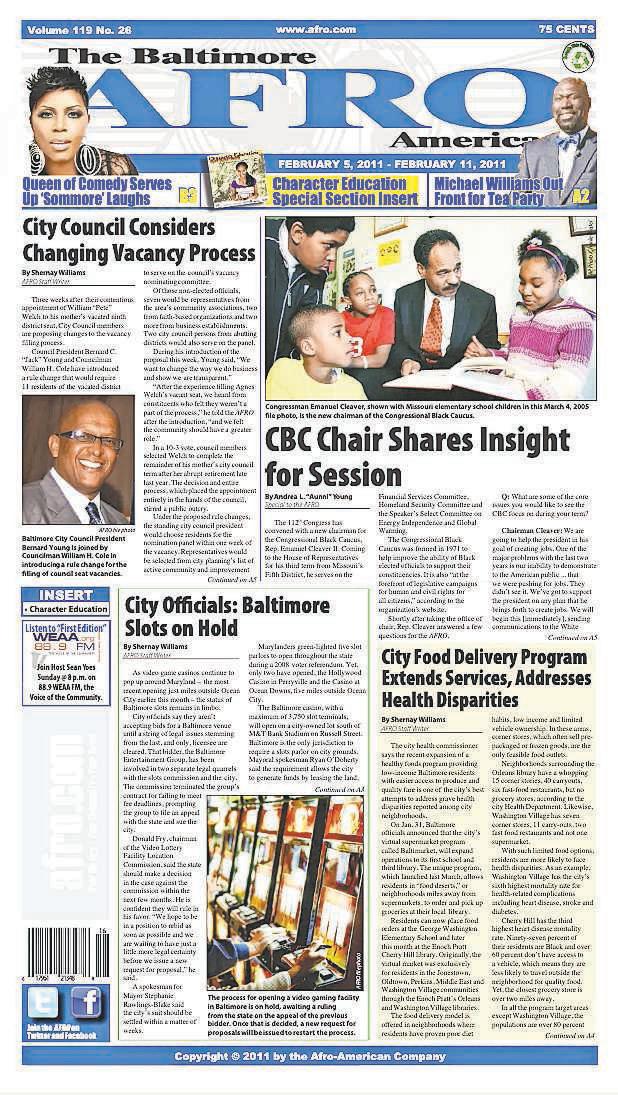
2010s
Covers from the 2011 Baltimore and Prince George’s County AFRO include everything from coverage of the Congressional Black Caucus and local politics to Greek life.
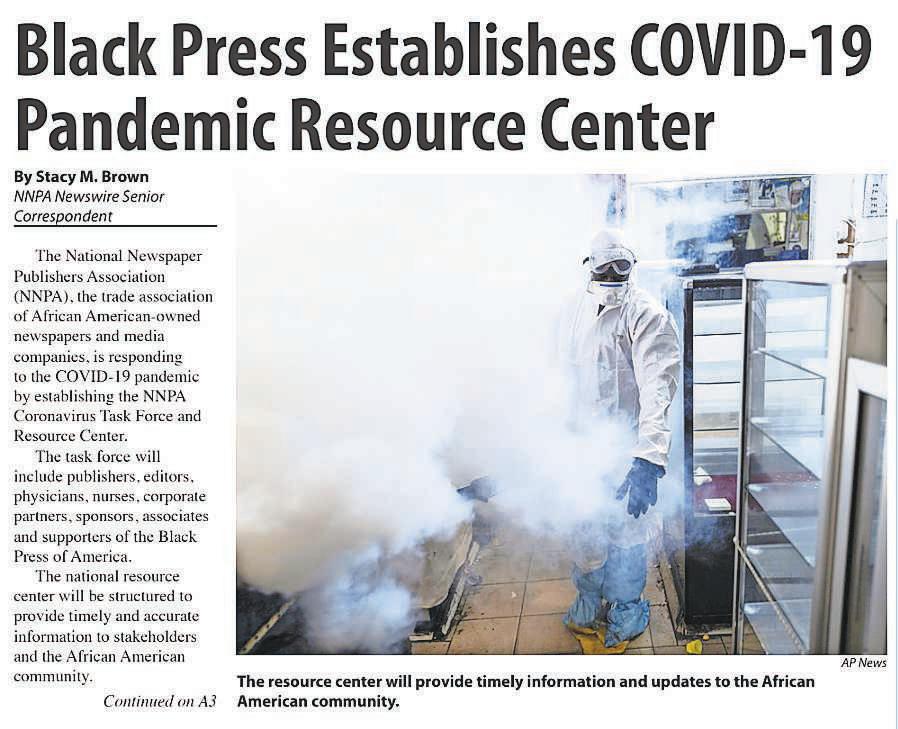
2020 March 2020
The AFRO is a proud member of the National Newspapers Publishers Association (NNPA) to this day. In March 2020, the publication began to cover the NNPA task force to help Black Americans gain access to timely accurate information on the COVID-19 pandemic, which circled the globe, killing millions.
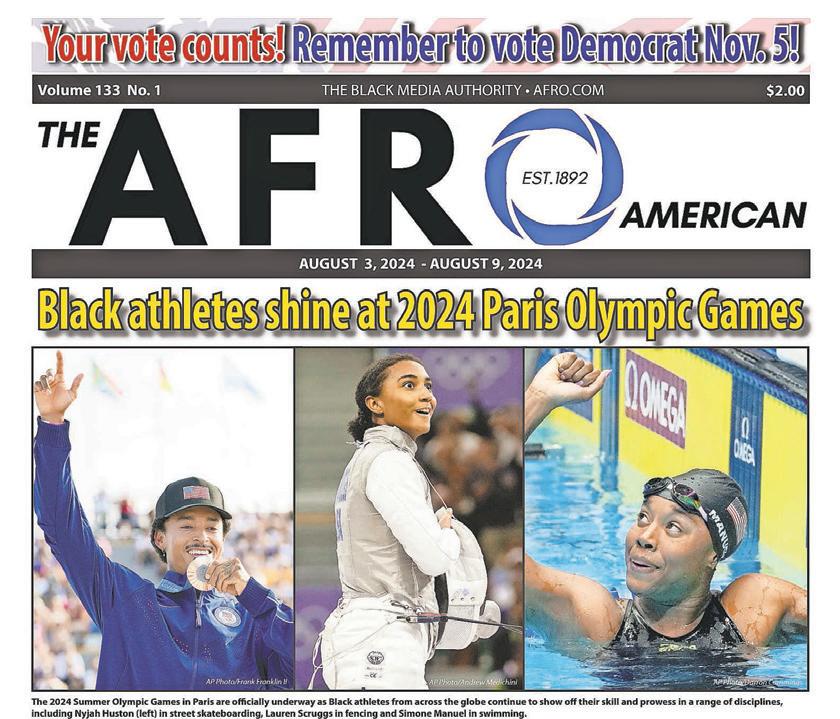
Aug 2024
athletes bring home several gold
and world records from the
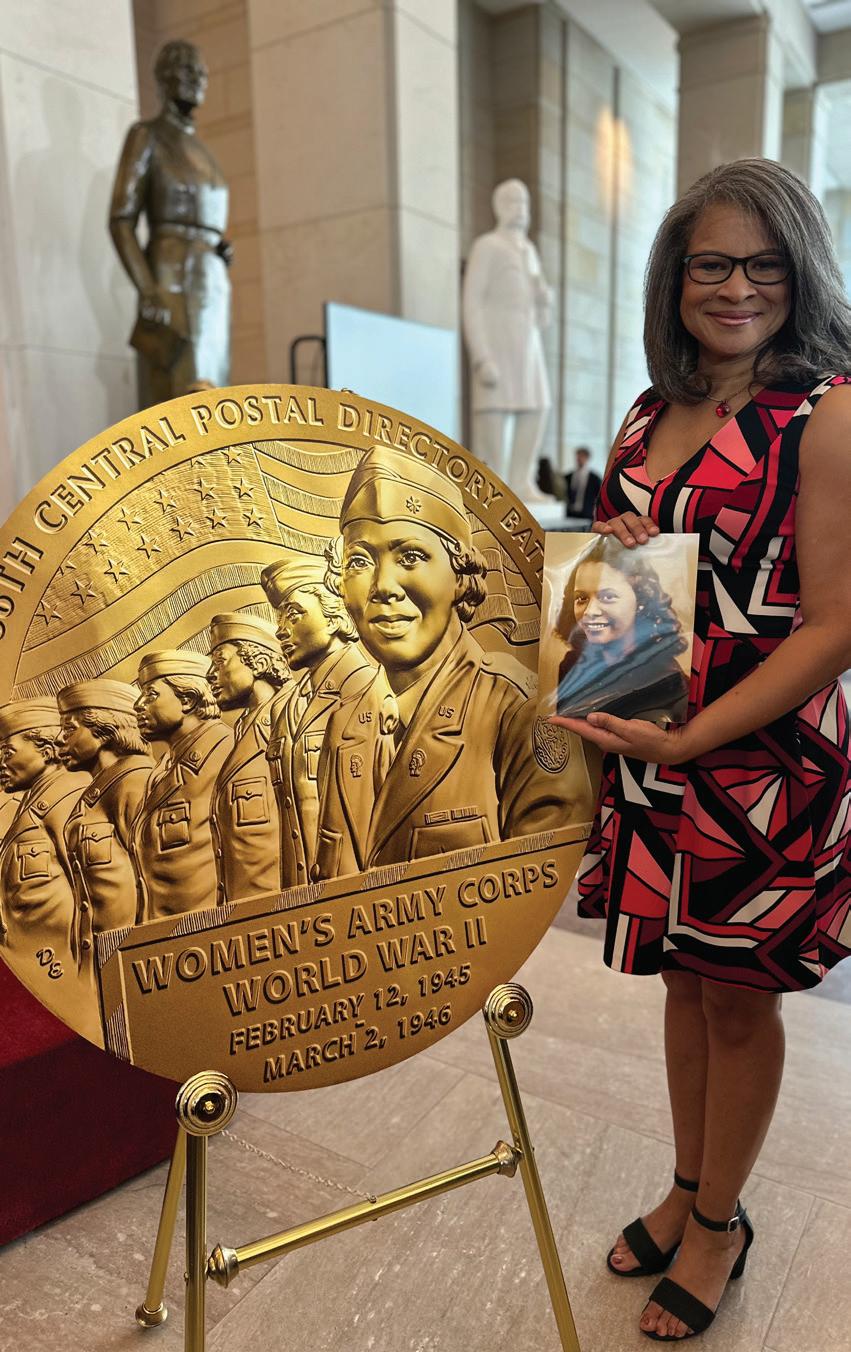
April 2025
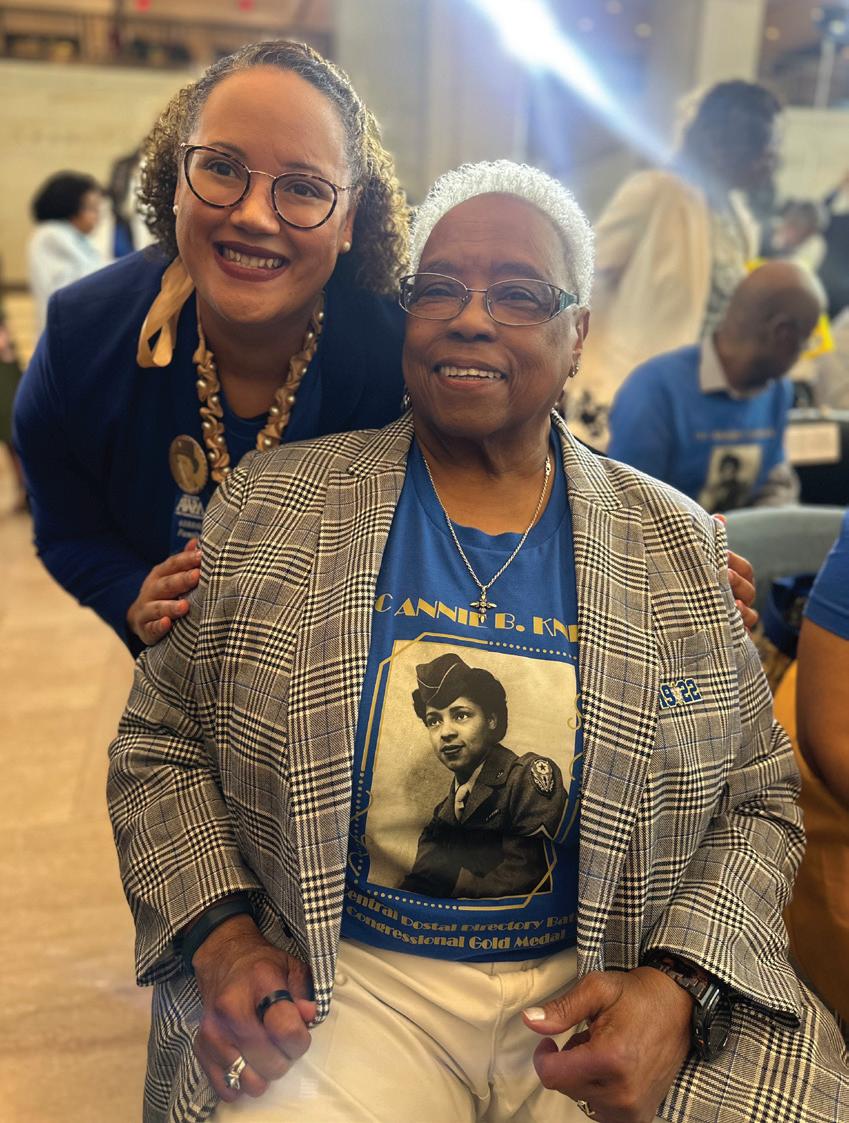
Black
medals
2024 Summer Olympics held in Paris. Winners included Nyjah Huston (left), a street skateboarder; Lauren Scruggs, a fencer; and Simone Manuel, a swimmer.
Afro Charities Inc.
1970s
Shown here, Clarence Mitchell Jr., U.S. delegate in the United Nations General Assembly of 1975, as he raises his hand to speak.
AFRO Photos / Alexis Taylor
Angela King holds a photo of her grandmother, PFC. Laura Amelia Bias, who was a member of the 6888th Central Postal Directory Battalion. The women of the unit were honored with a Congressional Gold Medal on April 29.

How Black businesses thrived in 1925 Baltimore—and what entrepreneurs can learn today
By Victoria Mejicanos AFRO Intern
vmejicanos@afro.com
As the AFRO celebrates 133 years, the publication reflects on the history of Black businesses in Baltimore, and examines what it meant to be a Black business owner in 1925 and challenges faced by Black business owners in 2025.
Despite the obstacles that came with the Jim Crow era, business ownership was not impossible for Black Americans in 1925, and had actually started long before then. According to author and historian Philip J. Merrill, even if certain spaces for Black people couldn’t exist legally, they made their own. Merrill himself is a business owner, founding Nanny Jack and Company, an African-American heritage consulting firm with thousands of artifacts from the 1700s to present day.
Merrill called old West Baltimore a “hidden Black Wall Street.”
“It’s been under researched, underappreciated and undervalued,” said Merrill. “It was a sustainable community during Jim Crow that was producing
quite a bit of wealth, financial [and] economic impact.”
One of the major reasons Black businesses were able to thrive in the area was the influence of Black benevolent and fraternal societies. According to Merrill, they offered services like sick benefits, death benefits and –most importantly– camaraderie.
“It allowed the level of inclusivity that mainstream America was not providing. And many of the talented entrepreneurs were involved in various groups, so reach was tremendous. You see the same power brokers network and create all kinds of success.”
Over a century ago, colored business directories gave people a guide of where to shop and who owned each business in Baltimore. Published yearly by R.W. Coleman from 1913-1946, it allowed Black people to shop and potentially work where it would be appreciated. According to Merrill, the directories were the precursor to the Green Book, which helped Black Americans travel safely during the Jim Crow era.
One entrepreneur fondly remembered was Harry O. Wilson Sr., who
ran the Mutual Benefit Society and was the developer of the historic Wilson Park, a northeast Baltimore enclave that was one of the first African-American communities in the city.
Wilson’s business acumen afforded him the opportunity to employ thousands and provide families with stability for generations. Additionally, the services he provided through his businesses – providing loans and insurance, and selling and developing real estate – allowed Black people to build their own homes, worship in their own churches and care for their sick, among other pursuits. According to Merrill, Wilson Sr. was quite the philanthropist, even helping finance a southern White hotel that he could not set foot inside of. A 1926 article by the AFRO called Wilson Sr. a “financial genius.”
There were several other genius entrepreneurs who owned hotels, baseball teams, bars, theatres and microenterprises that allowed Black Baltimore to thrive, according to Merrill.
David Armenti, vice president of Education and Engagement at the Maryland Center for History and Culture,
“We’re in troubled times right now in America but if you look at your history, Black folks have been in troubled times before and we survived.”
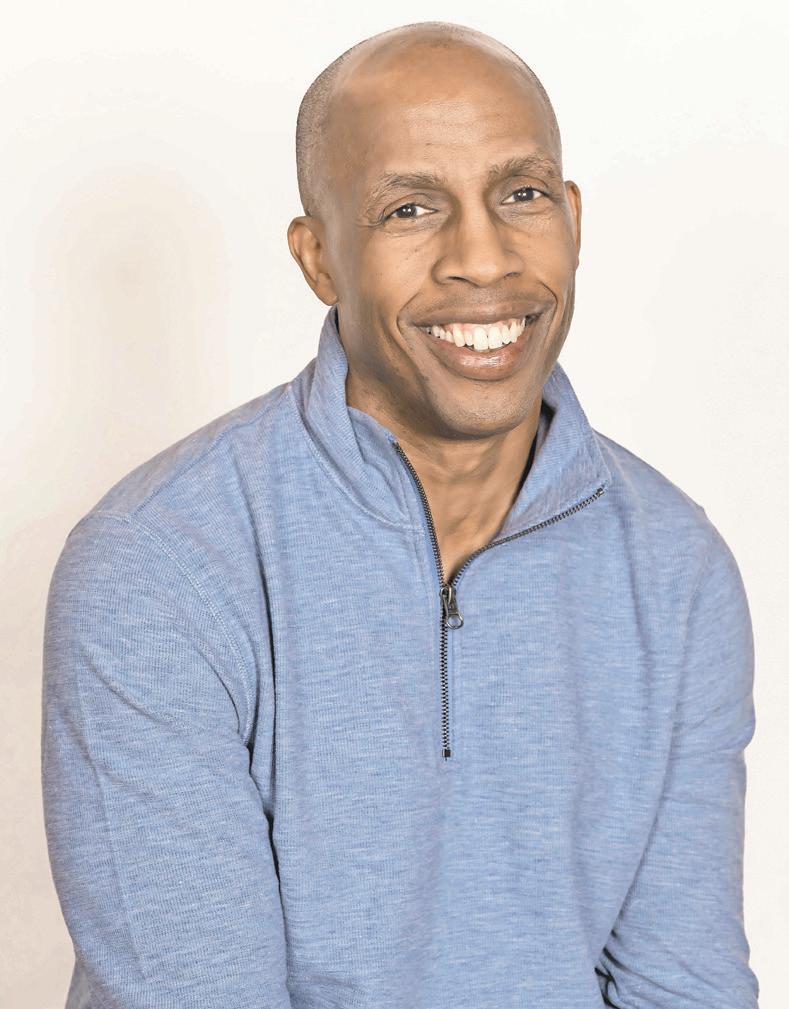
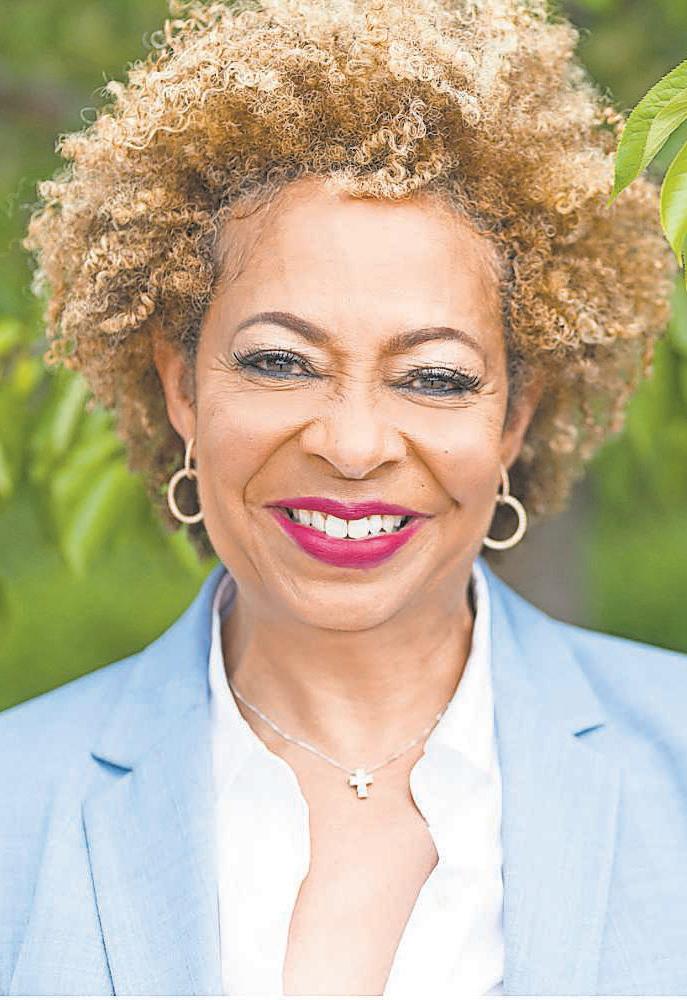
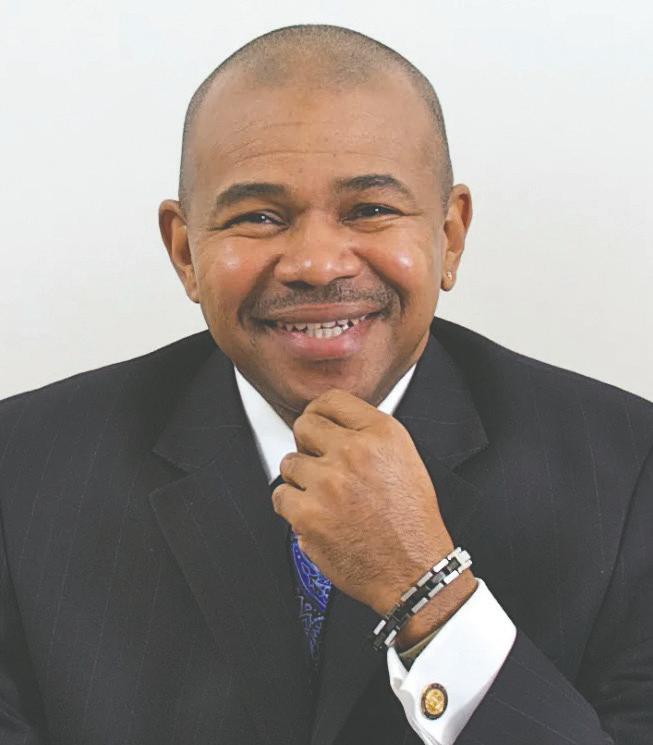
shared that although there are no longer clear legal obstacles to business ownership in 2025, there are negative attitudes that persist and are shared by the media about Black businesses and Black people– especially in Baltimore.
“We still do suffer as we see in a variety of ways from the negative and frankly racist attitudes of community members that may not want to support these businesses or feel there’s going to be something less quality about those industries,” said Armenti.
A look at the century-old businesses still going strong
By Tashi McQueen AFRO Staff Writer tmcqueen@afro.com
Owning a business that makes it to 100 years or more is a significant feat, especially for Black business owners who often face multiple layers of adversities along the way.
Throughout the history of the U.S., Black business owners have had to endure and navigate systemic racism in its many shapes and forms, including a lack of financial opportunities, exclusion and economic exploitation.
“Systemic racism is quieter in Boston than some other cities, but it’s still very present and has a steel-like grip on the opportunities that are available for Black and Brown opposed to White firms,” said John B. Cruz III, a president and CEO of Cruz and Companies.
“As a Black-owned firm that has been in business almost 78 years, we still don’t get opportunities or get doors closed in our face because of systemic racism.”
According to the 2024 State of Black Business report, 97 percent of Black-owned businesses have fewer than 20 employees, and most have under five.
Though these businesses are growing year over year, Black entrepreneurs remain underrepresented—making up just 2.5 percent of all U.S. businesses in 2021, up slightly from 2 percent in 2018. That year, there were 49,326 Blackowned businesses, a sharp increase from 2018.
Though Black-owned businesses may be smaller in number, when they are able to endure they inspire many.
“When I was nine, my father, Tommie L. Turner, told me stories about Black entrepreneurs who built businesses during segregation,” said
Nathaniel A. Turner, co-founder of League of Extraordinary Parents. “Those stories inspired me to start a lawn service, which allowed me to buy a red Schwinn and later cover my expenses through middle and high school. Their legacy stayed with me.”
League of Extraordinary Parents is a charitable non-profit that works to improve the educational and socio-economic futures of youth.
This National Black Business Month, the AFRO is spotlighting three Black-owned businesses that have persevered and have been operating for around 100 years.
The Chicago Defender
Robert Sengstacke Abbott founded the Chicago Defender on May 5, 1905, with just 25 cents and an initial press run of 300 copies. The first issues was a four-page, six-column handbills filled with local news content gathered by Abbott and other newspapers. After five years, the paper gained national notability, going on to become one of the nation’s most influential Black weekly newspapers by the start of World War I.
Now, 120 years later, the Chicago Defender operates as a digital-only weekly news source—carrying forward a legacy of accolades that reflect its powerful role as the eyes and ears of Black America.
W.H. Jefferson
Funeral Home
W.H. Jefferson Funeral Home has served the Vicksburg community in Mississippi since 1894. Founded by William Henry, Mississippi’s first Black funeral director, and Lucy Jefferson, a community leader, the legacy of service, integrity and excellence continues through the generations of this company.
The Jefferson family has been so impactful in their community that in 2004, they were honored with their likenesses in the Vicksburg Riverfront Murals, a series of painted portraits with a theme of “New Beginnings and Lasting Legacies.”
The business is now co-owned by James E. Jefferson Jr. and his uncle, Robert Sr., and continues to serve the Vicksburg community in times of grief and loss—from the same location it has called home for decades.
McKissack and McKissack
McKissack and McKissack was founded in 1905 by brothers Moses and Calvin McKissack in Nashville, Tenn. It is the nation’s first Black-owned architectural firm and the oldest still in operation today as a national family business.
The brothers, trained via correspondence courses and licensed in 1922 in Tennessee, originally focused on church architecture, gaining recognition for projects like the Morris Memorial building and Beebe Memorial CME Church. They also won the largest federal contract awarded to a Black-owned company at the time—designing the Tuskegee Army Airfield during World War II.
After the founders’ deaths, family members stepped up and continued to lead the firm, reaching national expansion under Deryl McKissack–a member of the fifth generation.
The survival of these companies stands as an example of what can be achieved with persistence and determination.
“These Black-owned businesses didn’t just survive racism, recessions and exclusion, they created a legacy,” said Turner. “They made it possible for others like me to build promising futures.”
According to Merrill, what today’s Black entrepreneurs can learn from their predecessors in terms of surviving and thriving is the importance of community.
“If you want a blueprint for success just look at your history,” Merrill said. “We’re in troubled times right now in America but if you look at your history, Black folks have been in troubled times before, and we survived because we found a way to work together, to collaborate.”
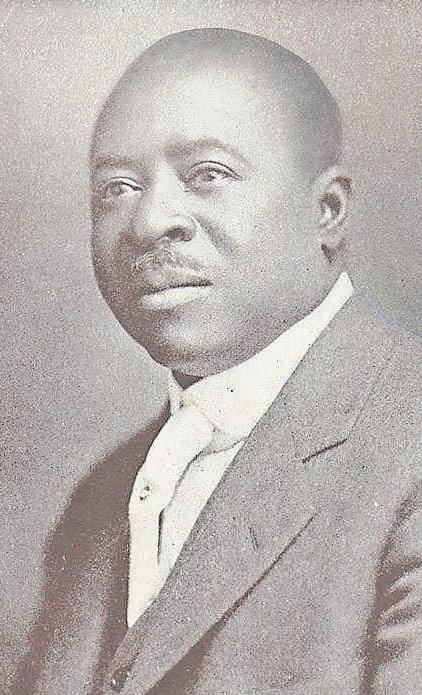
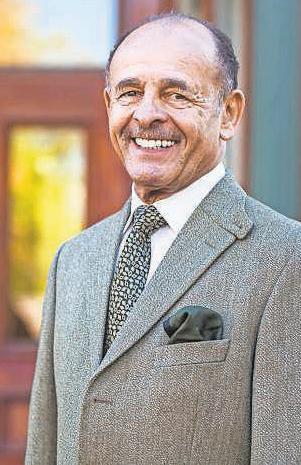
Photo courtesy of Nanny Jack and Company
Historian and entrepreneur Philip J. Merrill, founder of Nanny Jack & Co., draws on centuries of Black history to highlight the resilience and innovation of African-American business owners in Baltimore.
Courtesy photo
Nathaniel A. Turner, co-founder of League of Extraordinary Parents, shares how stories of Black entrepreneurs inspired his journey and commitment to empowering youth through education and opportunity.
Courtesy photo
Deryl McKissack, fifth-generation leader of McKissack and McKissack, continues the family legacy by expanding one of the nation’s oldest Black-owned architecture and construction firms.
Courtesy photo John B. Cruz III, president and CEO of Cruz and Companies, addresses the ongoing challenges Black-owned businesses face amid systemic barriers, drawing from his company’s 78-year legacy.
AFRO Archives
Robert Sengstacke Abbott is remembered as founder of the Chicago Defender. He launched his newspaper on May 5, 1905 with just 25 cents and 300 copies. By World War I, his paper rose to become one of the most influential Black weekly publications in the nation.



AFRO NEWS
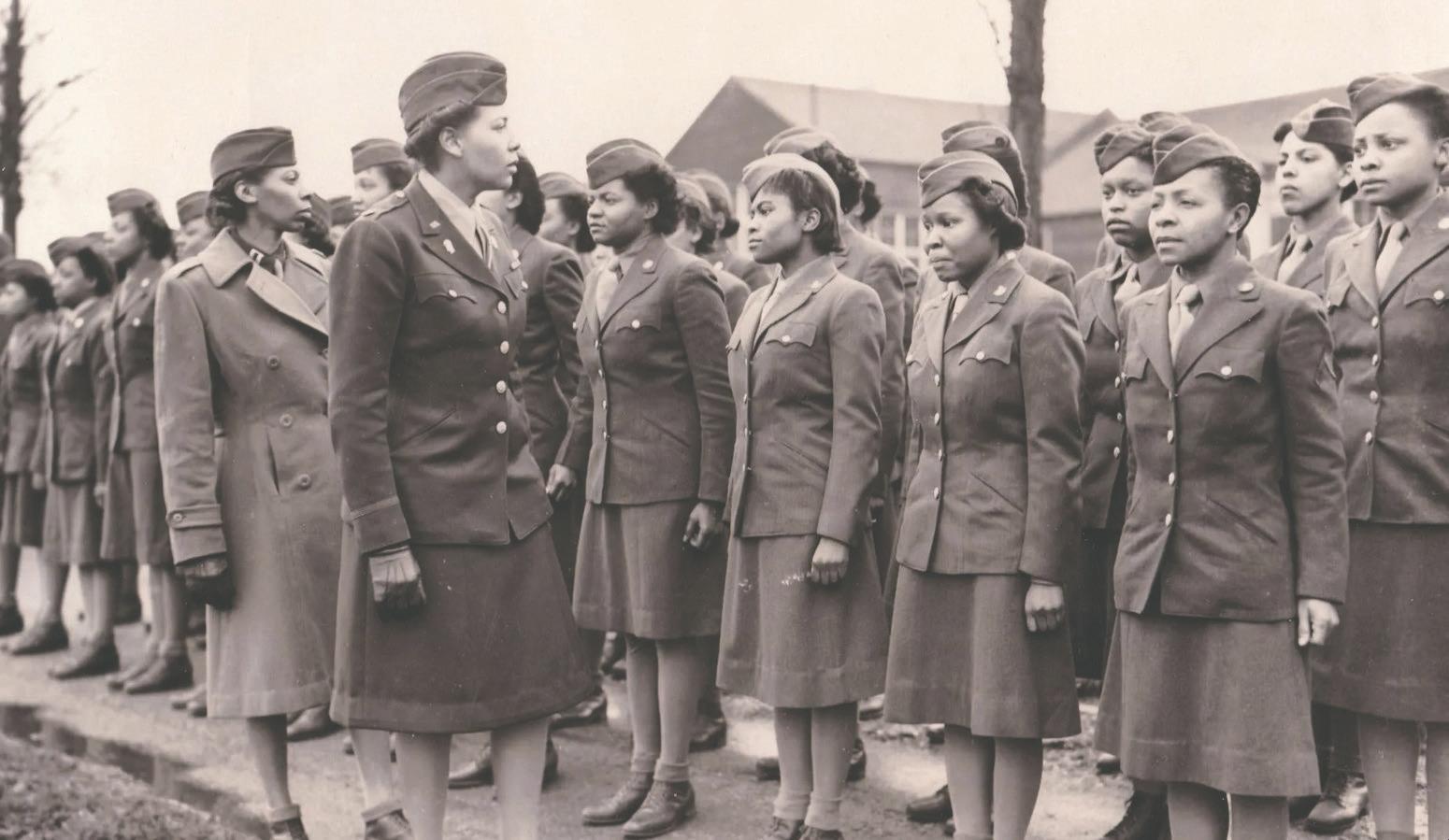
Petition for 6888th Forever Stamp in need of support
By Tavon N. Thomasson
Intern
A national movement is calling for the U.S. Postal Service to issue a Forever Stamp honoring the 6888th Central Postal Directory Battalion. Using written letters and a Change. org petition supporters are pushing for the stamp to highlight the groundbreaking service of the more than 800 Black and Brown women who made up the 6888th Battalion during World War II (WWII). Known as the only all-Black, all-woman battalion unit to be deployed overseas during WWII, the unit cleared more than 17 million pieces of mail– a massive backlog that significantly impacted soldier morale–under harsh wartime conditions. The
6888th Battalion included PFC Vashti
Murphy Matthews, a member of the AFRO’s founding family.
Over the years, the women have been recognized with monuments and national tributes. Most recently, in April, the women officially received a Congressional Gold Medal.
Still, supporters say one form of recognition remains missing: a commemorative stamp.
“We call on the United States Postal Service to issue a Forever Stamp honoring the 6888th Central Postal Directory Battalion,” say organizers of the petition on Change.org.
“A stamp is more than postage, it is a symbol of national recognition, a piece of everyday art that carries messages and meaning. A Forever Stamp
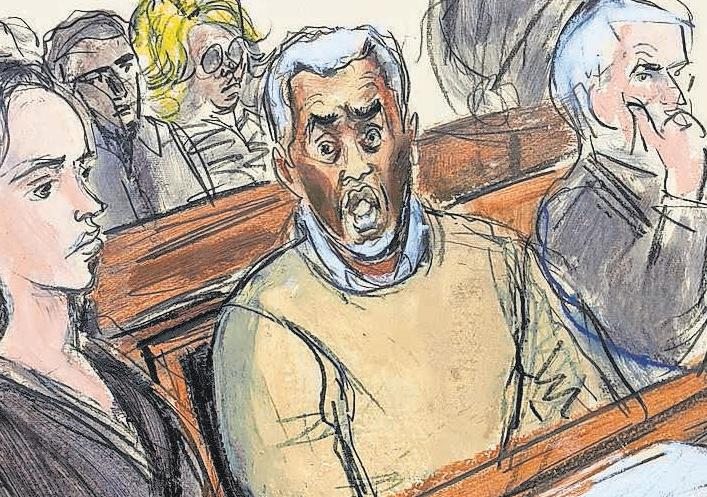
Elizabeth Williams via AP, File
In this courtroom sketch, flanked by defense attorneys
Teny Geragos, left, and Brian Steel, right, Sean “Diddy” Combs, center, reacts after he was denied bail on prostitution-related offenses, July 2, 2025, in Manhattan federal court in New York.
Judge
says Sean
‘Diddy’ Combs must stay in jail until he is sentenced
By Jennifer Peltz
Sean “Diddy” Combs can’t go home from jail to await sentencing on his prostitution-related conviction, a judge said Aug. 4, denying the rap and style mogul’s latest bid for bail. Combs has been behind bars since his September arrest. He faced federal charges of coercing girlfriends into having drug-fueled sex
marathons with male sex workers while he watched and filmed them.
He was acquitted July 2 of the top charges — racketeering and sex trafficking — while being convicted of two counts of a prostitution-related offense.
In denying Combs’ $50 million bond proposal, Judge Arun Subramanian said the
dedicated to the 6888th would not only honor their service and sacrifice but also spark awareness, education, and inspiration across generations.”
Organizers say realizing their dream of a 6888th Forever Stamp would go a long way in making sure the entire country is aware of the sacrifice made by the women.
“Every time such a stamp is affixed to a letter, it would carry with it the legacy of perseverance, service, and patriotism,” say organizers in the petition. “It would celebrate the unsung heroes who fought not just a global war, but a battle for dignity and inclusion within their own country.”
To help the women of the 6888th
OPINION
Obama’s office blasts latest accusations as desperate “misinformation”
By Stacy M. Brown
Donald Trump’s fixation on former President Barack Obama has long bordered on obsessive. Now, it’s official government policy.
Trump’s Justice Department has launched a federal grand jury investigation targeting former Obama administration officials—an apparent political hit job tied to Trump’s long-standing false claims that Obama and his team “manufactured” the Russia investigation to sabotage his presidency.
Many have opined that Trump ran for president not to save the country, but to save himself. After being convicted on 34 felony counts, found liable for sexual assault and held civilly responsible for massive business fraud, Trump launched his 2024 campaign under legal siege. And it worked—he’s once again in the Oval Office.
Now, he’s going after the one man he’s despised more than anyone else: Obama.
Backed by a Supreme Court ruling that grants him immunity for “official acts,”
Trump has unleashed his Justice Department to investigate Obama-era officials in what critics say is a dangerous
political revenge plot.
Attorney General Pam Bondi has convened a federal grand jury to examine whether former CIA Director John Brennan, FBI Director James Comey, and Director of National Intelligence James Clapper conspired to fabricate the Trump-Russia scandal. But Trump hasn’t stopped at the officials. He’s now publicly named Obama, accusing him of treason and demanding criminal prosecution.
“Look, he’s guilty. It’s not a question,” Trump declared from the Oval Office. “This was treason. It’s time to go after people.”
Trump has reportedly posted memes depicting Obama behind bars. He’s shared edited videos suggesting Obama should be jailed. Even once posting AI doctored content that shows Obama on his knees before Trump, who has openly fantasized about imprisoning his predecessor. With a Justice Department under his control and no constitutional guardrails he’s willing to respect, the fear is no longer hypothetical: Barack Obama could become the first former U.S. president to be criminally targeted by
The VRA at 60: Our democracy belongs to every citizen
By Dr. Marcus Anthony Hunter Word in Black
An untrue hierarchy of human value has long organized our experience as a nation. This false belief in human hierarchy promotes preferences in worthiness, including who gets access to education, housing, healthcare, wealth accumulation, and fundamental civil rights.
The right to vote, integral to democracy, was then weaponized as a tool to reinforce this hierarchy of human value. Those deemed worthy were given an unimpeded right to vote. Those deemed unworthy — at least by a white patriarchal power structure — were denied the right to vote.
The right to vote then was a sledgehammer used to cement power among a few, at the expense of everyone else — namely Black people, women, other people of color, and persons in poverty.
Indeed, the Civil Rights Movement was about opening the door of opportunity, as evidenced by access to the right to vote and the right to live with dignity. Despite the relentless barriers, Black communities have always shown resilience in their fight for the ballot box. The white patriarchal power structure’s struggle to share power and the right to vote has been met with unwavering determination employing cruel tactics from the era of racial terror lynchings to the imposition of poll taxes and literacy tests, to the ongoing harassment and debasement.
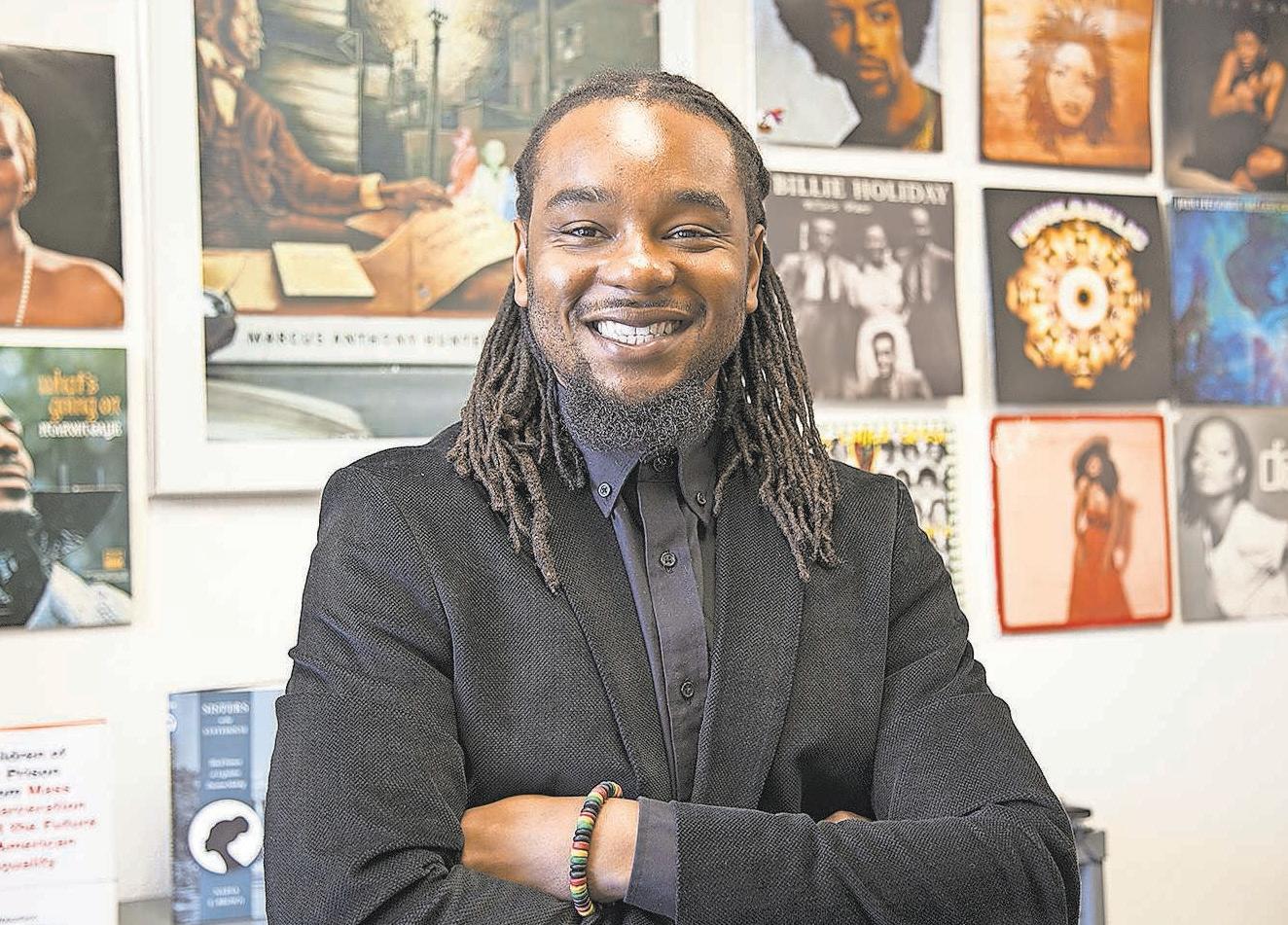
This history of cruelty and dehumanization is critical as the right to vote influences everything from the services available to our communities to the people who represent us. While our foremothers and forefathers organized and struggled for the right to vote, the passage of the Voting Rights Act of 1965 (VRA) was one battle amid a series of battles for our democracy. What many didn’t realize, at least until it was much too late, was that the Voting Rights Act was under attack from the moment of its inception to the present day.
In the 1960s, savvy politicians, including proud Texan, President Lyndon B. Johnson, used the passage of civil rights legislation, including the VRA, to stoke
white resentment and fear.
Although Black people could access the ballot box, they faced stiff backlash. At the same time, felony disenfranchisement laws gained in popularity and usage — from white citizens’ councils to resistance to integration to intimidation at the ballot box to restrictive voting laws, the right to vote for Black people has long been under siege. Such laws were part of a broader effort to chip away at who can vote and when they can vote.
Today, some 4 million Americans are unable to vote due to a felony conviction. These disenfranchised citizens live in a nation with yearly elections, and yet they
AFRO
Photo courtesy of UCLA
Dr. Marcus Anthony Hunter is the Scott Waugh Endowed Chair in the Division of the Social Sciences, and Professor in the Departments of Sociology and African American Studies.
Photo courtesy of the U.S. Army Women’s Museum via AP
Shown here, the women of the 6888th Central Postal Directory Battalion standing in formation in Birmingham, England, in 1945. The women of the 688th made history as the only all-female Black unit to serve in Europe during World War II, and the unit recently received the Congressional Gold Medal in April 2025.
BALTIMORE-AREA

apartments
Volunteers of America unveils 71 affordable housing units in Southwest Baltimore
By Tashi McQueen AFRO Staff Writer tmcqueen@afro.com
Volunteers of America, a nonprofit human services organization, unveiled 71-units of newly renovated, affordable housing for the city’s most vulnerable in Southwest Baltimore on Aug. 4.
As Baltimore’s public housing waitlist grew to about 40,000 households in 2024, affordable housing remains a top concern in Baltimore City.
“It takes so many people to make a project like this happen,” said Baltimore Mayor Brandon M. Scott (D). “But, the amount of people that were involved in this project will still be small in comparison to all of the impacts and benefits that individuals and their families and this community will see in the years to come.”
“The best way to fuel Baltimore’s rise is to make sure every one of our residents is doing the same thing, rising to be the best version of themselves,” Mayor Scott continued.
The renovated apartments are expected to benefit 130 Baltimoreans in Irvington, a
By Mark Anthony Thomas
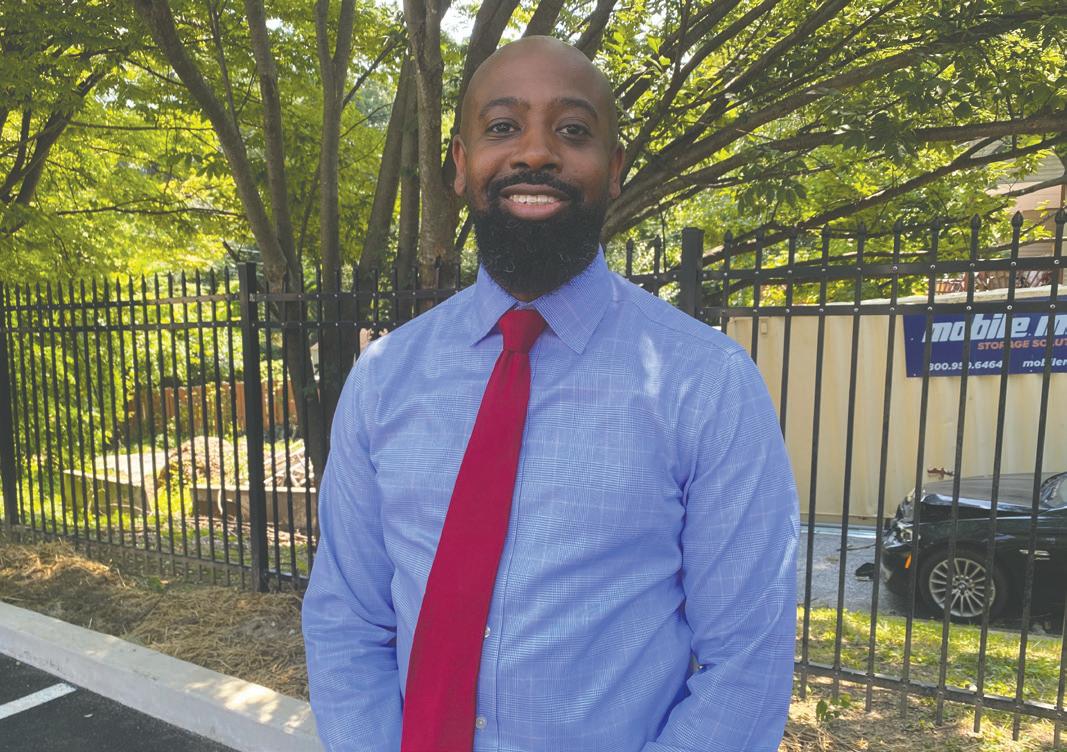
Photo/Tashi McQueen Darrin Mitchell, vice president of Maryland for Volunteers of America Chesapeake and Carolinas, reflects on the 14-month, $24 million renovation of The Residences at Irvington Woods.
predominantly Black neighborhood. They will primarily serve veterans, individuals who were formerly homeless and persons with mental health needs.
Thirty-six of the 71 units at The Residences at Irvington Woods have been filled, according to Volunteers of America, which has provided permanent supportive and permanent housing in Baltimore since 1996.
“We’ve had this property since 1996,” said Darrin
For decades, the Greater Baltimore Committee (GBC) has championed efforts that recognized the importance of local economic investment— whether through workforce opportunity, supplier diversity or civic engagement. We hosted the Mayor’s Business Recognition Awards for 50 years to honor companies making civic contributions. We launched Bridging the Gap to highlight minority- and women-owned businesses. And we commissioned Preparing for the Future, which outlined 69 recommendations to help more residents access quality jobs.
These were meaningful efforts that raised awareness and deepened engagement. But over time, it became clear that awareness alone wasn’t enough. We needed efforts that could move capital, expand hiring and transform systems at scale. Several promising civic initiatives—like BLocal and the Baltimore Integration Partnership— were generating impact but operating outside of
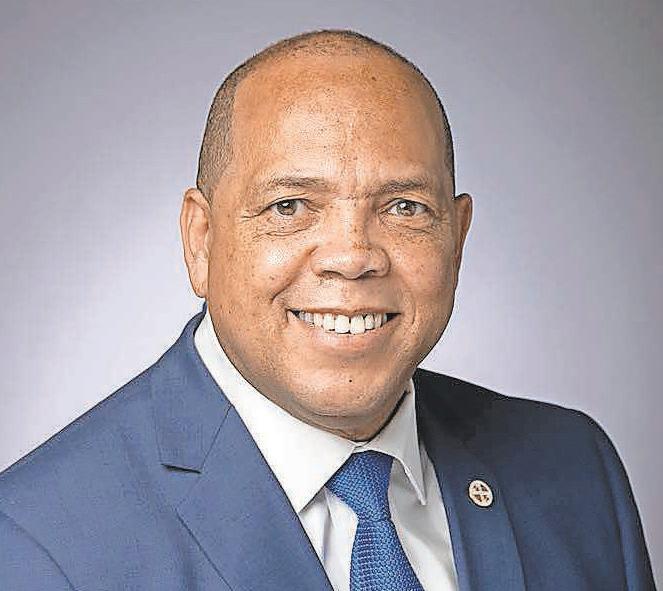
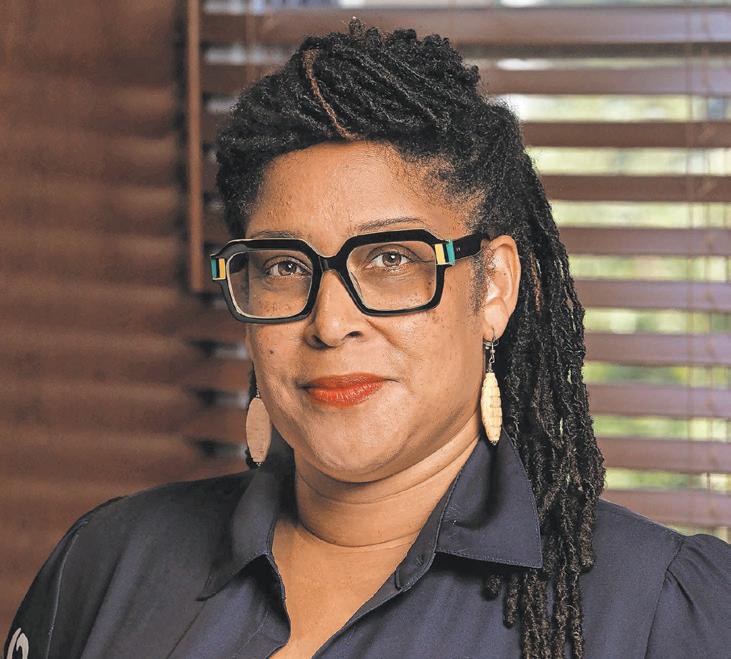
of Julian Jones Baltimore County Councilman Julian Jones (D-District 4) was one of two council members who voted to approve Khadijah Walker as the next inspector general. He believed the decision to reject Walker, who was the county executive’s nominee, to be unprecedented.
Baltimore County Council votes down Khadijah Walker as inspector general nominee
By Megan Sayles AFRO Staff Writer msayles@afro.com
The Baltimore County Council voted 5-2 on Aug. 4 to reject Khadijah Walker, County Executive Katherine A. Klausmeier’s nominee for inspector general. The decision follows controversy over the selection process, scrutiny of Walker’s resume and public protest over Klausmeier’s decision not to automatically reappoint incumbent Kelly Madigan. Councilmembers Julian Jones (D-District 4) and Pat Young (D-District 1) represented the only votes in favor of Walker’s instatement.
Mitchell, vice president of Maryland for Volunteers of America Chesapeake and Carolinas. “Quickly after taking it over in 1996 we did a rehab. Then, we had a much larger rehab in 2005. Now, to get this rehab done, we started working in 2022 to get funding and all of our partners together.” Mitchell said it took 14 months to complete the $24 million renovation of The
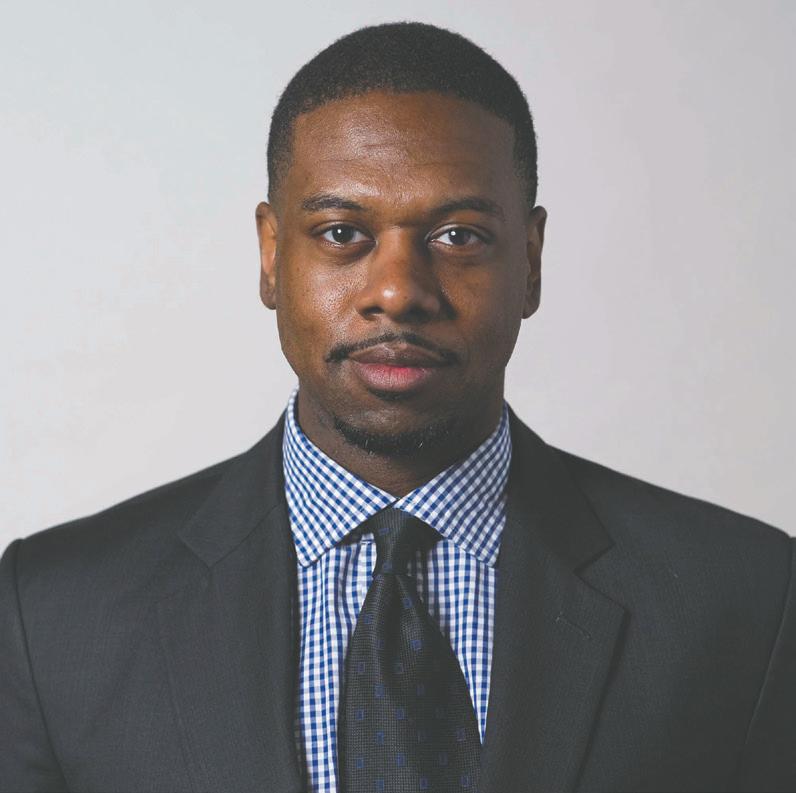
Jones expressed deep disappointment and concern over the decision and asserted that it was the first time in the county’s history that a county executive’s
nominee was not confirmed.
“Our role is not to play politics, but to determine whether the nominee is qualified—not whether we personally agree with them, not whether someone would be better, but whether they are qualified. Ms. Khadijah Walker is extremely qualified.” said Jones. “Her record speaks for itself. With years of experience, she has demonstrated integrity and clear commitment to public service.”
Walker has spent more than two decades in inspector general offices for the U.S. Agency for International Development (USAID) and the U.S. Environmental Protection Agency (EPA). She has addressed high-profile issues, including the water crises in Flint, Mich., and Jackson, Miss.
Before the vote, Walker gave a testimony outlining
her vision to bring neutrality, independence and integrity to the inspector general’s office.
Walker said that her approach to the role would “focus on improving government efficiency and effectiveness while identifying and addressing instances of fraud, waste and abuse.”
“From our conversations, I understand that permitting water quality, housing and service quality are among the key areas of concern, and I am prepared to look into these issues further and any other critical matters with urgency and objectivity,” Walker said during her testimony.
After the vote, Jones asserted that some council members refused to approve Walker due to
Cheltenham’s lost graves spark push for juvenile justice reform
By Megan Sayles AFRO Staff Writer msayles@afro.com
In Prince George’s County, Md., an overgrown burial ground with more than 100 unmarked graves rests near the Cheltenham Youth Detention Center. The site is believed to hold the remains of Black children who died there 150 years ago—when the facility was known as the House of Reformation and Instruction for Colored Boys.
For decades, their final resting places were forgotten. Now, Maryland State Sen. William C. Smith (D-District 20) wants the state to restore the grounds and acknowledge the children who died there. For him, Cheltenham’s long-overlooked history underscores the need to reform how Maryland treats juvenile offenders.
“In Maryland, we charge more children as adults than any other state except for
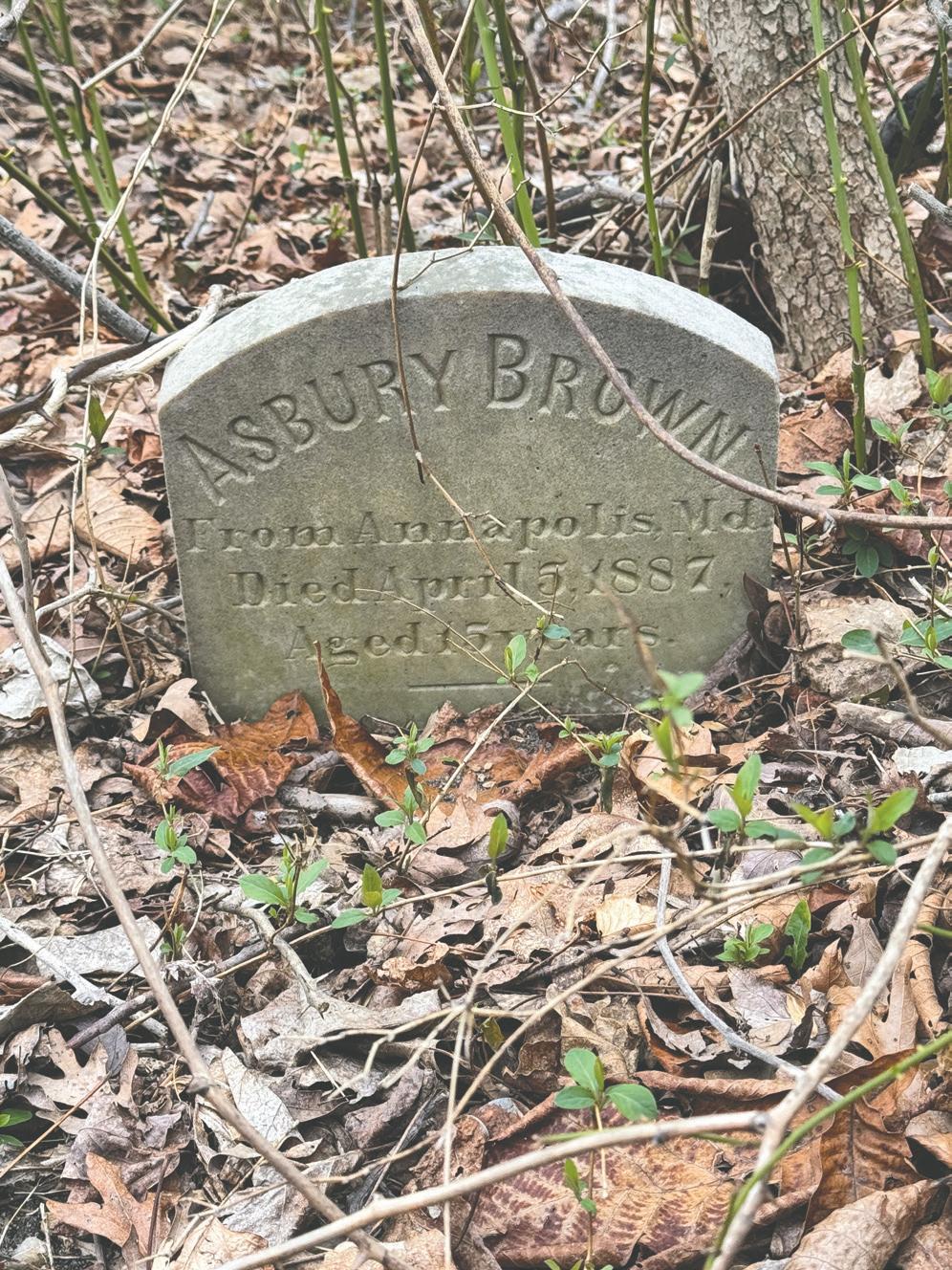
Photo courtesy
Photo courtesy of Baltimore County Executive Khadijah Walker will not serve Baltimore County as the next inspector general. The Baltimore County Council voted 5-2 to reject her on Aug. 4 though she was nominated by County Executive Katherine A. Klausmeier.
AFRO
Courtesy photo
A newly renovated unit at The Residences at Irvington Woods, part of a $24 million project by Volunteers of America, is one of 71 affordable
aimed at supporting veterans, formerly homeless individuals and those with mental health needs in Southwest Baltimore.
Photo courtesy of Marc Schindler
The grave of Asbury Brown, 15, sits in a wooded area near Cheltenham Youth Detention Center in Prince George’s County, Md. Brown’s is one of more than 100 marked only by cinderblocks in an overgrown cemetery believed to hold the remains of Black children who were imprisoned at the former House of Reformation and Instruction for Colored Boys.
Courtesy photo Greater Baltimore Committee president and CEO Mark Anthony Thomas explains why
Continued from B2
Residences at Irvington Woods.
“I appreciate everything they have done for this community,” said Mary Johnson, a resident of The Residence at Irvington Woods since 2005.
Johnson shared her first reaction to her newly renovated apartment.
“When I walked through, I thought I was in a whole different project,” she said. “I didn’t know If I lived there or not. They did a really good job.”
Several city leaders and legislators recognized Dorothy Cunningham, president of the Irvington Community Association for more than 20 years, for her work in the community over the years.
“I’m very proud to be a part of this,” said Cunningham. “It’s helping Irvington move forward. I’ve worked hard to address the abandoned housing in our community, and I’m proud to live here.”
Cunningham said she remains confident that initiatives like this will continue despite concerns around recent federal reductions in local housing assistance programs.
“With support of the mayor and the city council I believe to move forward in housing initiatives like this, even with what’s happening on a federal level,” said Cunningham. “All of them were closely together to help improve the community.”
“The best way to fuel Baltimore’s rise is to make sure every one of our residents is doing the same thing, rising to be the best version of themselves.”
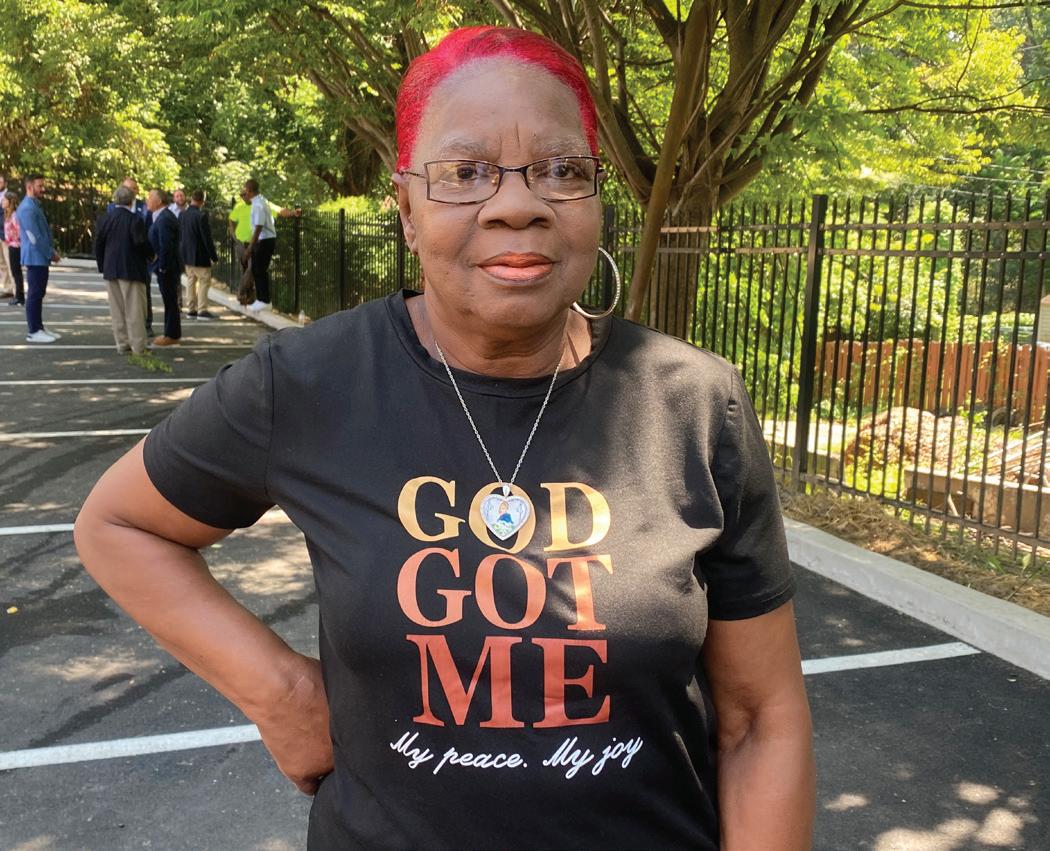
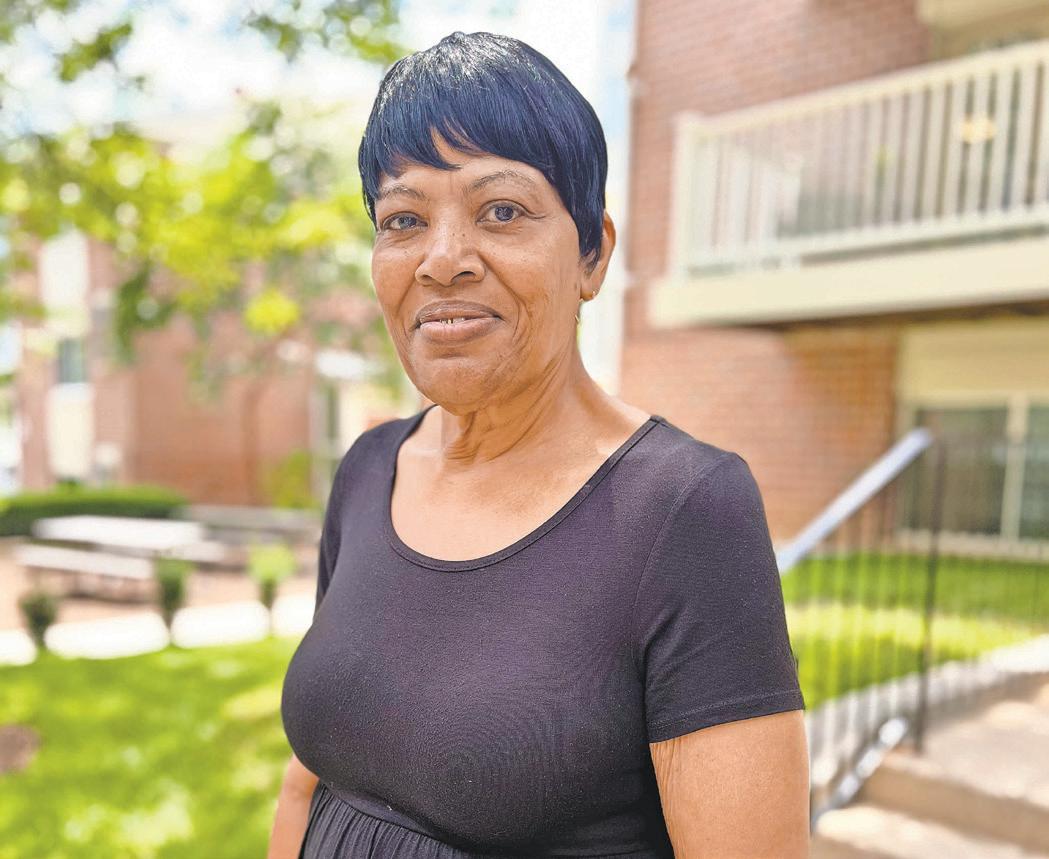
role as a regional convener.
the region’s core business-civic leadership infrastructure.
This fragmentation limited their scalability and long-term sustainability. We had many players doing good work, but no shared platform to carry it forward across the region.
That’s why, in 2023, as GBC relaunched its multi-year agenda, we made a strategic decision: to pause—not to walk away, but to step forward with greater clarity and purpose. During this pause, we engaged partners to better understand what it would take to build an initiative with real staying power.
We knew we needed a more structured approach—one grounded in sustained leadership, collaborative infrastructure, and measurable outcomes.
To that end, we made a decision: BLocal could become GBC’s signature platform for driving local hiring and procurement—creating a modernized, coordinated and scalable vehicle for investing in Baltimore’s people and businesses. It made sense—for our mission, our history and our
Continued from B2
political reasons.
“She has earned this opportunity, but, unfortunately, it was clear from the start that some members of this council have made up on their minds before even hearing from her— not based on her qualifications or a fair process but based on political considerations, and, in some cases, a refusal to support any nominee, regardless of merit,” said Jones.
Part of the criticism surrounding Walker’s nomination stemmed from concerns about her lack of investigative
Earlier this summer, GBC officially assumed stewardship of BLocal from Johns Hopkins University. Originally launched in the wake of Freddie Gray’s death, BLocal was a groundbreaking commitment by anchor institutions to direct more dollars and job opportunities to local businesses and residents.
In just a few years, it helped drive over $1.4 billion in local procurement and opened new pathways for thousands of workers.
That’s real impact. But over time, while the infrastructure behind BLocal faded, the brand retained employer momentum.
GBC’s vision for the next phase integrates four pillars: Hire Local. Buy Local. Invest Local. Live Local. These pillars will form the foundation of a platform through which employers and institutions can contribute meaningfully— each in ways aligned to their strengths.
We’re not starting from scratch. Across the country, other cities offer powerful models for what’s possible when the private sector steps up with intention and coordination:
• In Los Angeles, OneLA has transformed how major
experience into elected officials and the decision to bypass Madigan.
Before voting against Walker’s confirmation, Councilman David Marks (R-District 6) noted that the inspector general’s office operates independently and does not report directly to the county executive. He also said the phone calls and emails he’s received from Baltimore County residents have called for Madigan to be reappointed. Madigan, who became the first inspector general for Baltimore County in 2020, has been praised for her oversight, including investigating misuse of county vehicles and
Justice
Alabama, per capita. The tragic thing is that approximately 80 percent of those cases that are automatically charged in adult court are not being sentenced in the adult system,” said Smith. “They’re either being dismissed or transferred back to the juvenile system.”
Nearly 83 percent of these children are also African American, according to the Maryland Department of Juvenile Services (DJS), though they only represent 31 percent of the state’s youth population.
Rather than receive rehabilitative services, Smith said these children are often spending unnecessary time in adult facilities, where they may encounter violence and trauma and where their development needs may go unmet.
The state senator is now proposing a bill that would revise the automatic sentencing of youth as adults in Maryland.
“When you’re in the adult system, you don’t have access to the support, treatment and services you need to get out of the justice system long-term,” said Smith.
Under current Maryland law, juveniles can be automatically charged as adults for 33 offenses. Smith’s legislation, Senate Bill 422, would repeal parts of those provisions, allowing more cases to begin in the juvenile system rather than adult court.
Sen. Smith said his proposal would eliminate all but the most serious offenses. Crimes, like first-degree murder, manslaughter, armed carjacking and
“We paused not to step back, but to move forward with greater clarity and purpose.”
institutions approach procurement—connecting small, diverse businesses to real contracts through inclusive certification and matchmaking.
In Philadelphia, the Chamber’s Diverse Procurement Collaborative has unified dozens of employers around shared goals for expanding opportunity and building more equitable supply chains.
• In Washington, D.C., the Greater Washington Partnership has mobilized companies across sectors to invest in talent development and community wealth-building strategies.
In Atlanta, the Metro Atlanta Chamber’s ATL Talent initiative aligns employer demand with inclusive workforce development—building pipelines in fast-growing industries like tech and logistics. These efforts work because they treat local economies as
uncovering millions in waste, fraud and abuse.
“She’s basically being recommended to be removed, yet this council has never been told why. This is a council with a history of supporting qualified candidates of all backgrounds,” said Marks. “The county executive has a long record of public service, but on this issue, many of us simply disagree with her recommendation. Ms. Madigan deserves a second term as inspector general.”
Following the decision to reject Walker, the county executive released a statement saying she respected the council’s decision but was
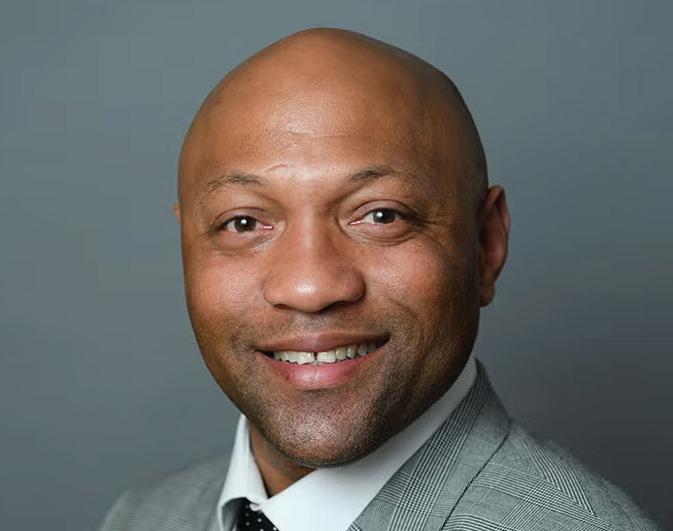
certain sexual crimes, would still be eligible for adult court.
His bill would also raise the age at which children can be automatically charged as adults from 14 to 16.
“This piece of legislation just makes sense because those cases are coming back to the juvenile system anyway. We’re spending dollars we could reinvest in prevention and treatment measures,” said Smith. “We’re seeing that work in Baltimore City with violence interruption and forward-thinking preventative measures.”
The bill would not only save the state an estimated $19 million, it would advance public safety, according to Smith.
“When youth who are justice-involved get a positive touchpoint or treatment that gets into the root cause of why they’re doing what they’re doing, it ultimately leads to better
region-wide impact.
public safety because they’re less likely to re-offend and recidivate,” said Smith. “This is a public safety bill.”
The unequal roots of Maryland’s juvenile justice system
The concept of separating juveniles from adults in Maryland’s justice system dates back to 1830. That year, the Maryland General Assembly (MGA) formally acknowledged that children should not be placed in adult jails.
Subsequently, the state opened the House of Refuge, the first facility built exclusively for housing juvenile offenders, in 1850. But, it was only open to White children. It wouldn’t be until 1870 that the House of Reformation and Instruction for Colored Children would open its doors.
ecosystems—not silos. And when ecosystems thrive, everyone benefits.
But Baltimore’s path must be our own.
With the integration of UpSurge into GBC, we now bring both anchor institutions and the region’s innovation and tech communities to the same table—allowing us to design solutions that bridge legacy systems with the future economy.
Already, we’re preparing to reconvene stakeholders—employers, educators, funders and workforce leaders—to shape what comes next. With support from the Annie E. Casey Foundation, we’re hiring a consultant to conduct a feasibility study that will assess how to make BLocal’s next phase financially and operationally sustainable. That work will begin by focusing on “Hire Local” as a foundational testbed to turn local intention into measurable,
disappointed by it. She also said she will leave any future appointment or reappointment up to the next county executive.
“I am grateful for Ms. Walker’s willingness to serve the residents of our county in this important position and am confident that her many years of high-level experience, strong sense of ethics and integrity will make an impact in her next role,” said Klausmeier in a statement. “I am also appreciative of her
and grace during what has become a highly politicized process through no fault of
own.” Continued
Let’s be clear: this is difficult work. Rebuilding trust with communities that have seen promises come and go requires humility and consistency. It demands real investment from institutions, even amid competing priorities. And it requires the discipline to transform fragmented efforts into a cohesive movement.
But that’s the work we’re committing to.
Close collaboration with the workforce community will deepen our understanding of talent—arguably the most valuable currency in today’s economy—as we build out our business attraction efforts. A better grasp of who’s ready to work, what
skills they have and how to connect them to opportunity will directly improve how we compete for jobs and investment.
And in a world where cities and states compete more aggressively than ever, one area where Baltimore can lead is by creating a business culture that champions local talent and supports homegrown startups and small businesses. That’s not just good economics—it’s a smart, future-ready strategy.
With sharper focus and renewed commitment, GBC is ready to move forward—and we’re inviting the Baltimore region’s business, civic and community leaders to follow our work to learn how they can move with us.
poise
her
Photo courtesy of Tyrone Walker Tyrone Walker is the director of reentry services for the Georgetown Prisons and Justice Initiative. Walker was previously justice-involved and imprisoned at Cheltenham Youth Detention Center, which was then known as Boys’ Village of Maryland, when he was 15 years old.
AFRO Photo/Tashi McQueen
Dorothy Cunningham is president of the Irvington Community Association, where she works to advance the community by addressing vacant homes and ensuring residents have the resources they need.
Courtesy photo
Mary Johnson, a resident since 2005, said her newly renovated apartment felt like a completely different place and shared her joy at seeing the significant improvements come to life. Read more
Continued from B2
WASHINGTON-AREA
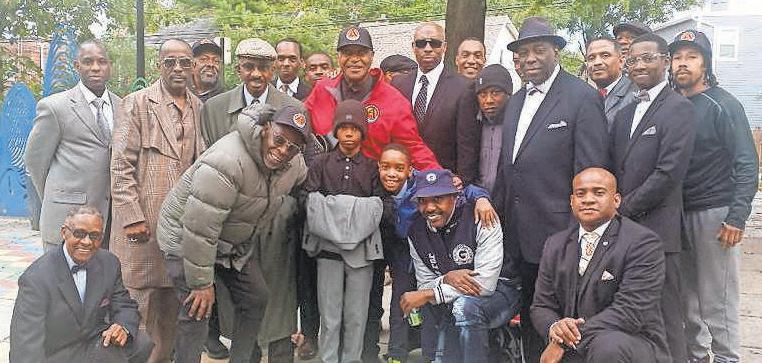
Black men’s spiritual healing circle negates impact of toxic masculinity
By D. Kevin McNeir Special to the AFRO kmcneir@afro.com
As Black males navigate the path from being boys to men, they are confronted with traditional notions of masculinity, reinforced in some Black communities. That pressure Black men to appear strong, stoic and in control, discouraging vulnerability and emotional expression.
Youth are routinely bombarded with phrases like “men don’t cry,” “don’t be a punk,” or “man up,” which corroborate the strong Black man stereotype and make it
more difficult for those who face mental health struggles or emotional turmoil to admit they need help.
Now, one organization in Washington, D.C., is working to change that.
Led by Black men who have learned that bottling up one’s emotions and yielding to societal stereotypes reduce the ability to successfully overcome systemic racism and economic inequality, the men of Communities Respecting Everyone’s Will To Survive (CREWS) are working to introduce a unique opportunity for transformation.
“With resources and programs either limited or non-existent in many communities here in Washington, D.C., we decided to step forward and develop a Black men’s spiritual healing circle and invited men of all ages to join us,” said Edward Muhammad Tate, founder and executive director of CREWS.
Tate said that while the organization, formed in 2023 and formerly led by community activist Tyrone Parker, initially sought to limit negative interactions among
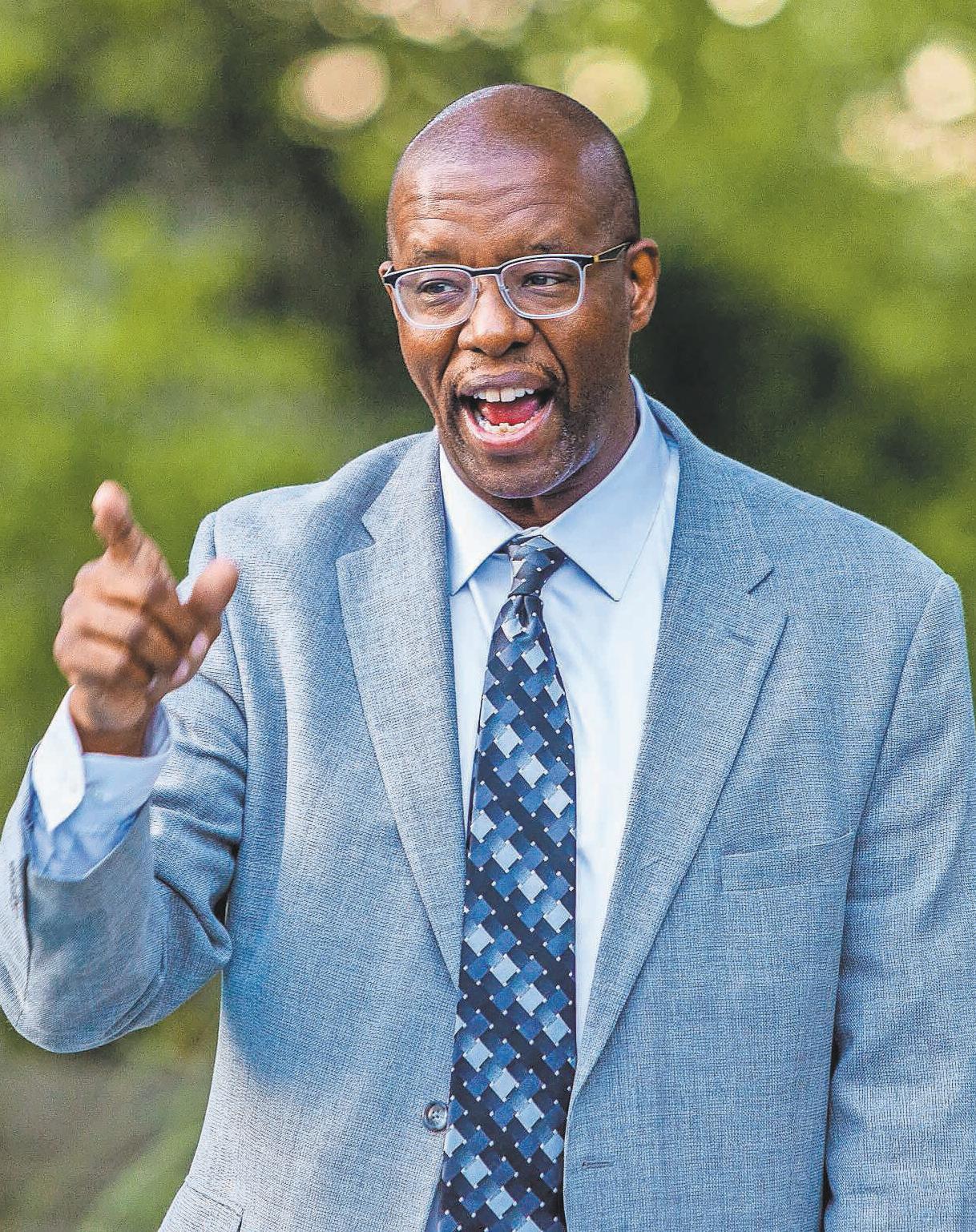
AFRO D.C. High Tea set to celebrate sisterhood, style and HBCU legacies
By Marlee Jones AFRO Intern
The AFRO will proudly present the 2025 D.C. High Tea, an afternoon of elegance, next month. The event will be a celebration of local historically Black colleges and universities (HBCUs) and community. Set for Saturday, Sept. 6, 2025, the event will take place from 2-5 p.m. at Shiloh Baptist Church, 1500 Ninth St. NW, Washington, D.C. Tickets can be purchased for $100 on the AFRO’s event platform, afrotix.live.
This year’s theme pays tribute to the legacy and resilience of HBCUs in Washington, D.C., curating inspiration from the political and social challenges Black education institutions continue to face while continuing to overcome. It will also be a time to honor the life and legacy of Dr. Renee Starylnn Allen, the late D.C. High Tea hostess and mistress of ceremonies who was a strong advocate for the AFRO
KidBizCon 2025 empowers D.C. youth to turn big ideas into real-world business success
By Ashleigh Fields Special
A group of over 300 local students gathered on July 25 to learn about economic opportunities for success while pitching ideas to community volunteers about their entrepreneurial ventures.
The program, known as KidBizCon, was hosted by the Youth Entrepreneur Institute in the heart of Ward 8 at Bard High School Early College DC. The goal was to help teach and train students to bring their entrepreneurial dreams to life, expand their network of supporters and sustain their drive to give back to their own community.
“Our youth already have the creativity, ideas and passion. What they need is access — to opportunity, to mentors, to tools that make their dreams real,” said Tacharna Crump, founder of Youth Entrepreneur Institute.
“We’re not just teaching business — we’re building ecosystems. East of the River is full of untapped brilliance, and we’re here to grow the economy by investing in the brilliance of our kids,” she added.
The free event included a meal for participants and guest appearances from Grammy-award winning producer ZayBans, Noochie of the “Live from the Front Porch” series, celebrity painter Demont Pinder, and community advocates Rodney and Noelle Grant.
“KidBizCON embodies what’s possible when we not only introduce
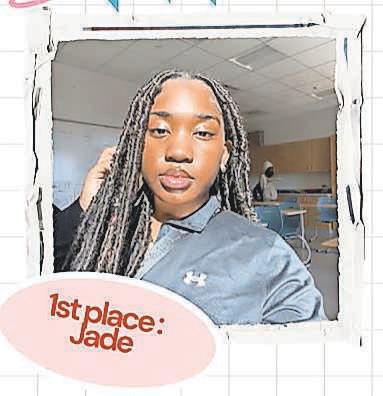
young people to entrepreneurship early, but also nourish and support them throughout their entrepreneurship journey. I hope KidBizCON becomes the norm, as I believe it helps to decrease the barrier to entry [into] entrepreneurship and exposes Black children earlier to the field,” Kelsey Nicole Nelson, a Youth Entrepreneur Institute supporter, told the AFRO
“I didn’t know entrepreneurship was a viable option until well after college, and it’s the one thing I would go back and change during my childhood years if I could,” she added. “I would like to see more programs like this throughout the city as it’s a great way to teach our children early that being a boss is
attainable and achievable early with the tools and skills they have. KidBizCON has a long-term supporter in me.”
Throughout the day, students spoke with celebrity guests and engaged in an immersive educational experience through workshops with lessons geared towards e-commerce, 3D printing, robotics and budgeting.
After their sessions, young entrepreneurs were given a chance to pitch their business ideas to audience members, who voted on “Fan Favorites,” potential top earners who gained investment at the event’s conclusion.
Jade Carroll, owner of Jaddie Oils, was presented with $1,000, followed by Nahia Ihuoma of Pristine Stitches, who earned $750 and Ajaya Fields, who pitched the True Hope Program and secured a $500 prize.
“From beauty brands to tech solutions, each of these winners brought vision, passion and serious boss energy,” Shipley said of their efforts.
“The future is made by youth,” she added.
Past participants have been testaments to the program’s effectiveness.
“I never thought I would start a fashion business, but this experience gave me the inspiration and confidence to,” Damien, a Youth Entrepreneur Institute alumni said.
Professionals have also lauded the local impact made in Southeast D.C.
“The Youth Entrepreneur Institute is an exceptional organization that
empowers young entrepreneurs,” Ariel Atkins, a WNBA player formerly of the Washington Mystics, said of the program.
The day’s activities were sponsored by the DC Department of Parks and Recreation, Events DC and the Kimsey Foundation.
The Youth Entrepreneur Institute is run year round at Bard High School where Caprise Shambley serves as the coordinator, overseeing program operations, in addition to instructor Mark Coppedge and program alumni Chrissy Hall, Bailey Wiley and Armone Greene, who now serve as peer mentors. Together, they frequently host pop-up shops for student vendors and workshops for students eager to learn how to jumpstart their own business.
“Our team is a reflection of the communities we serve. Nearly all of our staff members live in or grew up in the East of the River communities, making these neighborhoods the beating heart of our organization. We are not just mentors or facilitators—we are neighbors, friends and parents who share a deep, personal connection to the community,” Crump said.
“Our team understands the challenges our students face because we have lived them,” she continued.
“We know the blood, sweat and tears it takes to navigate systemic inequities and graduate high school unscathed. This shared experience fuels our passion and commitment to provide the resources, guidance,
Photo courtesy CREWS
Members of CREWS (Communities Respecting Everyone’s Will To Survive) work with small community-based organizations in the Greater Washington Area to help Black men and youth overcome the debilitating impacts of crime and self-hatred.
Courtesy photo
David Campt, a D.C.-based entrepreneur, said the challenges which often overwhelm both Black men and youth, can be traced to Western cultural stereotypes about Black males.
Photo courtesy of Youth Entrepreneur Institute
Youth entrepreneur Jade Carroll came in as the first place winner of the KidBizCon 2025 with her business venture, Jaddle Oils.
AFRO Tea Toxic masculinity
“crews” – the word his group uses in reference to gangs – it soon became apparent that they had just scratched the surface.
“Men like me, Tyrone, and a local leader from the Nation of Islam, Brother Aaron Muhammad, who have all benefited from participating in spiritual healing intervention programs and because of the presence of strong mentors in our lives, knew we had to pass it forward,” said Tate. “We chose June 14, the Saturday before Father’s Day, for our first session and invited Black men of all ages.”
“Just over 20 men, ranging in ages from 12 to 70, gathered in the Highland community in Southeast D.C., many of whom have yet to deal with childhood trauma, and provided a safe space for them to testify, support one another, and release their pain,” he continued.
Tate witnessed more intimate bonds being formed including one between a man in his 60s who had attempted but failed to commit suicide and a young adult who admitted that he was considering ending his life.
“It was a powerful day – a transformative day – and we’re already working to hold more circles in other parts of the city,” Tate said. “We hope this will give birth to a mentoring program that provides essential resources for those who participate, especially youth, so they’ll be able to avoid the temptation of returning to more negative behavior and stay away from those who encourage such actions.”
Asher Boulware, 22, who lives in Prince George’s County, works full time at Walmart, and is saving money so he can return to Morehouse College next spring, attended the healing circle with his father and two older brothers.
“My father told us about the session and asked us to come along and while I didn’t know what to expect, I found it be an eye-opening experience,” he said. “It was a rare opportunity and one that I have never experienced – Black
men embracing and supporting other Black men and allowing themselves to be vulnerable without fear of being judged by their peers.”
Boulware admitted that he continues to struggle with meeting the expectations of his family, friends and community since being admitted to Morehouse.
“It’s one of the most prestigious universities in America and it’s an honor to be a student there,” he said. “But the academic and financial requirements are not easy. The healing circle helped me admit how much pressure I feel and I’m better for having shared my emotions in a safe space.”
David Campt, 63, president of The Dialogue Company, LLC, based out of D.C., leads a company that focuses on creating spaces for people to engage in conversations that reveal the potential for collaborations which, while hidden, already exist.
He believes that while western culture and centuries of notions of masculinity have taught men to withhold their emotions and ignore the need to express their feelings, Black communities have also played a role in perpetuating, if not exacerbating, this stereotype.
“As Black men, we’re taught that it’s better to keep our feelings to ourselves and to show that we’re strong and stoic,” he said. “Not only do we feel this pressure from our family and our community at a local level, but because we’ve been emasculated by the White supremacists since the days of slavery, it’s even more difficult and risky for Black men and youth to be honest about our fears, our struggles and our pain.
“For a lot of us, the self-hatred that grows within leads to seething resentment, even hatred, of those who look like us. That’s why I believe spiritual healing circles like the one sponsored by CREWS should be held more frequently and in every corner of D.C.. The benefits are unlimited.”
For more information, visit www. crewscoalition.org.
“We’re honoring HBCUs in D.C. this year because of the ongoing attacks on education and Black schools,” said Diane Hocker, the AFRO’s director of community and public relations. “We recently recognized Maryland HBCUs, and we felt it was important to continue the celebration of this historic legacy in the District.”
Attendees can expect an afternoon full of life and elegance, uplifting sisterhood, impactful conversations, food, music and head-turning ensembles.
“Everyone comes with the big hats,” said Hocker. “They’re very proud of their display of hats.
The bigger, the better. Personally, I look forward to seeing what
everyone has on…it’s nothing like when one sister says to another, “Girl, you wearing that!”
Although the Baltimore Tea has grown to nearly 1,000 attendees, the D.C. Tea remains a more intimate experience, allowing guests to connect deeply with the community and the mission of the AFRO. Guests can expect good food, good music and an array of Black vendors to patronize.
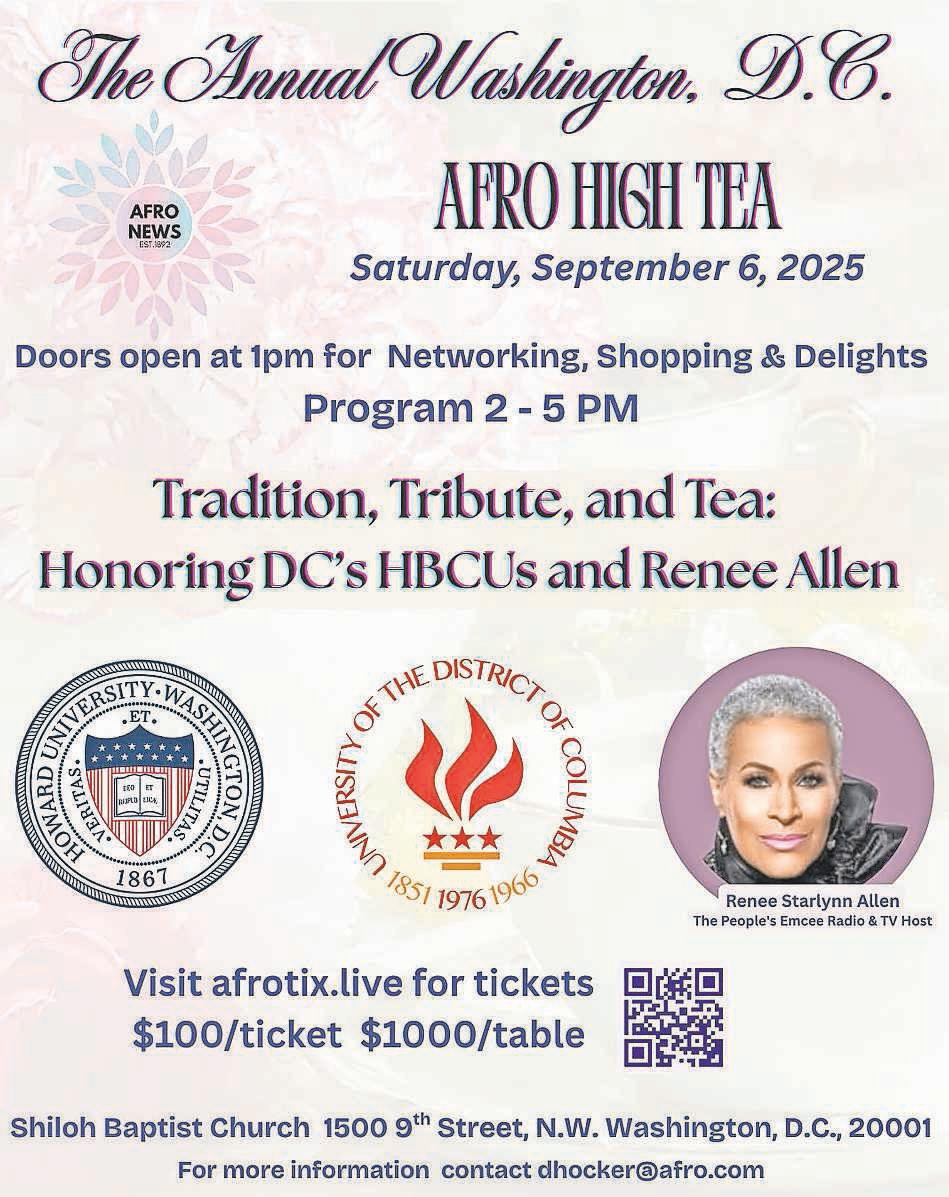


AFRO photo
The AFRO will host their D.C. High Tea on Sept. 6 at Shiloh Baptist Church, located at 1500 9th Street NW in the nation’s capital.
GOT LEAD?
Check Your Pipes, Baltimore!


Visit www.servicelinepartnership.baltimorecity.gov or scan the QR code to get started. If your address has a BLUE DOT, click it and take the quick survey.
Baltimore County now offers FREE replacement of water service lines that contain lead and were reported through the survey before March 31, 2026. Presence of lead will be confirmed prior to replacement.
For questions or assistance, contact Department of Public Works & Transportation: Email: waterserviceline@baltimorecountymd.gov
Phone: 410-887-1368
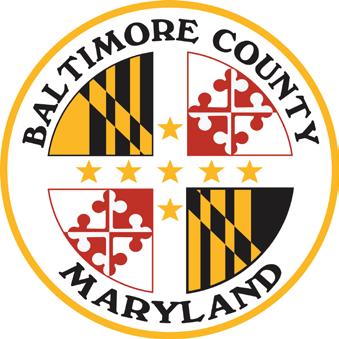
Howard University partners with Google to launch AI speech recognition initiative
By Ashleigh Fields Special to the AFRO afields@afro.com
Howard University partnered with Google to release data tied to artificial intelligence (AI) speech recognition for people of color.
The university provided research on Black speech known as African American English (AAE) and African American Vernacular for the company’s automatic speech recognition technology through Project Elevate Black Voices.
Through the program, researchers traveled to different parts of the country to document dialects and diction used frequently in Black communities.
The school noted portions of the language are often negated in AI programs making it “more difficult” for many Black individuals to engage with the technology.
“African American English has been at the forefront of United States culture since almost the beginning of the country,” said Gloria Washington, Howard University researcher and co-principal investigator of Project Elevate Black Voices.
“Voice assistant technology should understand different dialects of all African American English to truly serve not just African Americans, but other persons who speak these unique dialects,” the computer science instructor added. “It’s about time that we provide the best experience for all users
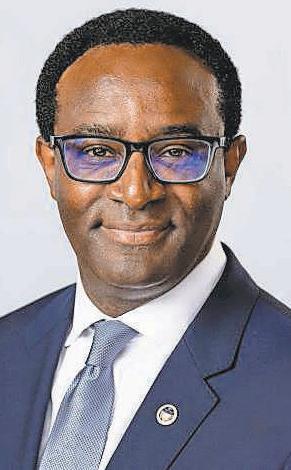
of these technologies.”
Over 600 hours of data were logged through Project Elevate Black Voices.
Google has lauded the effort as one that will aid them in providing equitable service to all communities.
“It’s our mission at Google to make technology that’s useful and accessible, and I truly believe that our work here will allow more users to express themselves authentically when using smart devices,” Courtney Heldreth, co-principal investigator at Google Research.
How to Pay When Buying From Someone You Don’t Know: Keep These Tips In Mind to Help Avoid Scams
Sponsored by JPMorganChase
Credit cards, debit cards, cash, checks, wires or sending money to others using a P2P (person-to-person) payment app are examples of the many ways consumers can pay for everyday transactions. To help protect their money from scammers, it’s important for people to understand that how they pay matters, especially when buying something from someone they don’t know or trust.
Checks: Although declining in usage, many people still regularly use checks, particularly for business transactions. Check fraud can happen in various ways, such as writing bad checks, stealing and altering someone else’s check, forging a check, or depositing the same check twice (once through a mobile app and again at a branch).
• Here’s What You Can Do: Never make checks out to “cash.” Use permanent ink, and write the amount in numbers and words. Don’t leave a check book unattended and always send a check directly from the post office or through secured mailboxes; don’t leave them for pickup in your mailbox at home. When possible, opt for electronic payment methods instead of checks.
Person-to-Person Payments:
Person-to-person payments through services like Zelle® can be quick and convenient ways to send money to others you know and trust (e.g., friends and family or your dogwalker). Don’t use Zelle to buy things online, especially through social media marketplaces or messaging apps. If you send money for something that turns out to be a scam, it’s very unlikely you’ll be able to get it back. Here’s What You Can Do: If you are purchasing goods or merchandise, including things like concert tickets, a credit or debit card that offers purchase protection may be a better option. If at any time you feel pressured, the deal seems too good to be true, or you otherwise suspect it’s a scam, don’t proceed with the purchase.
Credit and Debit Cards:
When you pay with a credit or debit card, you are not responsible for unauthorized charges if your card is lost, stolen or fraudulently used, as long as you report unauthorized charges promptly. Use your card’s security features to help keep it safe.
• Here’s What You Can Do: Two-factor authentication can help block anyone who gets your banking information from using it, and setting up credit monitoring helps you know if your card is used fraudulently. Keep your card safe. If you misplace it or think it is lost or stolen, contact your bank immediately, and lock your card from additional charges.
Scammers may try to get you to send a payment to them to pay for something (like concert tickets) that you then never receive. Credit and debit cards may offer some protections that can help you get your money back for purchases you make if you don’t receive what you paid for. If you pay with a credit card, your bank will likely reimburse
you for your payment if you don’t receive the goods. If you paid with a debit card, your bank will try to get your money back from the scammer’s bank, but if the scammer has disappeared with your money, they won’t be able to get the funds back, and your bank is not required to reimburse you.
Here’s What You Can Do: Watch out for sellers who require forms of payment that do not provide purchase protection. Before you pay, always ask yourself: “Am I sure this is not a scam?” Always remember: If you’re unsure, walk away.
Wire Transfers:
Wire transfers are convenient and secure, and they work like cash. Only send a wire when you know the details of the recipient and never feel pressured or urged to send one. Wire transfers are a target for scammers because they are often used for high dollar transactions—like homes or cars—and once sent, they cannot be reversed. Scammers can impersonate companies, banks, and government agencies to quickly receive your hard-earned money, move it to another account and disappear.
• Here’s What You Can Do: Never provide your bank account details to unfamiliar or suspicious individuals and avoid wiring money to people or businesses you are unfamiliar with, especially if prompted by suspicious phone calls or emails.
In a world of growing payment options, it’s important that people make informed choices about how to pay for purchases, especially when buying from a person or business you aren’t familiar with, to help keep their money safe. Learn more about protecting your finances at chase.com/digital/resources/privacysecurity

Photo courtesy of Howard University Howard University President Ben Vincent III touts groundbreaking initiative to include Black dialect in artificial intelligence (AI) development.
688th
Central Postal Directory Battalion receive a Forever Stamp, the AFRO encourages all to support the movement by signing the Change.org petition, titled “Honor the 6888th Central Postal Directory Battalion with a U S. Forever Stamp.” Be sure to also share the link with others!
In addition, advocates for the stamp are strongly encouraging supporters to write a letter and mail it in to the Citizen’s Stamp Advisory Committee, requesting the approval of a 6888th Forever Stamp.
The only way to reach the committee is a letter via mail, as members of the Citizen’s
Obama
Continued from B1
his successor, not for crimes, but for political vengeance.
And here’s what might hurt Trump the most: a new national poll shows that in a hypothetical 2028 matchup, Obama would beat him handily. A survey by Daily Mail and J.L. Partners found Obama leading Trump 52 percent to 41 percent, well beyond the margin of error. Obama dominates across key demographics, winning 73 percent of Hispanic voters, 68 percent of Black voters, and 50 percent of independents. No other Democrat fares as well. Trump narrowly defeats both Joe Biden and Hillary Clinton in similar hypothetical matchups. But when it comes to Obama, Trump loses—and he knows it.
That may explain why Trump continues to float extra-constitutional schemes. Despite the 22nd Amendment’s two-term limit, Trump told NBC News in March he was “not joking” about seeking a third term.
“There are methods which you could do it,” he said, pointing to Vice President JD Vance potentially running and handing the presidency back to him. His allies are on board. Rep. Andy Ogles has introduced legislation to remove presidential term limits. Steve Bannon predicted Trump “will run and win again in 2028.” And the White House posted a meme of Trump wearing a crown with the caption “LONG LIVE THE KING.”
VRA
Continued from B1
are barred from casting a ballot and electing candidates of their choice. Barring citizens who have served their time isn’t about making communities safer, nor is it about forcing persons who have made mistakes to atone for those misgivings. Such is part of a broader strategy to limit who can vote.
The pattern of taking steps to limit the electorate continued in the 2000s. The June 2013 Supreme Court decision in Shelby v. Holder meant that Sections 4 and 5 of the landmark legislation were no longer available for civil rights litigants to use. It also meant that states with histories of discrimination no longer had to get federal preclearance for voting rights changes. The High Court’s decision opened the floodgates in terms of restrictive voting legislation, which has had the cumulative impact of denying and abridging the right to vote for millions.
For instance, the Brennan Center for Justice at NYU found in 2023 that after the Shelby County decision, “at least 29 states passed 94 restrictive voting laws. While a few of these have been blocked by courts or repealed, most are still in effect…”
As monumental as the Voting Rights Act of 1965 was, our nation needs something more. Sixty years after its passage, we should be asking ourselves what the next iteration of pro-voting policies entails. We should be advocating for policies that offer repair for decades of harm. We should also be asking what tools are at our disposal to protect the ballot today and for future generations.
“A stamp is more than postage, it is
a
symbol of national recognition, a piece of everyday art that carries messages and meaning. A Forever Stamp dedicated to the 6888th would not only honor their service and sacrifice, but also spark awareness, education, and inspiration across generations.”
Stamp Advisory Committee do not discuss requests via phone, email or text. They also do not consider requests made via social media.
To send a written letter in support of the 6888th Forever Stamp, please address it to the Citizen’s Stamp Advisory Committee,
with the subject listed as “Letter of Support to honor the 6888th Central Postal Directory Battalion. The letter should be mailed to the following address: Stamp Development ATTN: Citizens’ Stamp Advisory committee
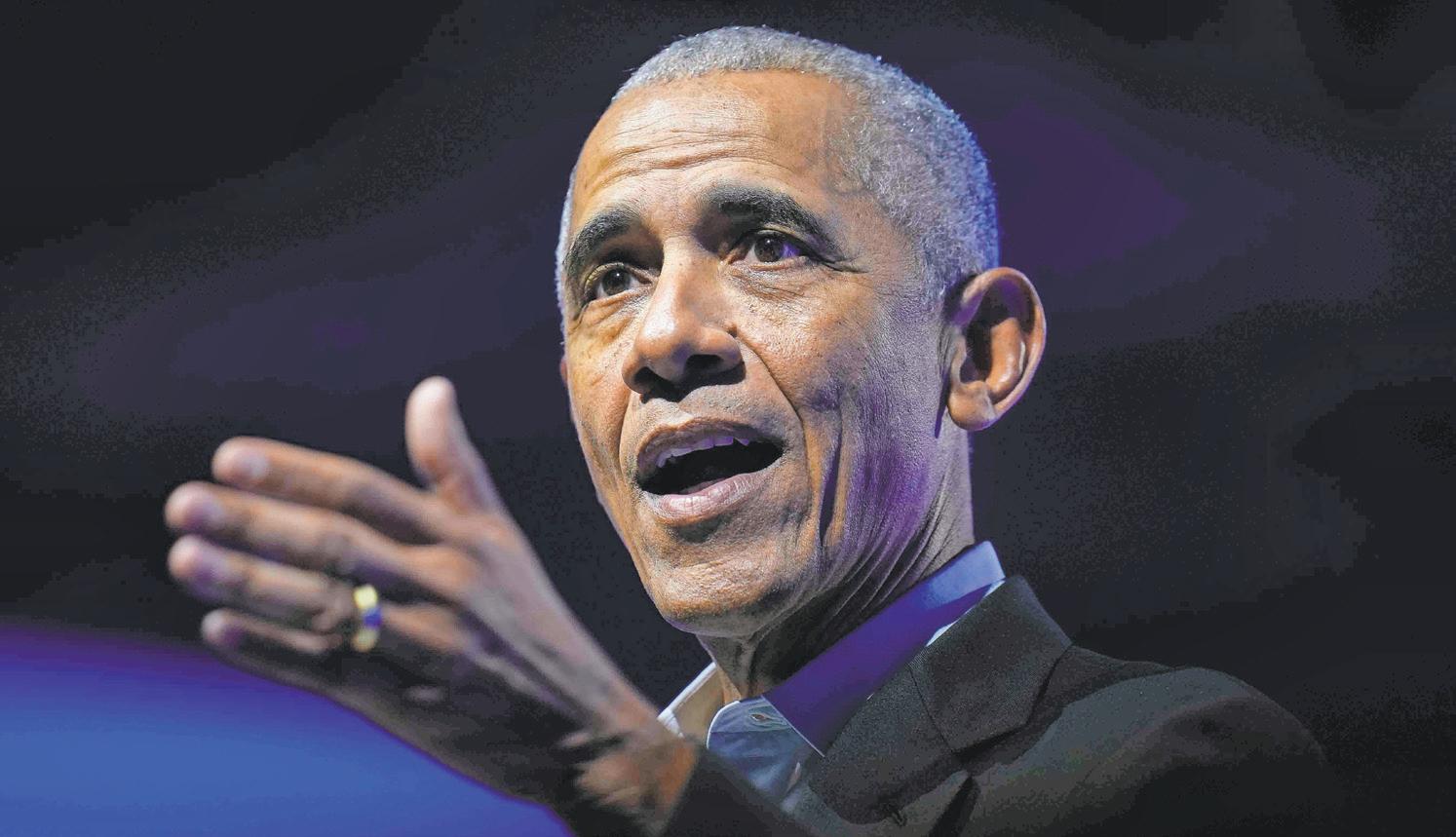
Former U.S. President Barack Obama is pushing back against renewed political attacks from his successor’s administration. His team called the accusations “bizarre” and “a weak attempt at distraction.”
Trump’s obsession with Obama has always been racial and personal. He launched his political career by pushing the false “birther” conspiracy. According to his former fixer, Michael Cohen, Trump’s hatred is “purely racial… solely predicated on the fact that Barack Obama is Black.” He once paid an Obama impersonator to mock and fire him on video, Cohen stated earlier. Now, with the power of the presidency behind him and a legal system twisted to serve his ambitions, Trump appears ready to do what dictators do: jail his predecessor. Obama’s team responded forcefully to the latest attacks: “Out of respect for the office of the
presidency, our office does not normally dignify the constant nonsense and misinformation flowing out of this White House with a response. But these claims are outrageous enough to merit one. These bizarre allegations are ridiculous and a weak attempt at distraction,” said a statement. Obama’s office was clear in their statement that nothing about the investigation “undercuts the widely accepted conclusion that Russia worked to influence the 2016 presidential election but did not successfully manipulate any votes. These findings were affirmed in a 2020 report by the bipartisan Senate Intelligence Committee, led by then-Chairman Marco Rubio.”
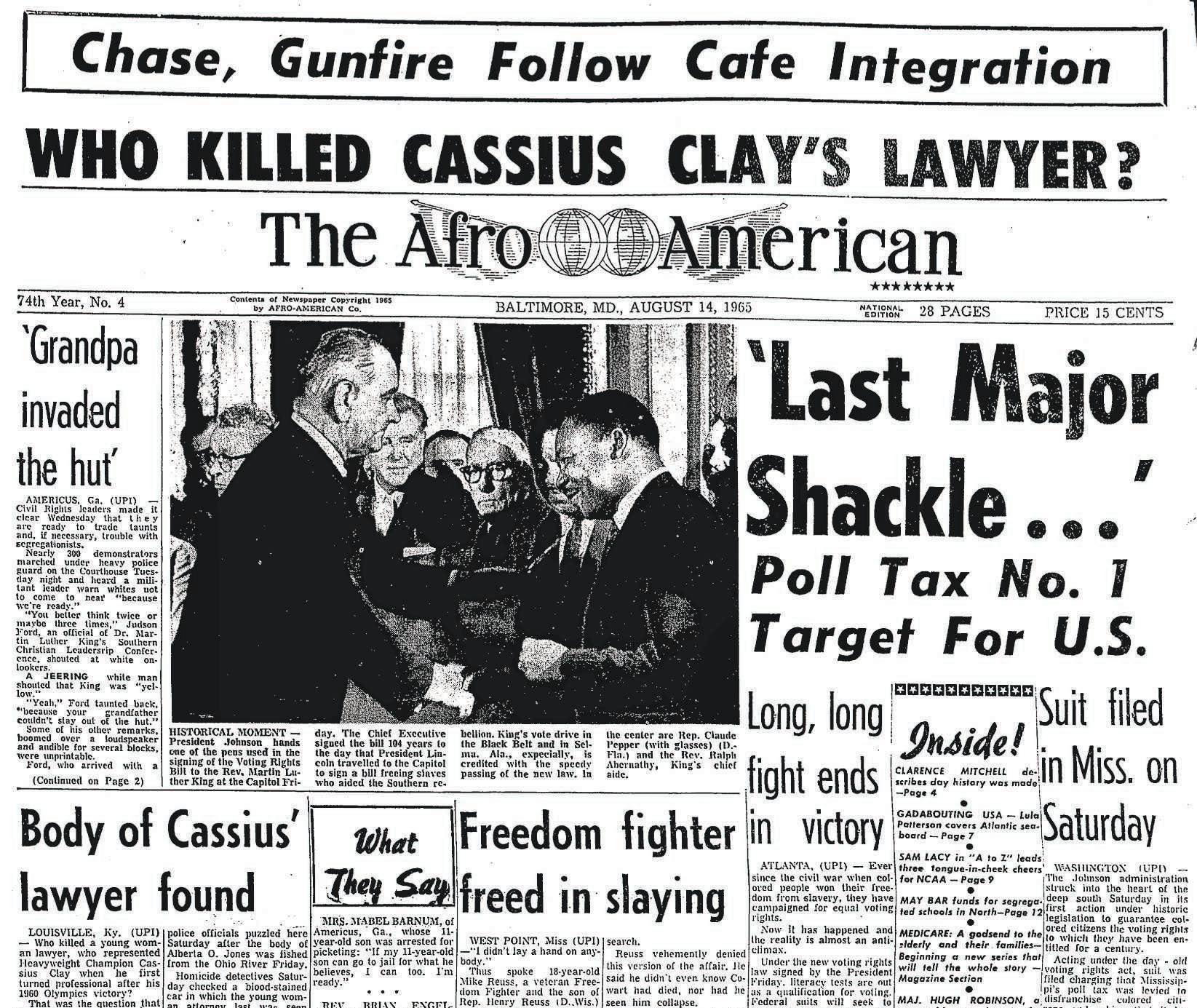
In the Aug. 14, 1965 edition of the AFRO, the front cover features a photo of President Lyndon B. Johnson and Dr. Martin Luther King Jr. shaking hands after the signing of the Voting Rights Act of 1965.
Due to circumstances, we often get stuck in a cycle of defense rather than ideating on what future generations might need. If ever there was a time to do both defense and offense, that time is now.
As we mark the 60th anniversary of the VRA, we must recognize the active attacks on democracy and continued voter suppression tactics — felony disenfranchisement, gerrymandering, limited polling place resources in predominantly Black communities, polling place closures, reductions in early voting, and Sunday voting, etc. When you add to this combination of coordinated voter suppression tactics, the active resistance to the John Lewis Voting Rights Bill, the
fragility of our voting rights and democracy is ever-clear.
Laws designed to silence dissent have spread fear and anxiety, even as our nation has historically built upon responding to injustice through protests. That doesn’t mean that all hope is lost. In fact, hope is more important now than ever. This moment calls for creativity, coordination, and intergenerational learning. Most of all, it calls for hope. If we believe that our best days are behind us, we are less likely to organize and struggle for the future.
Sixty years after its passage, the Voting Rights Act of 1965 is both bedrock and a target requiring vigilance and renewed commitment to defending and ensuring voting rights for all
475 L’Enfant Plaza SW, Room 3300 Washington, DC 20260-3501
Organizers of the effort are also asking that a copy of any written letters in support of the 6888th Stamp Project also be emailed to the6888stampproject@gmail.com, so a copy of the letter can be filed.
Americans. Today, we uplift and venerate the legacy of all of the courageous people who marched from Selma to Montgomery and remind ourselves that democracy belongs to every citizen, regardless of race, ethnicity, sexual orientation, background, or zip code. We must be prudent enough to remember that democracy requires voice, and our votes are our voice. Therefore, a threat to voting rights anywhere is a threat to voters everywhere. The opinions expressed in this commentary are those of the writer and not necessarily those of the AFRO. This commentary was originally published by Word in Black.
hip-hop impresario hadn’t proven that he did not pose a flight risk or danger, nor shown an “exceptional circumstance” that would justify his release after a conviction that otherwise requires detention.
Combs’ arguments “might have traction in a case that didn’t involve evidence of violence, coercion or subjugation in connection with the acts of prostitution at issue, but the record here contains evidence of all three,” the judge wrote.
Prosecutors declined to comment on the ruling. Messages seeking comment were sent to Combs’ lawyers.
The conviction carries the potential for up to 10 years in prison. But there are complicated federal guidelines for calculating sentences in any given case, and prosecutors and Combs’ lawyers disagree substantially on how the guidelines come out for his case.
The guidelines aren’t mandatory, and Subramanian will have wide latitude in deciding Combs’ punishment.
The Bad Boy Records founder, now 55, was for decades a protean figure in pop culture. A Grammy-winning hip-hop artist and entrepreneur with a flair for finding and launching big talents, he presided over a business empire that ranged from fashion to reality TV.
Prosecutors claimed he used his fame, wealth and violence to force and manipulate two now-ex-girlfriends into days-long, drugged-up sexual performances he called “freak-offs” or “hotel nights.”
During the trial, four women testified that Combs had beaten or sexually assaulted them. Jurors also watched video of Combs hurling one of his former girlfriends, R&B singer Cassie, to the floor, repeatedly kicking her and then dragging her down a hotel hallway.
His lawyers argued that the government tried to criminalize consensual, if unconventional, sexual tastes that played out in complicated relationships. The defense acknowledged that Combs had violent outbursts but said nothing he did amounted to the crimes with which he was charged.
“Combs’ arguments ‘might have traction in a case that didn’t involve evidence of violence, coercion or subjugation in connection with the acts of prostitution at issue, but the record here contains evidence of all three.’” –
Judge Arun Subramanian
Since the verdict, his lawyers have repeatedly renewed their efforts to get him out on bail until his sentencing, set for October. They have argued that the acquittals undercut the rationale for holding him, and they have pointed to other people who were released before sentencing on similar convictions.
Defense lawyer Marc Agnifilo suggested in a court filing that Combs was the United States’ “only person in jail for hiring adult male escorts for him and his girlfriend.”
Agnifilo also raised concerns about squalor and danger at the Metropolitan Detention Center, the notorious federal lockup where Combs is being held. The judge wrote Aug. 4 that those conditions were a “serious” consideration, but he said Combs hadn’t shown that unique circumstances –- such as advanced age or medical issues –- would warrant his release.
The defense’s most recent proposal included the $50 million bond, plus travel restrictions, and expressed openness to adding on house arrest at his Miami home, electronic monitoring, private security guards and other requirements.
Prosecutors opposed releasing Combs. They wrote that his “extensive history of violence — and his continued attempt to minimize his recent violent conduct — demonstrates his dangerousness.”
This article was originally published by the Associated Press (AP). Jake Offenhartz, an AP writer, contributed from Los Angeles.
AP Photo / Erin Hooley
Photo courtesy of the AFRO Archives
Continued from B1

COMMENTARY
Robert F. Kennedy Jr. : A clear and present danger to American health
By
When Robert F. Kennedy, Jr. was sworn in as our nation’s 26th Secretary of Health and Human Services this February, he entered his office promising to lead a movement to “Make America Healthy Again.” Several months into Secretary Kennedy’s tenure, it is clear that he has no intention of following through with that promise. He has slashed invaluable programs, undermined the public’s trust in vaccines and mishandled an ongoing health crisis.
The Trump administration has sworn that they would focus on tackling waste, fraud and abuse – and they have broken their word.
The day before Secretary Kennedy was sworn into office, the Trump administration fired more than 5,000 probationary workers at HHS – and Secretary Kennedy followed that up by cutting some 10,000 positions in the agency. He directed the CDC to shutter the Office on Smoking and Health, despite the growing youth use of vapes and the fact that lung cancer is our nation’s leading cause of cancer death. The CDC’s team responsible for tracking, analyzing and publicizing data around drownings were all fired, despite a rising rate of drowning deaths, which remain the leading killer of children ages 1 through 4 years old. His department has devastated the offices dedicated to researching and
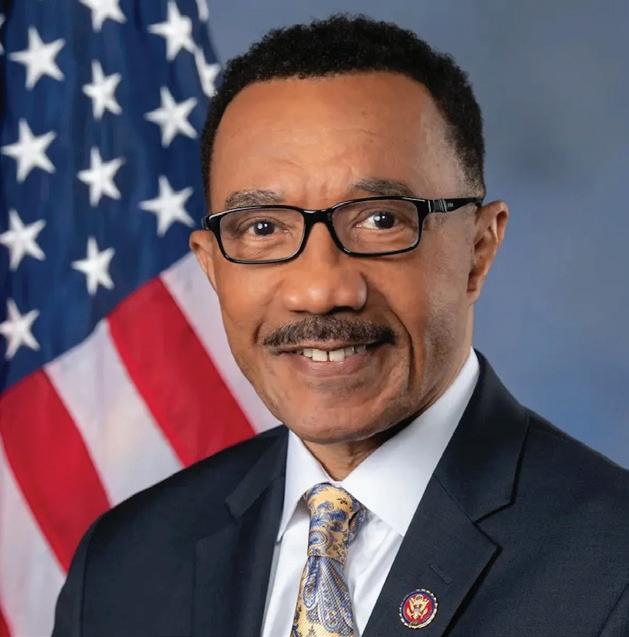
Congressman Kweisi Mfume represents Maryland’s Seventh Congressional District in the U.S. House of Representatives. This week, he sounds the alarm on what he believes are dangerous health policies and staffing decisions made by Health and Human Services Secretary Robert F. Kennedy Jr.
improving racial health disparities, including the National Institute of Minority Health and Health Disparities, ignoring the very real issues that lead to higher mortality rates in minority groups.
In addition to the damage that Secretary Kennedy is doing to the Department of Health and Human Services as an institution, he is actively working to undermine the American public’s trust in vaccines, one of the true medical miracles of the modern era. Without any scientific backing,
Secretary Kennedy’s Make America Healthy Again Report – when it wasn’t citing non-existent, AI-generated sources – called for a review of the childhood vaccine schedule. In order to secure that review, Secretary Kennedy dismissed all 17 non-partisan vaccine experts on the Advisory Committee for Immunization Practices (ACIP), replacing them with his own hand-picked panel, including several vaccine skeptics. To the shock of very few, when the newly-built ACIP held its first meeting, they heard testimony from a noted anti-vaccine activist and promptly voted to rescind longstanding recommendations for flu vaccines containing thimerosal, a vaccine ingredient that Secretary Kennedy has long opposed.
The concerted effort to undermine American trust in vaccines is deeply unnerving, and we can already see its impacts. The measles outbreak that began in Texas has spread nationwide, pushing confirmed cases to their highest level in over 30 years. Not even a year into the latest outbreak, measles has claimed three American lives – the same number of deaths that the disease caused from 2001 to 2024.
Secretary Kennedy has already mismanaged one health crisis – we cannot afford to wait and see how he would handle a larger crisis. The stakes are too high, and the American people deserve better.
Abusive cops won’t be punished–but #BLM isn’t over yet
In 2020, when Louisville police gunned down Breonna Taylor during a botched raid, the incident helped galvanize the ascendant Black Lives Matter movement. Along with the murders of George Floyd and Ahmaud Arbery, Taylor’s killing spurred outrage and pushed nationwide police reform tantalizingly close to reality.
How times have changed.
Five years after she was shot to death, the only officer convicted for his role in the raid that killed Taylor was sentenced to roughly three years in federal prison. But the Department of Justice under President Donald Trump wanted him to serve just one day.
Though a judge ignored the recommendation, it was the latest action to undermine the campaign for police accountability and signal that abusive officers have a friend in the White House. That includes Trump’s campaign promise of immunity for police misconduct; his pardoning of two Washington, D.C., cops convicted in a cover-up of a fatal chase; an April executive order rolling back Biden-era reforms; and the DOJ’s decision to walk away from the previous administration’s reform agreements with heavy-handed police departments in Minneapolis and Louisville.
Coupled with the fact that the president openly encourages cops to dish out two-fisted street justice — and that the drumbeat of police killing unarmed Black people thumps on — it’s easy to conclude that the Black Lives Matter movement’s goal of police reform is all but over.
But experts who study the issue say the #BLM era is still very much in effect, with local communities, not the federal government, holding abusive police accountable.
Playing a smaller role than people think “I definitely do not think this is the end of efforts to hold police accountable
or even efforts to prosecute police officers,” says Rachel Moren, a law professor at University of St. Thomas in St. Paul, Minnesota.
While the Trump administration seems almost eager to excuse police brutality, “the federal government’s efforts to pursue police accountability are a pretty small piece of the overall accountability picture, and a very small percentage of police prosecutions,” she says.
“The state prosecutions are the ones where you get [officers charged with] murder and manslaughter and reckless homicide or whatever it may be,”
Moren says. If a case gets to federal court, “typically, officers are almost always prosecuted for federal civil rights violations, and those are hard to prove.”
Thaddeus Johnson, a criminal justice professor at Georgia State University, concurs.
States are “where reform happens,” he says. But “oftentimes, the state is left completely out of the reform conversation” because police abuse is often framed as a nationwide issue.
More police officers are being held accountable
Although roughly 1,000 people die at the hands of police every year, Moren says a growing number of cops are serving time for them. She says she’s studied 10 years’ worth of data and found that the trend line is slowly but gradually heading upward.
“Only about 1.6% of police homicides end up getting prosecuted, so it’s a very small percentage,” Moren says. “But on the other hand, it’s, it’s more than some people think. There are 281 officers that have been prosecuted for on-duty homicides in this 10-year period.”
Still, there’s no doubt Trump has included the Black Lives Matter movement and the call for police reform in his so-called war against “wokeness.”
Both Johnson and Moren say his Justice Department’s resistance to police accountability — and Trump’s explicit
How artificial intelligence furthers environmental racism in Black America
When one of my best friends (who is also a pastor) encouraged me to look into utilizing artificial intelligence (AI) tools for ministry purposes, I was exhilarated. It seemed like a game-changer at my fingertips. I used it to make presentations and outline Bible studies, saving time on the tasks that often fill my days. The opportunities seemed endless, and the convenience was remarkable. Regular projects and tasks that I had poured effort into before could now be completed in mere seconds. Not only did I start utilizing it, but I started singing its praises as well to all who would listen.
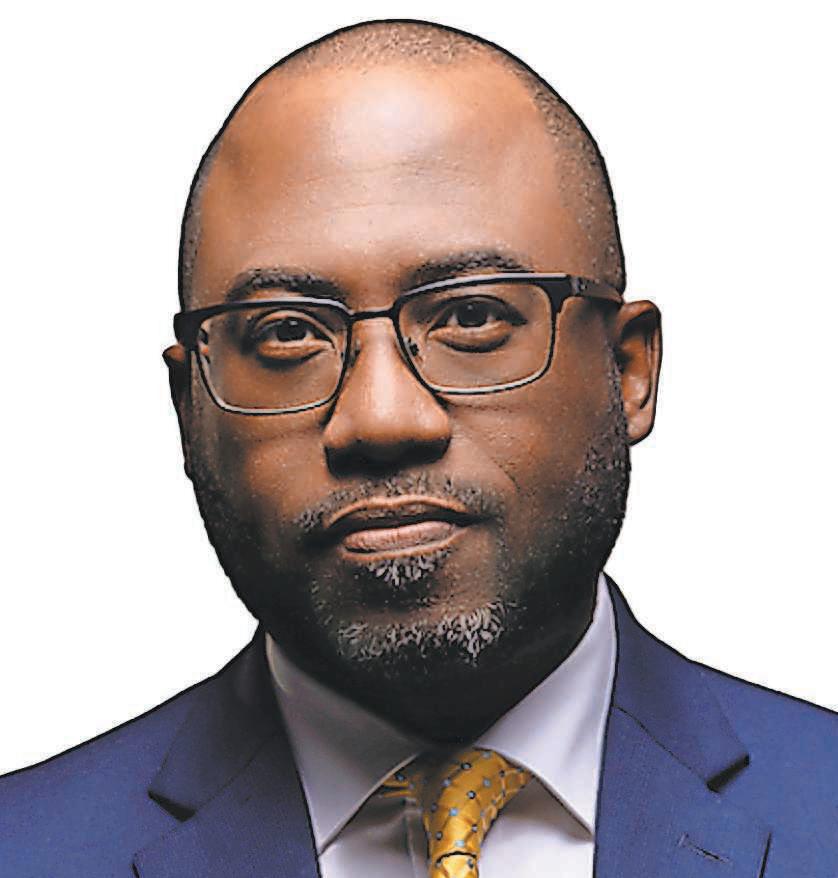
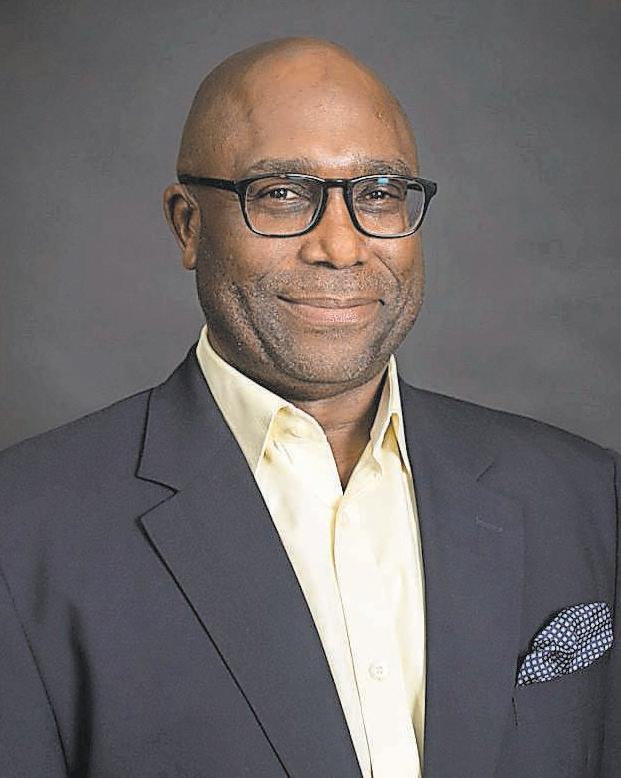
Williams is a veteran journalist, political analyst and essayist. This week, he discusses police accountability and the persistence of the Black Lives Matter movement.
endorsement of abusive force — could be consequential.
A dangerous federal stance
In April, Trump issued an executive order that would “unleash high-impact local police forces” and defend officers “wrongly accused and abused by State or local officials.” The order will “ensure” that police nationwide “focus on ending crime, not pursuing harmful, illegal race- and sex-based ‘equity’ policies.”
The order came just four months after Trump pardoned two Washington, D.C. police officers for their roles in a deadly chase of a young Black man on a moped in 2020 and their attempts to cover up their culpability. Those actions, the professors say, are clear messages to abusive cops: We’ve got your back.
During a May 2024 rally in Waukesha, Wisconsin, Trump made it plain, promising to “give our police their power back, and we’re going to give them immunity from prosecution, so they’re not prosecuted for doing their job.” This commentary was originally published by Word in Black. See more on AFRO.com
Then, earlier this summer, I was invited to teach a class entitled “The Integration of Land, Food and Faith Formation in Ministry” at Memphis Theological Seminary. In an effort to utilize the city of Memphis as part of learning opportunities for my class, I began studying the local environmental justice scene. It was then that I learned things about AI that shifted my perspective and put a damper on my enthusiasm. While teaching my class, I learned that what is touted as the largest supercomputer in the world resides in Memphis. This massive facility was established by Elon Musk to support his artificial intelligence company called xAI. Musk’s supercomputer facility is near a community called Boxtown, a neighborhood in South Memphis where over 90 percent of the residents are African American. Boxtown was established in 1863 by formerly enslaved Black families shortly after the signing of the Emancipation Proclamation. It has long been a site of political and economic neglect as well as a desired location for environmentally harmful corporations.
Now, Boxtown is an immediate neighbor of Elon Musk’s supercomputer facility, which is located just three miles away. Residents of Boxtown are alleging that xAI is polluting the air, the water and affecting the physical health of people in their community.
This xAI facility is filling the surrounding area — including Boxtown — with smog and harmful chemicals. Its gas turbines are releasing so much pollution that residents are saying that they can barely breathe. It has added significantly to the pollution produced by the 17 or some-odd industrial facilities in the same block of real estate.
The more I pulled back the curtain, the more I saw the ethical and environmental issues lurking behind artificial intelligence (AI). From Musk’s supercomputers to Mark Zuckerberg’s (co-founder of Facebook) massive data centers and the countless AI facilities being quickly built by billionaires in communities around the country.
Each and every search on an AI platform expends enormous amounts of energy. Each task that we complete on these platforms pumps pollution into the air we breathe, the water we drink and the soil we eat from. AI, as currently engineered, is an environmental disaster and a threat to all who live, work, worship or play near its facilities.
As the founder of The Black Church Food Security Network, I focus primarily on organizing African-American congregations to grow food on their land and develop mutually beneficial partnerships with Black farmers in an effort to cultivate the development of Black-owned
food ecosystems across the country. However, I do not have the luxury of separating issues here. Environmental racism, such as what is occurring in Boxtown, is inherently connected to the health, food justice needs and overall well-being of Black communities.
AI supercomputers negatively impact the environment, agriculture and food. Black communities are among those being disproportionately affected. Residents of Boxtown are being hit with increased rates of asthma and heart disease and a cancer risk more than four times the national average. It is no coincidence that xAI, or any of the other industrial facilities, chose to develop in this neighborhood. The decision to develop in Memphis, in Boxtown, is the result of a long legacy of environmental racism. Black communities have been victimized over and over again in the name of science, development and job creation.
This is not just about Boxtown or Memphis. It’s about Black communities everywhere.
Black people have a right to health. We have a right to breathe clean air. We have a right to leave our homes without fear of pollutants entering our bodies at disproportionate levels. I am clear. Increasing our capacity to grow our own food and establish our own food ecosystems is necessary to satisfy our basic needs and decrease our dependence on corporations and the government to feed us. However, African Americans must not stop there. Food sovereignty and nutrition must work hand-in-hand with the proper stewardship of the natural environment; one without the other will continue to create lingering problems.
Since my time in Memphis, I have pulled back from AI. My ability to perform any of the tasks I once delegated to AI has not diminished. AI may work faster, but becoming knowledgeable of its harms to my people put a stop to the excitement for me. Until this technology and the industries surrounding it are better informed by ethics, concern for the poor and racial and environmental justice, I will not be able to, in good conscience, promote it or participate uncritically on its platforms. While it may be impossible to stop this new technology in its tracks altogether, our use of AI must be selective and measured. We must reasonably weigh its values against its harms. We cannot compromise our ethics in the name of “convenience” or rushing to get a seat at the table as the industry takes off. This commentary was originally published by Word in Black.
See more on AFRO.com
Congressman Kweisi Mfume (D-MD- 07)
Courtesy photo
By Rev. Dr. Heber Brown Word in Black
Photo courtesy of Word in Black Rev. Dr. Heber Brown, III is an author, pastor and founder of The Black Church Food Security Network. This week, he discusses the impact of artificial intelligence on the Black community.
By Joseph Williams Word in Black
Courtesy photo
Joseph

SUPERIOR COURT OF THE DISTRICT OF COLUMBIA PROBATE DIVISION ADMINISTRATION NO. 2024ADM000694
ANTHONY B. WOODARD Name of Decedent
DIANN DAWSON, ATTORNEY 2101 STEUBEN WAY SILVER SPRING, MD 20905 Notice of Appointment, Notice to Creditors and Notice to Unknown Heirs
legatees of the decedent who do not receive a copy of this notice by mail within 25 days of its publication shall so inform the Register of Wills, including name, address and relationship. Date of first publication: JULY 25, 2025 Name of newspaper and/or periodical: Washington Law
STEVEN-PAUL WOODARD, whose address is 14800 CARROLTON ROAD, ROCKVILLE, MD 20853 was appointed Personal Representative of the estate of ANTHONY B. WOODARD who died on MARCH 15, 2025 without a Will and will serve without Court supervision. All unknown heirs and heirs whose whereabouts are unknown shall enter their appearance In this proceeding. Objections to such, appointment shall be filed With the Register of Wills, D.C., Building A, 515 5th Street, N.W., 3rd Floor, Washington, D.C. 20001, on or before JANUARY 25, 2026. Claims against the decedent shall be presented to the undersigned with a copy to the Register of Wills or filed with the Register of Wills with a copy to the undersigned, on or before JANUARY 25, 2026 or be forever barred. Persons believed to be heirs or legatees of the decedent who do not receive a copy of this notice by mail within 25 days of its publication shall so inform the Register of Wills, including name, address and relationship.
Date of first publication:
JULY 25, 2025 Name of newspaper and/or periodical: Washington Law Reporter AFRO American Newspapers
STEVEN-PAUL WOODARD
Personal Representative
TRUE TEST COPY REGISTER OF WILLS 07/25, 08/01, 08/08/25
SUPERIOR COURT OF THE DISTRICT OF COLUMBIA PROBATE DIVISION ADMINISTRATION NO. 2025ADM000763 OLIVER WALTER GASKIN Name of Decedent Notice of Appointment, Notice to Creditors and Notice to Unknown Heirs DEBRA SUE GASKIN, whose address is 2603 MIRKWOOD COURT, WALDORF, MD 20601 was appointed Personal Representative of the estate of OLIVER WALTER GASKIN who died on DECEMBER 27, 2020 without a Will and will serve without Court supervision.
All unknown heirs and heirs whose whereabouts are unknown shall enter their appearance In this proceeding. Objections to such, appointment shall be filed With the Register of Wills, D.C., Building A, 515 5th Street, N.W., 3rd Floor, Washington, D.C. 20001, on or before FEBRUARY 08, 2026. Claims against the decedent shall be presented to the undersigned with a copy to the Register of Wills or filed with the Register of Wills with a copy to the undersigned, on or before FEBRUARY 08, 2026 or be forever barred. Persons believed to be heirs or legatees of the decedent who do not receive a copy of this notice by mail within 25 days of its publication shall so inform the Register of Wills, including name, address and relationship.
SUPERIOR COURT OF THE DISTRICT OF COLUMBIA
PROBATE DIVISION 2025FEP000085
JANUARY 06, 2025 Date of Death
DARION MILLER GRIFFIN AKA
DARION M. GRIFFIN Name of Decedent
NOTICE OF APPOINTMENT OF FOREIGN
PERSONAL REPRESENTATIVE AND NOTICE TO CREDITORS
WILLIAM D. MILLER whose address is 6100 WHITTEMORE COURT, UPPER MARLBORO, MARYLAND
20772 was appointed representative of the estate of DARION MILLER GRIFFIN AKA DARION M. GRIFFIN deceased, by the ORPHAN’S Court for MONTGOMERY County, State of MARYLAND, on MARCH 20, 2025. Service of process may be made upon CECILLIA R. JONES & ASSOCIATES, PLLC 5335 WISCONSIN AVE. NW SUITE 440 WASHINGTON, DC 20015 whose designation as District of Columbia agent has been filed with the Register of Wills, D.C. The decedent owned the following District of Columbia real property: 1928 KEARNEY STREET NE WASHINGTON,DC 20018. Claims against the decedent may be presented to the undersigned and filed with the Register of Wills for the District of Columbia, Building A, 515 5th Street, N.W., 3rd Floor, Washington, D.C. 20001 within 6 months from the date of first publication of this notice.
Date of first publication: AUGUST 01, 2025 Name of newspaper, and/or periodical: Daily Washington Law Reporter AFRO-American
WILLIAM D. MILLER Personal Reperesenative TRUE TEST COPY REGISTER OF WILLS 08/01, 08/08, 08/15/25
SUPERIOR COURT OF THE DISTRICT OF COLUMBIA
PROBATE DIVISION ADMINISTRATION NO. 2025ADM000721 PATRICIA HENRY Name of Decedent Notice of Appointment, Notice to Creditors and Notice to Unknown Heirs JAMES HENRY, whose address is 2540 SOUTHERN AVE SE APT 11, WASHINGTON, DC 20020 was appointed Personal Representative of the estate of PATRICIA HENRY who died on SEPTEMBER 13, 1996 without a Will and will serve (with/without) Court supervision. All unknown heirs and heirs whose whereabouts are unknown shall enter their appearance In this proceeding. Objections to such, appointment shall be filed With the Register of Wills, D.C., Building A, 515 5th Street, N.W., 3rd Floor, Washington, D.C. 20001, on or before JANUARY 25, 2026. Claims against the decedent shall be presented to the undersigned with a copy to the Register of Wills or filed with the Register of Wills with a copy to the undersigned, on or before JANUARY 25, 2026 or be forever barred. Persons believed to be heirs or legatees of the decedent who do not receive a copy of this notice by mail within 25 days of its publication shall so inform the Register of Wills, including name, address and relationship.
SUPERIOR COURT OF THE DISTRICT OF COLUMBIA PROBATE DIVISION ADMINISTRATION NO. 2025ADM000729 KIRK DARDEN DAVIS Name of Decedent WILLIAM A. BLAND, ESQUIRE
Representative of the estate of KIRK DARDEN DAVIS who died on AUGUST 02, 2024 without a Will and will serve without Court supervision. All unknown heirs and heirs whose whereabouts are unknown shall enter their appearance In this proceeding. Objections to such, appointment shall be filed With the
2026 or be forever barred. Persons believed to be heirs or legatees of the decedent who do not receive a copy of this notice by mail within 25 days of its publication shall so inform the Register of Wills, including name, address and relationship. Date of first publication: AUGUST 01, 2025 Name of newspaper and/or periodical: Daily Washington Law Reporter AFRO American Newspapers
MONELLE SMITH Personal Representative TRUE TEST COPY REGISTER OF WILLS 08/01, 08/08, 08/15/25
Date of first publication: AUGUST 08, 2025 Name of newspaper and/or periodical: Daily Washington Law Reporter AFRO American Newspapers
DEBRA SUE GASKIN Personal Representative
TRUE TEST COPY REGISTER OF WILLS 08/08, 08/15, 08/22/25
SUPERIOR COURT OF THE DISTRICT OF COLUMBIA PROBATE DIVISION ADMINISTRATION NO. 2025ADM000789
THOMAS WAYNE HAIRSTON Name of Decedent Notice of Appointment, Notice to Creditors and Notice to Unknown Heirs MABEL HAIRSTON, whose address is 4020 2ND ST SW WASHINGTON DC 20032 was appointed Personal Representative of the estate of THOMAS WAYNE HAIRSTON who died on MARCH 21, 2024 without a Will and will serve without Court supervision. All unknown heirs and heirs whose whereabouts are unknown shall enter their appearance In this proceeding.
Date of first publication:
JULY 25, 2025 Name of newspaper and/or periodical: Washington Law Reporter AFRO American Newspapers
JAMES HENRY Personal Representative
TRUE TEST COPY REGISTER OF WILLS 07/25, 08/01, 08/08/25
SUPERIOR COURT OF THE DISTRICT OF COLUMBIA
PROBATE DIVISION ADMINISTRATION NO. 2024ADM000719
VERNON MONTA BROWN Name of Decedent CHARLES E. WALTON, ESQ. 10905 FORT WASHINGTON ROAD, SUITE 201 FORT WASHINGTON, MARYLAND 20744 Notice of Appointment, Notice to Creditors and Notice to Unknown Heirs SHERMANITA ISLER, whose address is 705 TRENARY CIRCLE, FORT WASHINGTON, MD 20744 was appointed Personal Representative of the estate of VERNON MONTA BROWN who died on JANUARY 5, 2024 without a Will and will serve without Court super-
SUPERIOR COURT OF THE DISTRICT OF COLUMBIA PROBATE DIVISION ADMINISTRATION NO. 2024ADM0096 ROBERT WOODROW MURPHY Name of Decedent DONALD M. TEMPLE, ESQ. 2522 VIRGINIA AVE., NW, SUITE B WASHINGTON, DC 20037 Notice of Appointment, Notice to Creditors and Notice to Unknown Heirs JANET SHEEN, whose address is 4713 WISCONSIN AVE., NW, WASHINGTON, DC 20016 was appointed Personal Representative of the estate of ROBERT WOODROW MURPHY who died on NOVEMBER 26, 2023 without a Will and will serve without Court supevision. All unknown heirs and heirs whose whereabouts are unknown shall enter their appearance In this proceeding. Objections to such, appointment shall be filed With the Register of Wills, D.C., Building A, 515 5th Street, N.W., 3rd Floor, Washington, D.C. 20001, on or before JANUARY 25, 2026. Claims against the decedent shall be presented to the undersigned with a copy to the
for the District of Columbia, Building A, 515 5th Street, N.W., 3rd Floor, Washington, D.C. 20001 within 6 months from the date of first publication of this notice. Date of first publication:
Objections to such, appointment shall be filed With the Register of Wills, D.C., Building A, 515 5th Street, N.W., 3rd Floor, Washington, D.C. 20001, on or before FEBRUARY 08, 2026. Claims against the decedent shall be presented to the undersigned with a copy to the Register of Wills or filed with the Register of Wills with a copy to the undersigned, on or before FEBRUARY 08, 2026 or be forever barred. Persons believed to be heirs or legatees of the decedent who do not receive a copy of this notice by mail within 25 days of its publication shall so inform the Register of Wills, including name, address and relationship. Date of first publication: AUGUST 08, 2025
Name of newspaper and/or periodical: Daily Washington Law Reporter AFRO American Newspapers
MABEL HAIRSTON Personal Representative
TRUE TEST COPY REGISTER OF WILLS 08/08, 08/15, 08/22/25


